

Sign up for 63Stravel VIP membership to enjoy special offers.
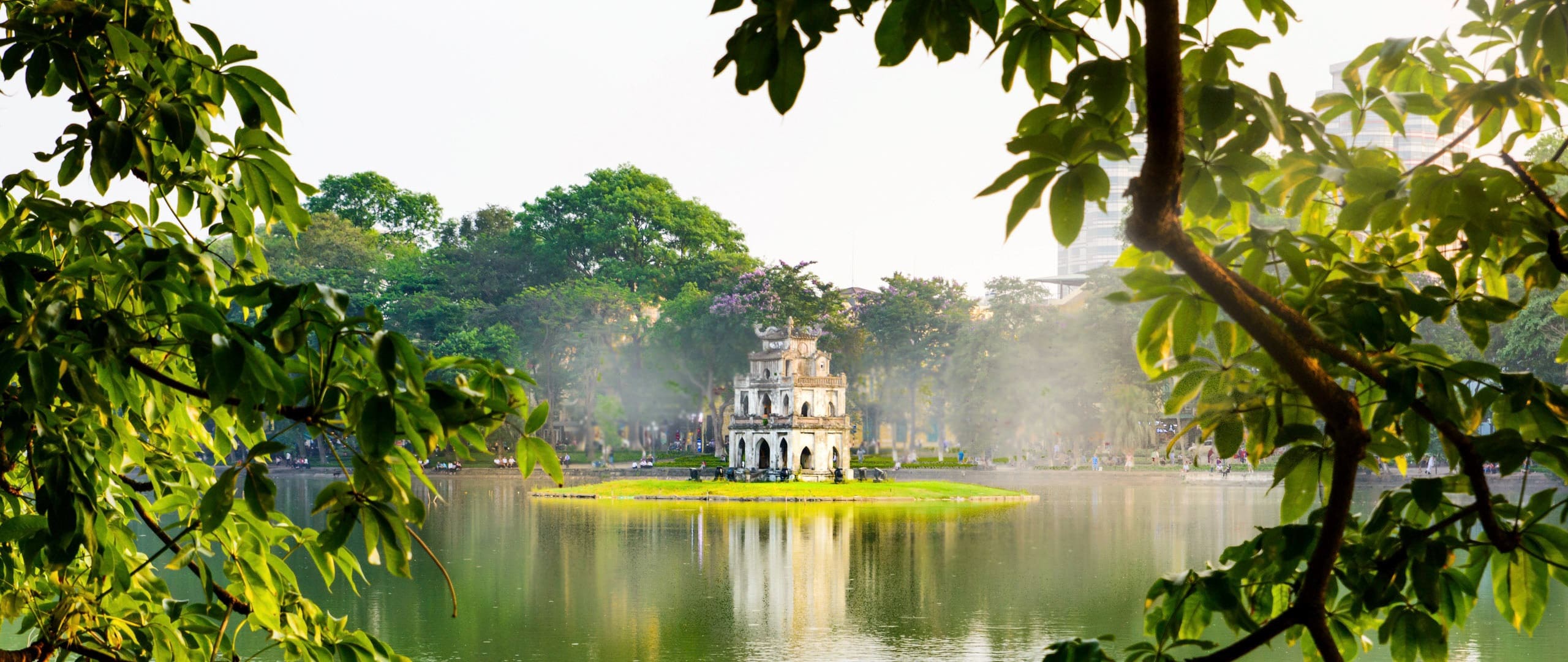 Hanoi (6)
Hanoi (6)
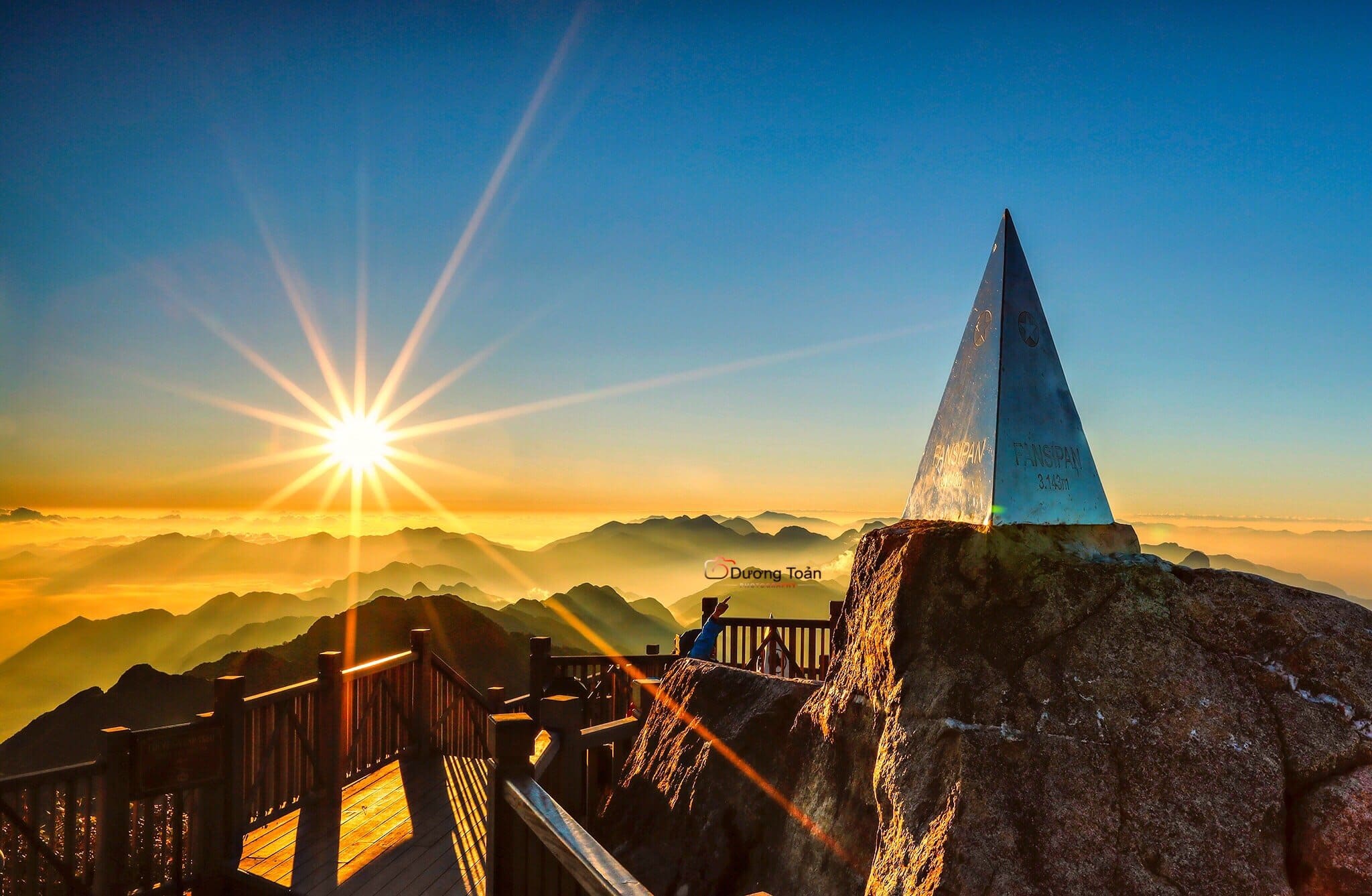 Lao Cai (1)
Lao Cai (1)
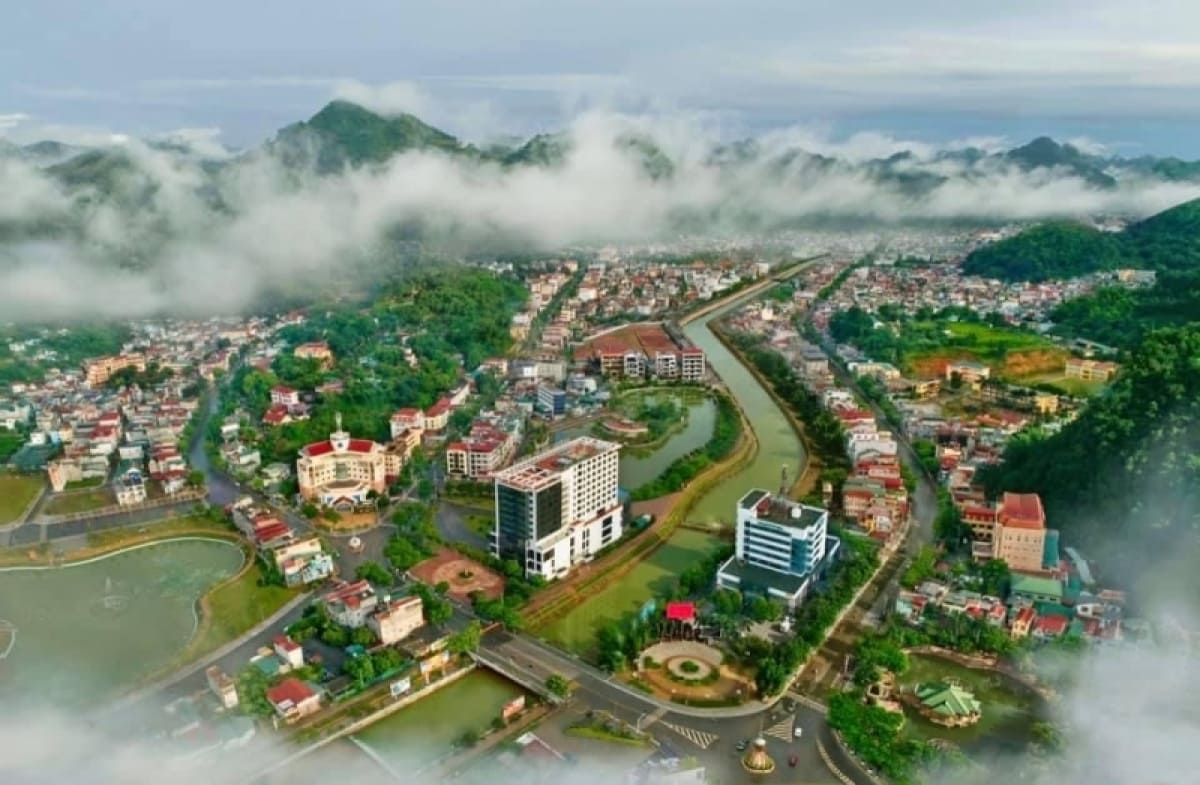 Son La (2)
Son La (2)
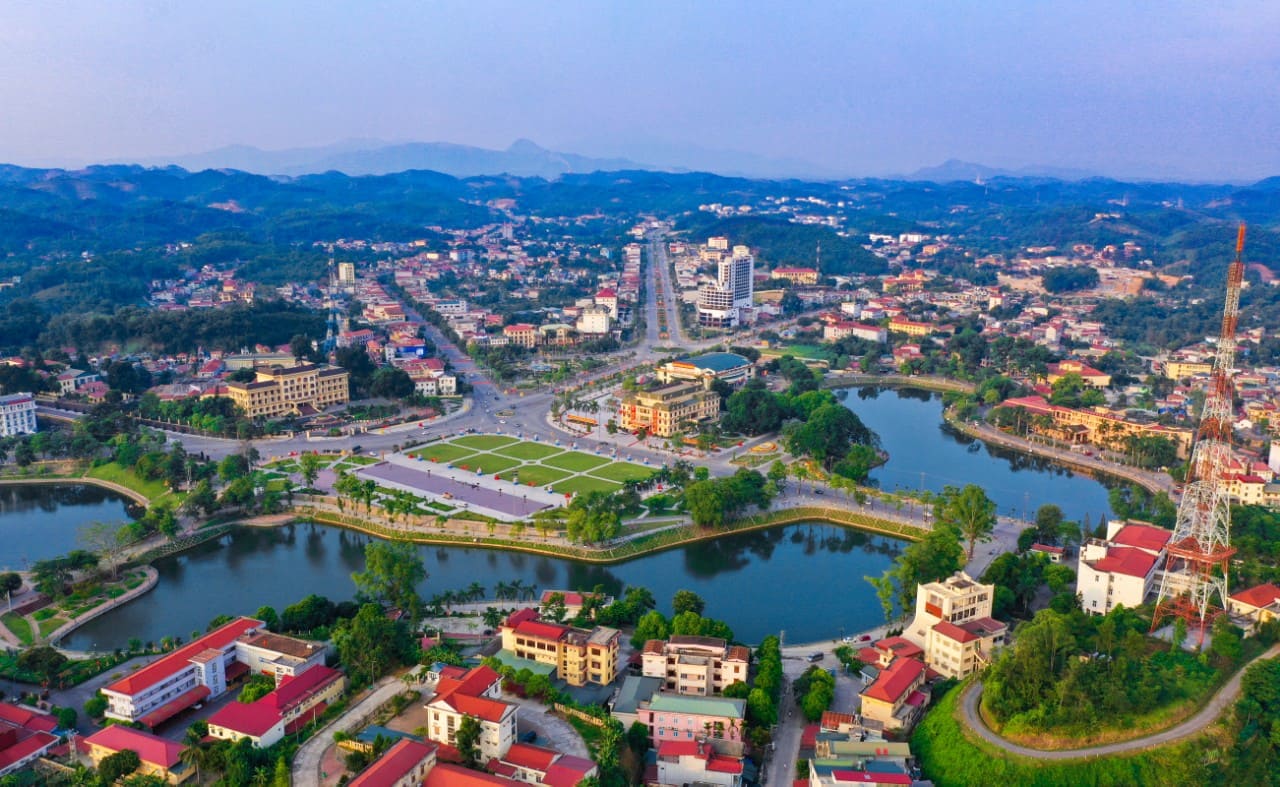 Yen Bai (1)
Yen Bai (1)
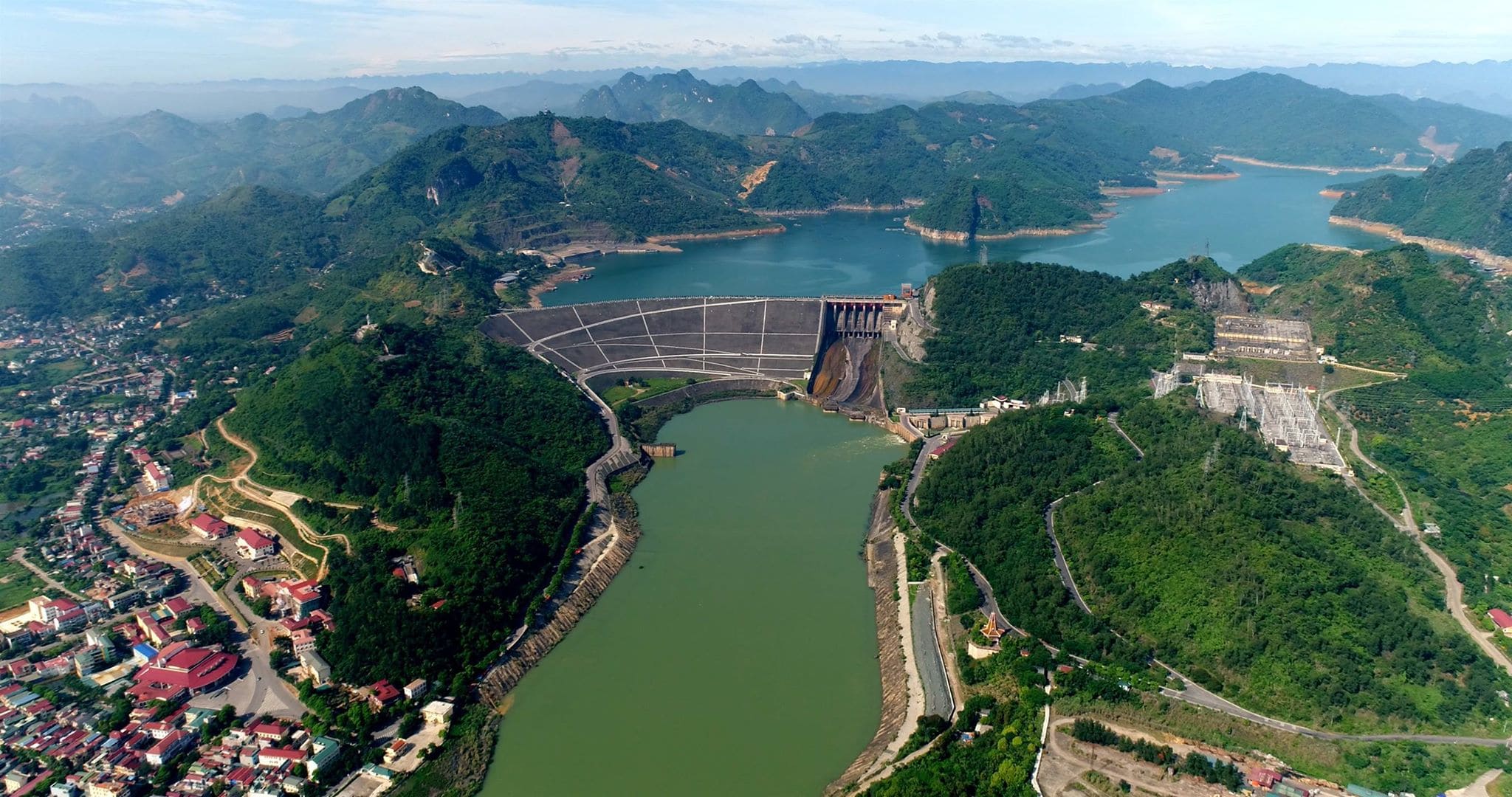 Hoa Binh (1)
Hoa Binh (1)
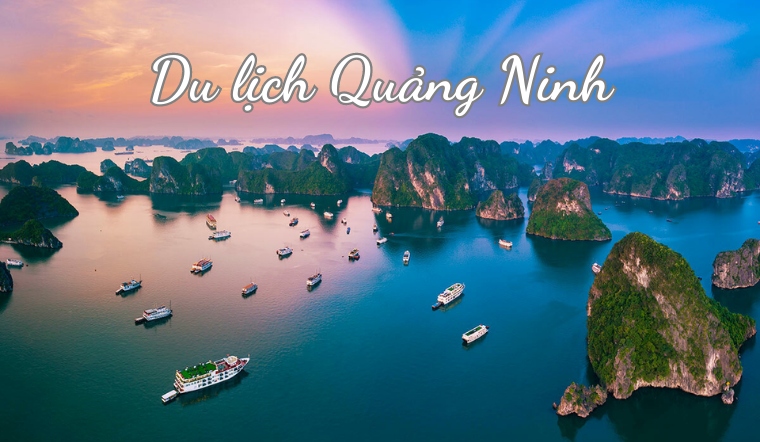 Quang Ninh (18)
Quang Ninh (18)
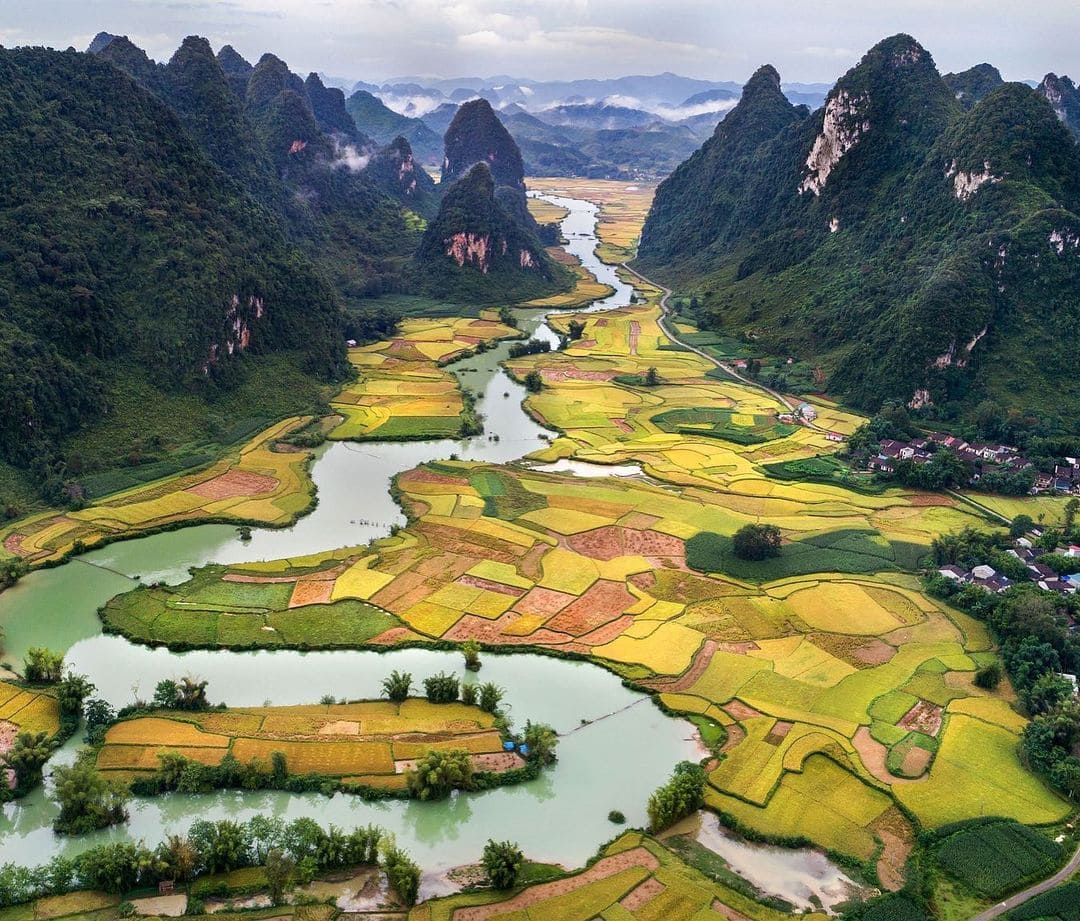 Ninh Binh (1)
Ninh Binh (1)
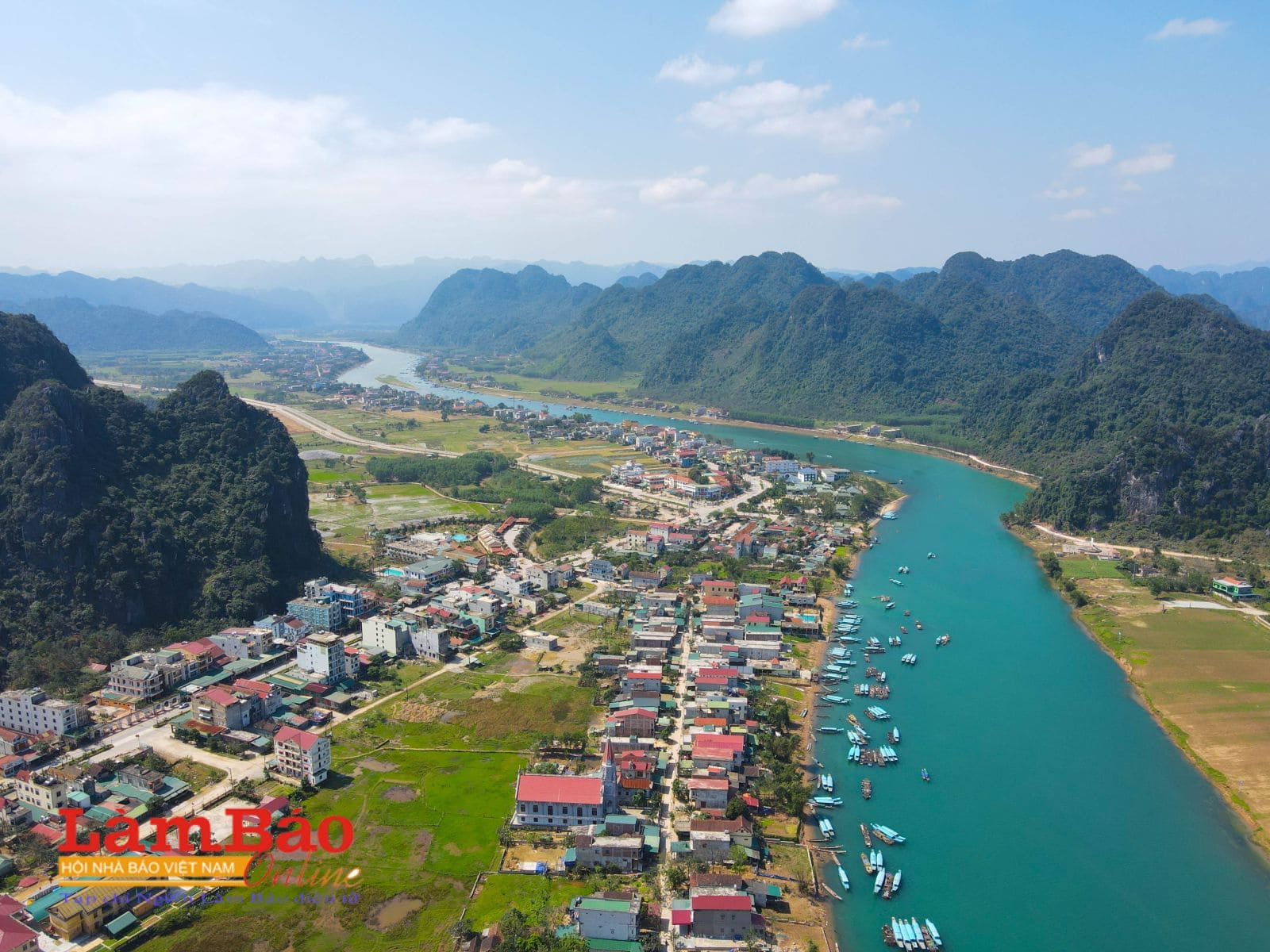 Quang Binh (2)
Quang Binh (2)
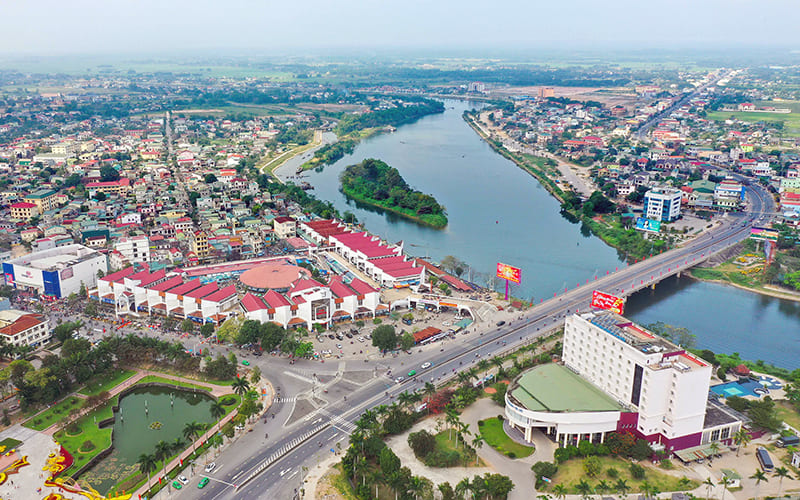 Quang Tri (1)
Quang Tri (1)
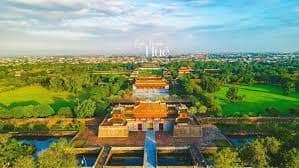 Hue (17)
Hue (17)
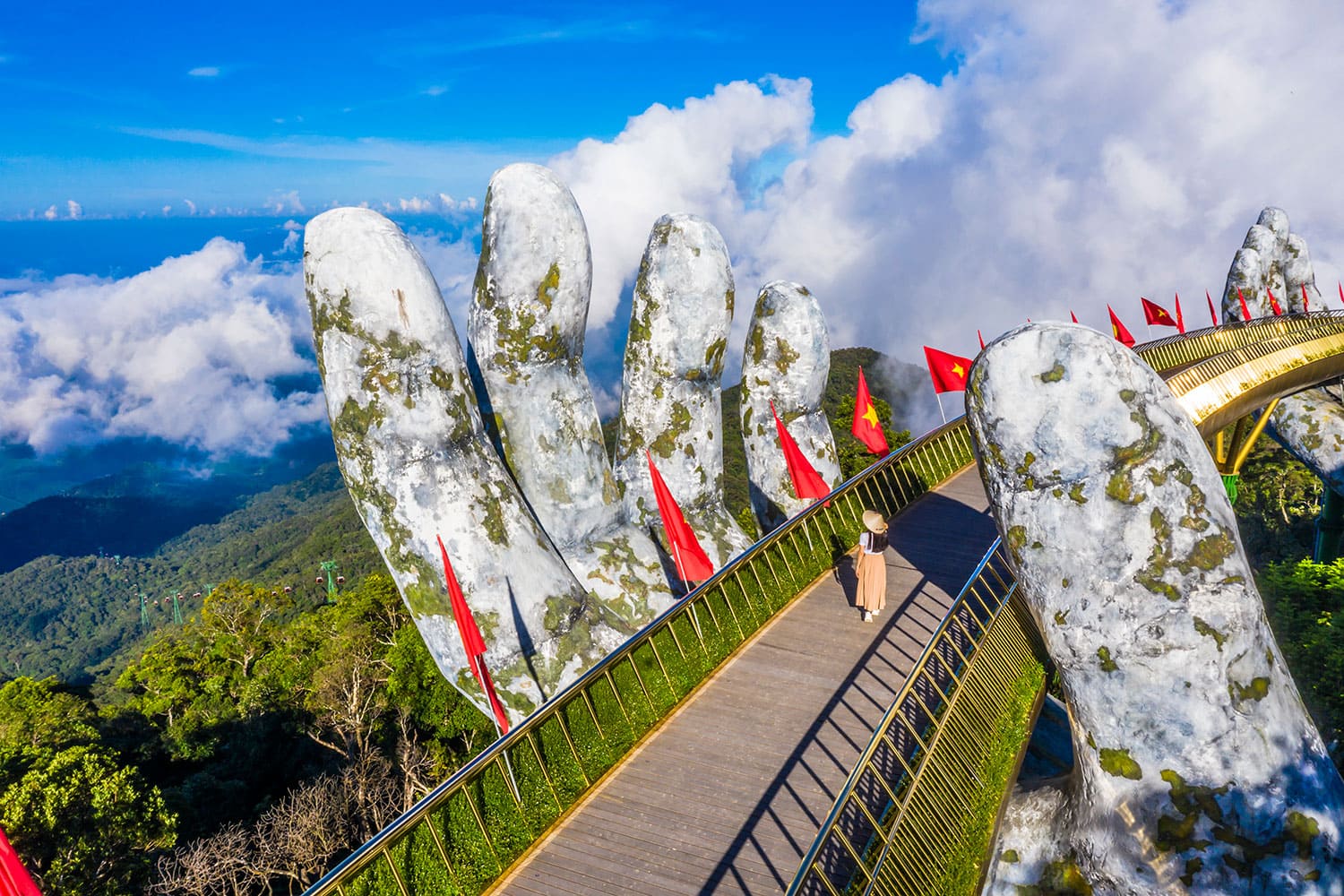 Da Nang (24)
Da Nang (24)
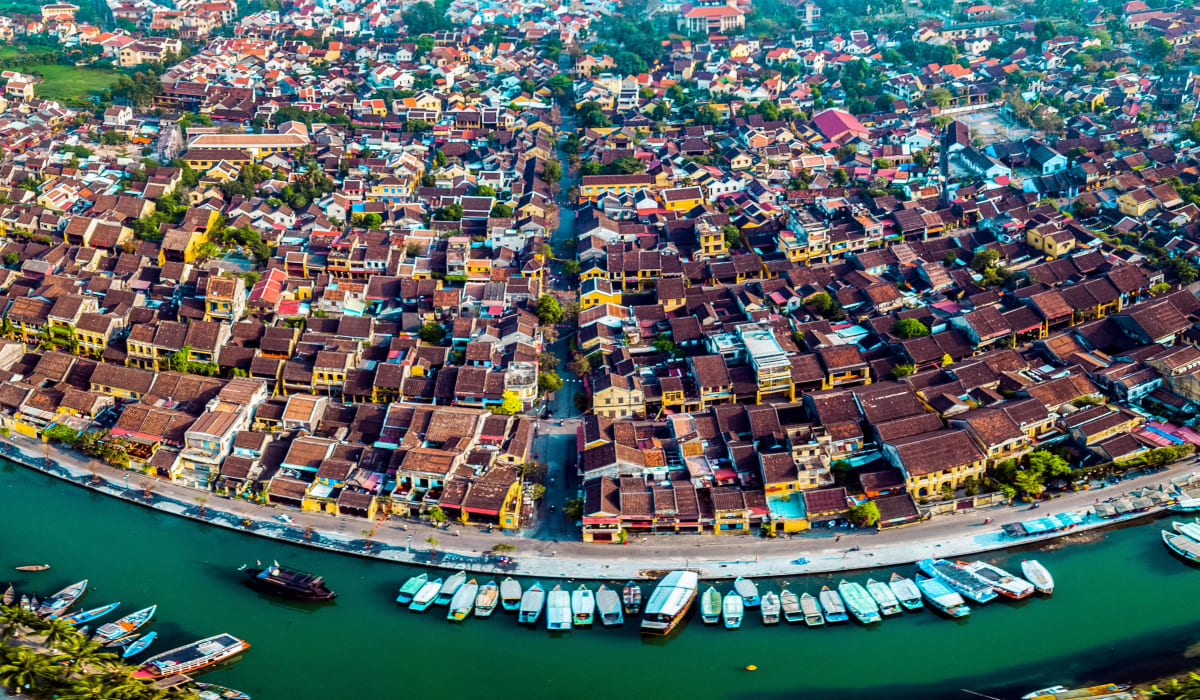 Quang Nam (16)
Quang Nam (16)
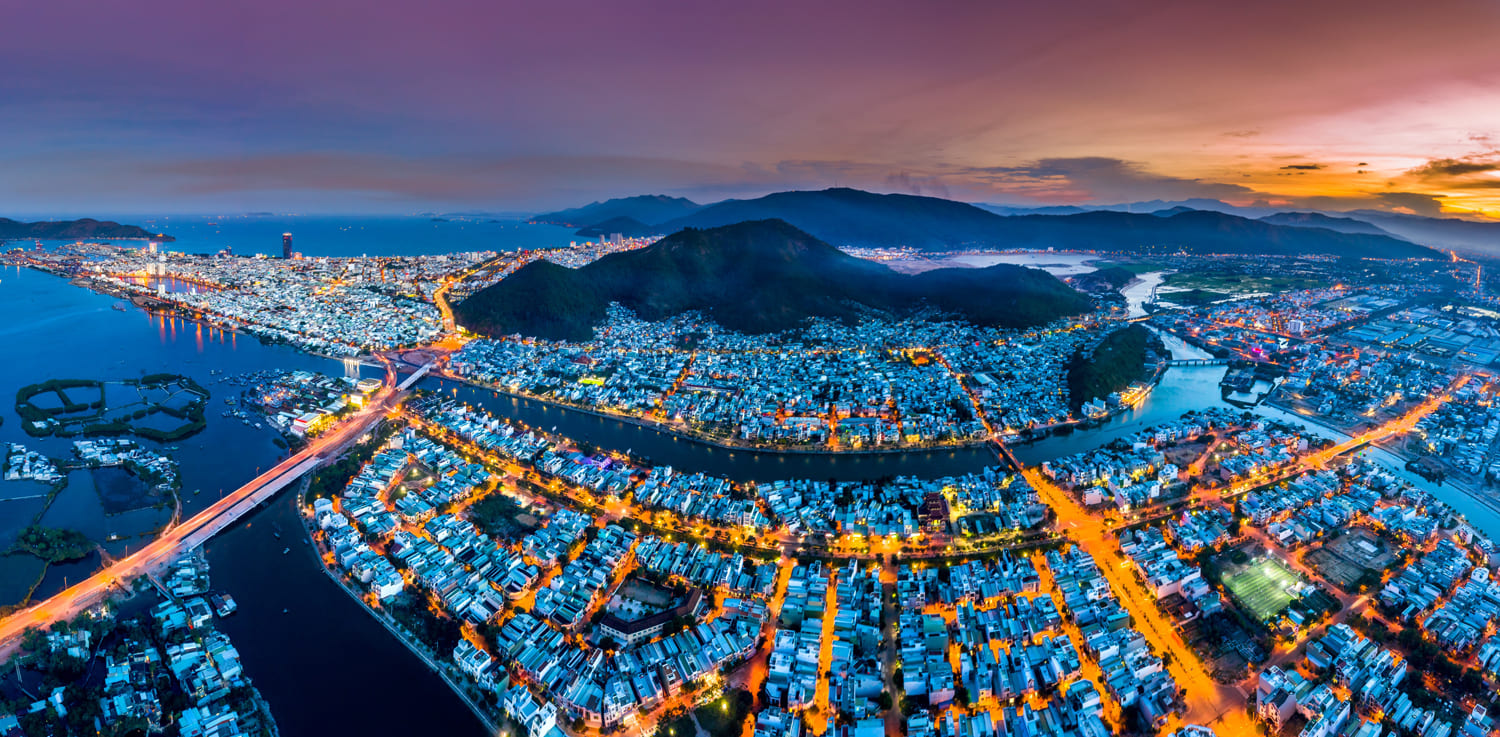 Binh Dinh (1)
Binh Dinh (1)
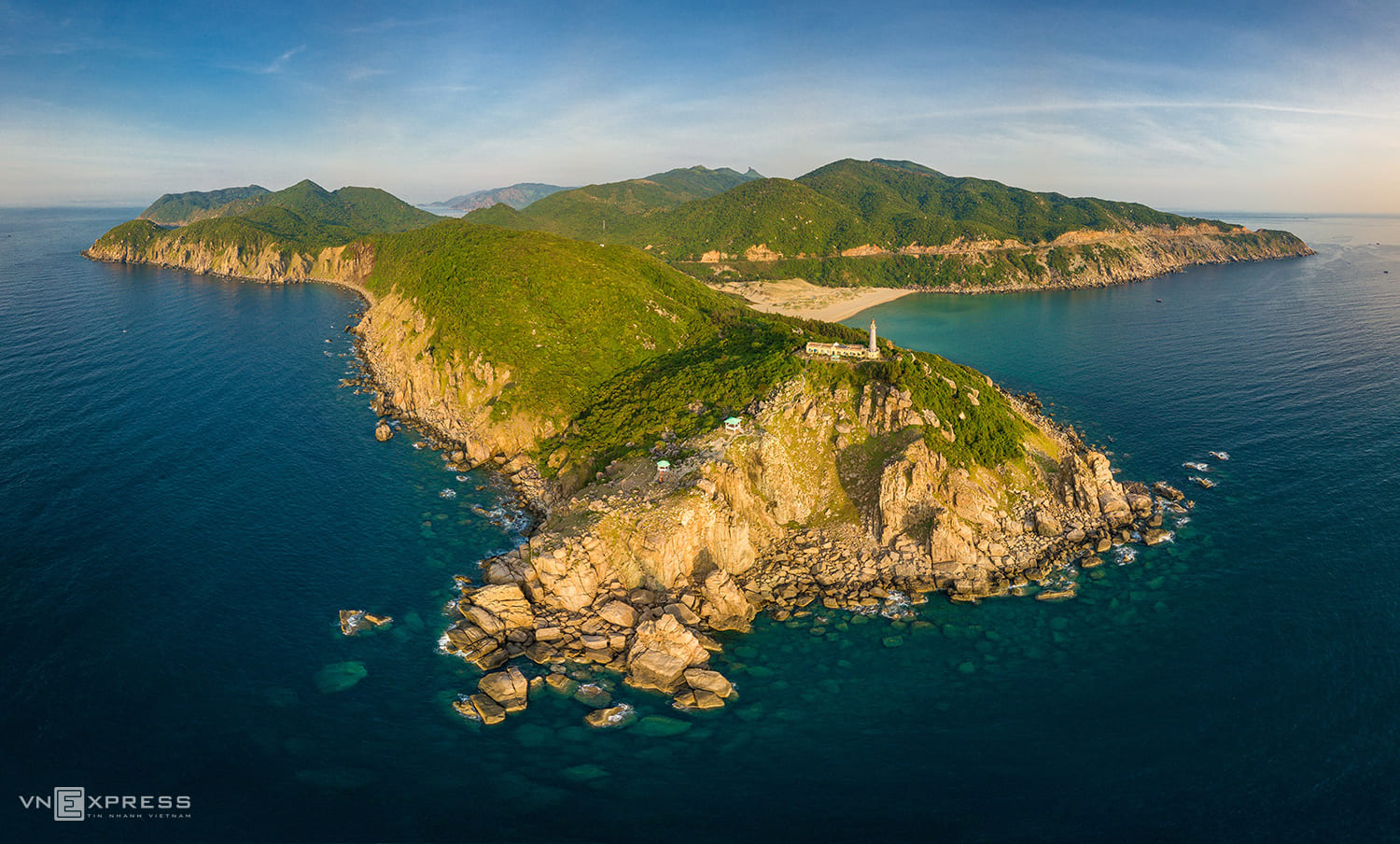 Phu Yen (1)
Phu Yen (1)
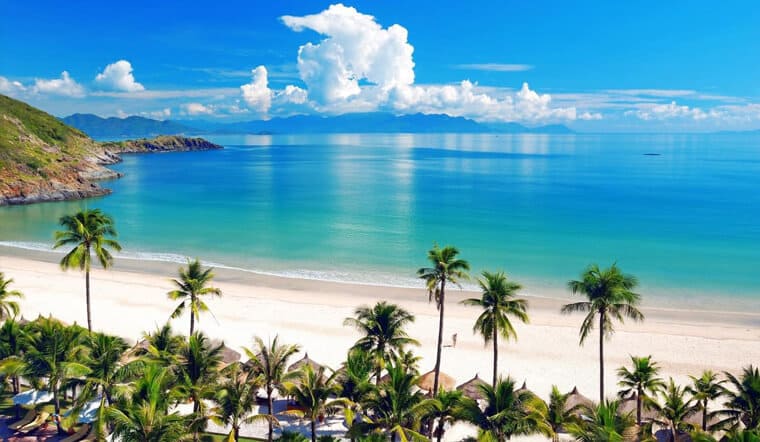 Khanh Hoa (12)
Khanh Hoa (12)
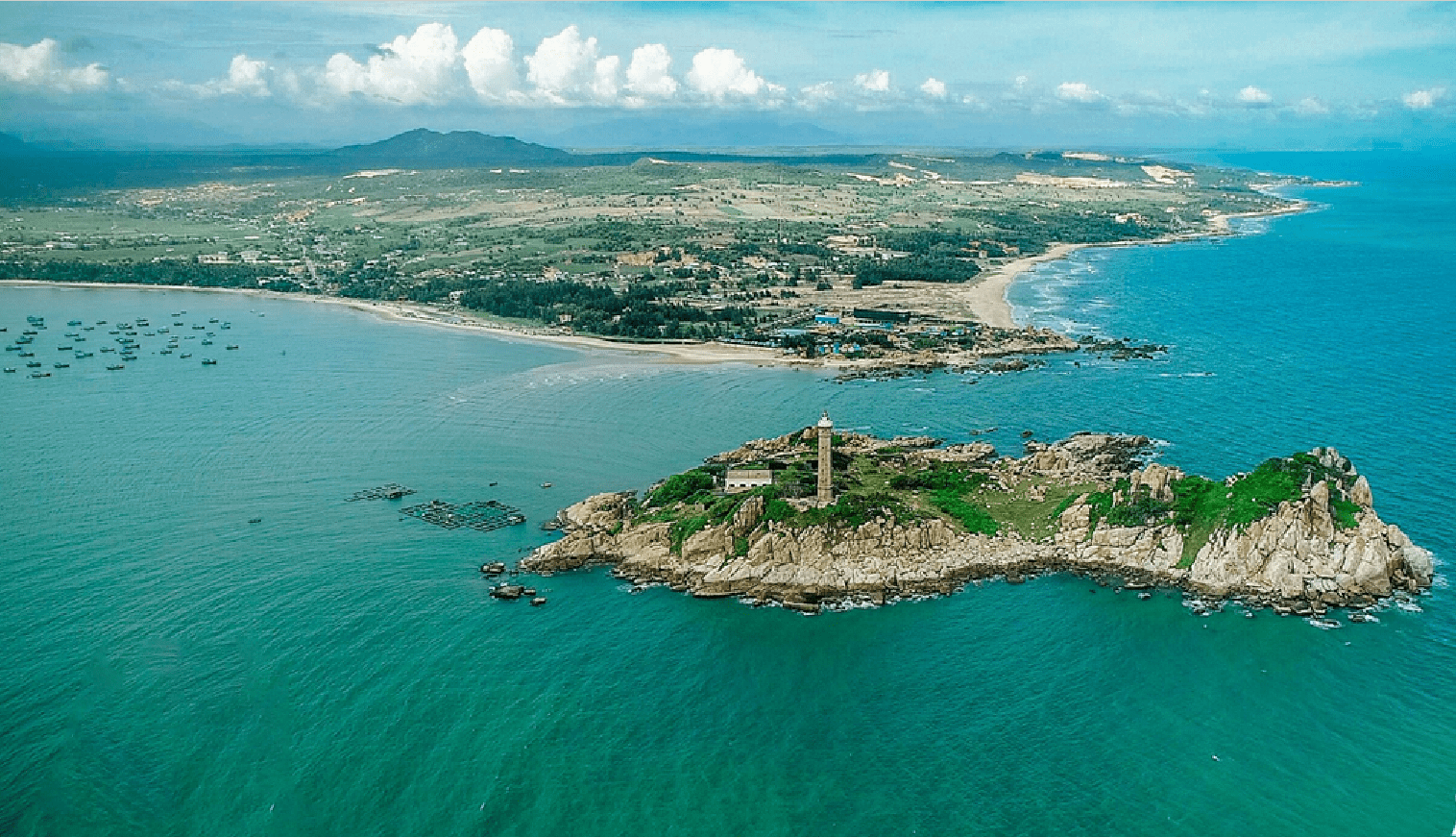 Binh Thuan (1)
Binh Thuan (1)
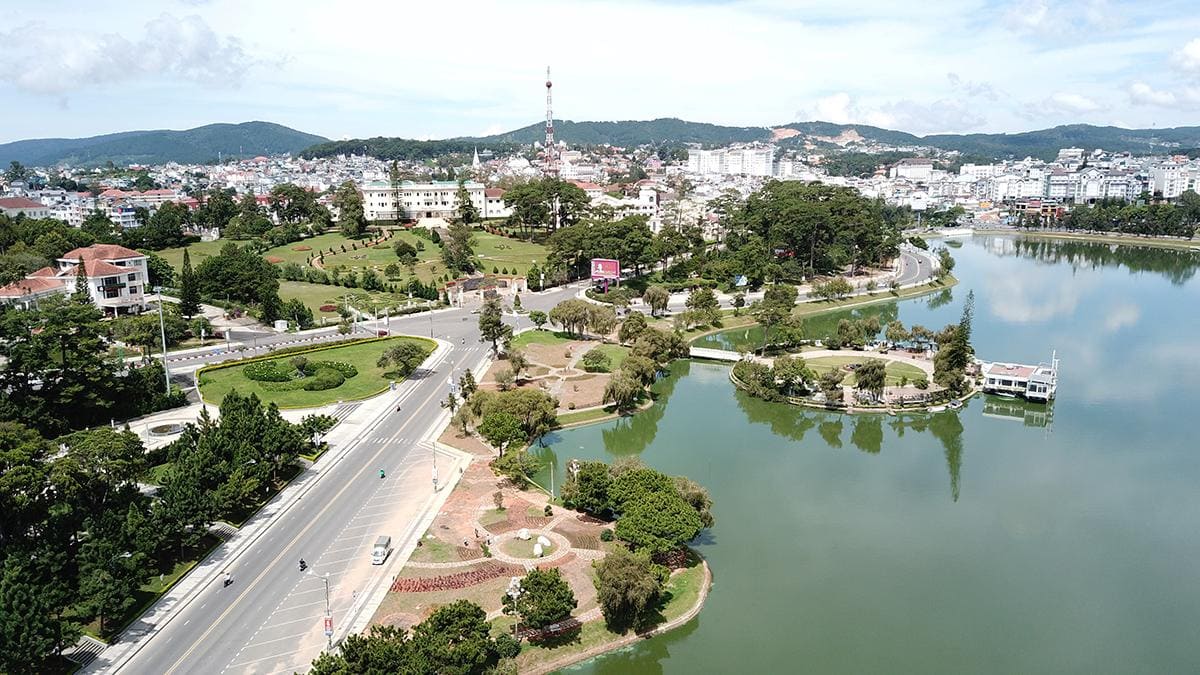 Lam Dong (7)
Lam Dong (7)
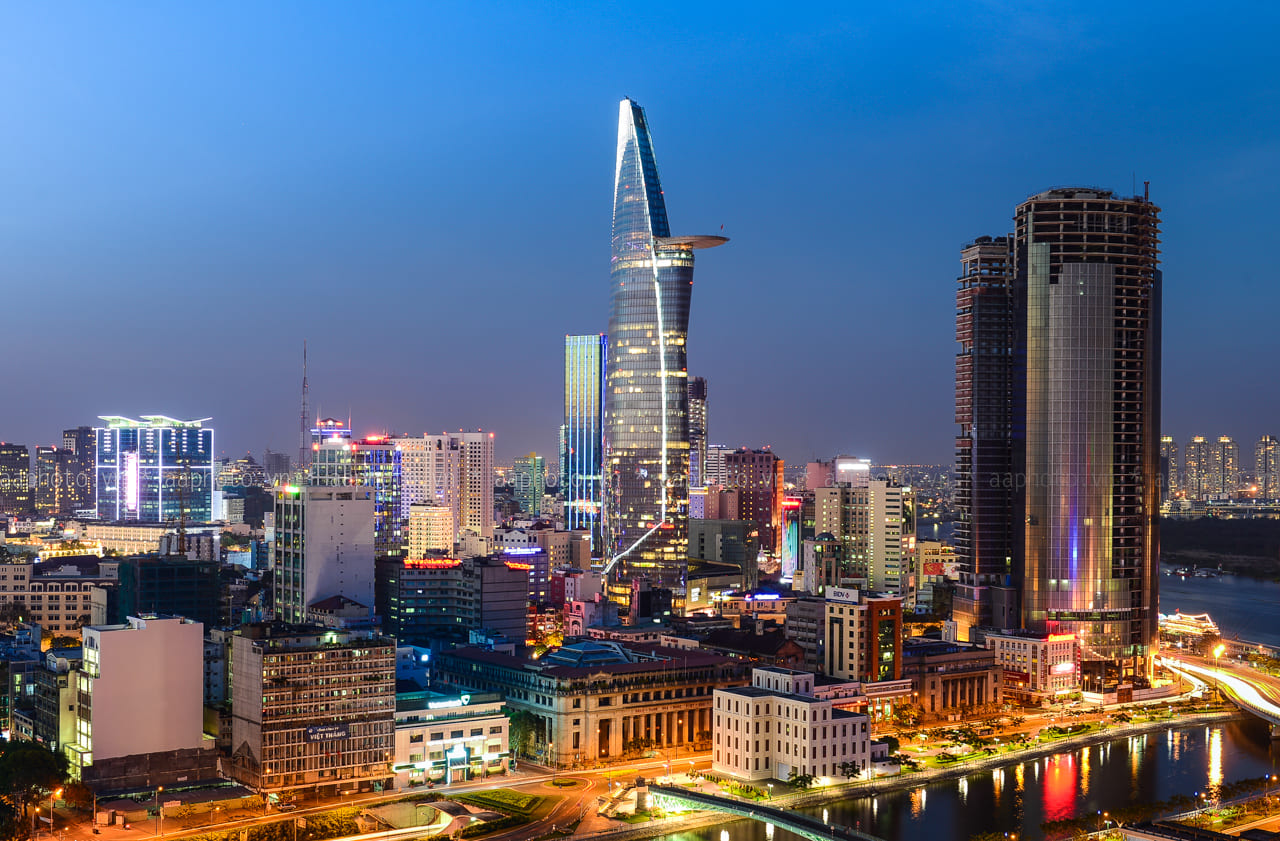 Ho Chi Minh City (3)
Ho Chi Minh City (3)
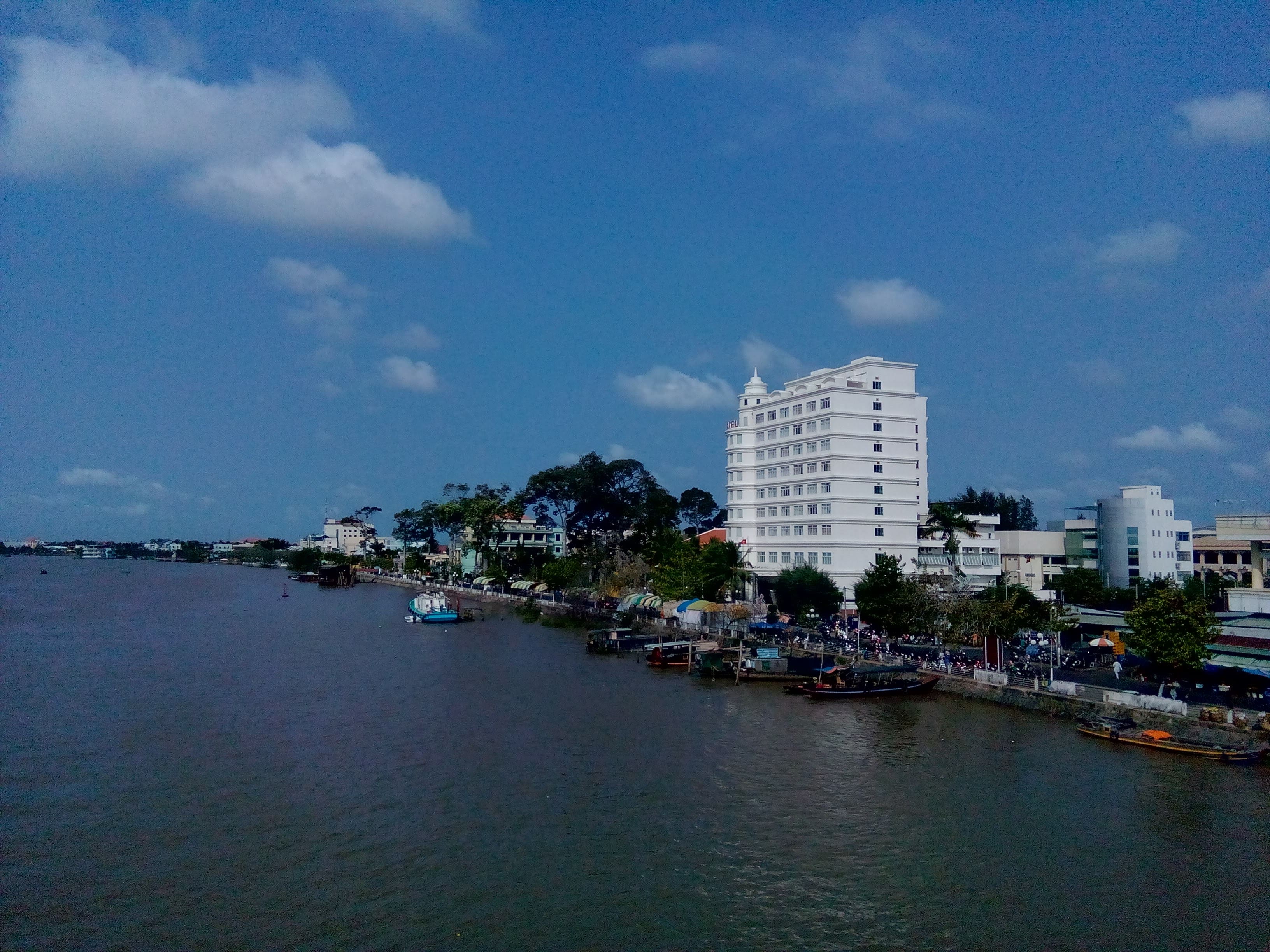 Ben tre (3)
Ben tre (3)
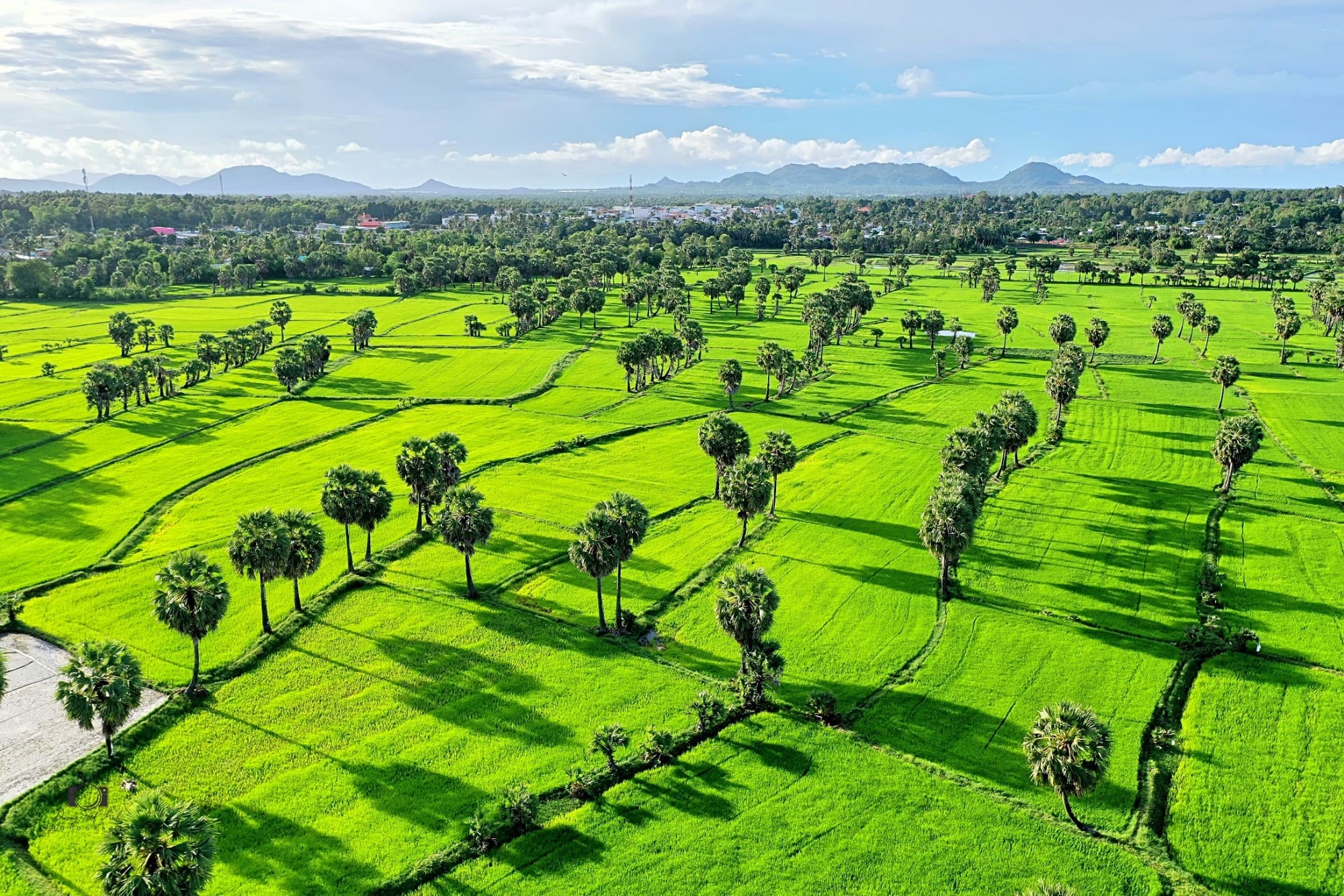 An Giang (1)
An Giang (1)
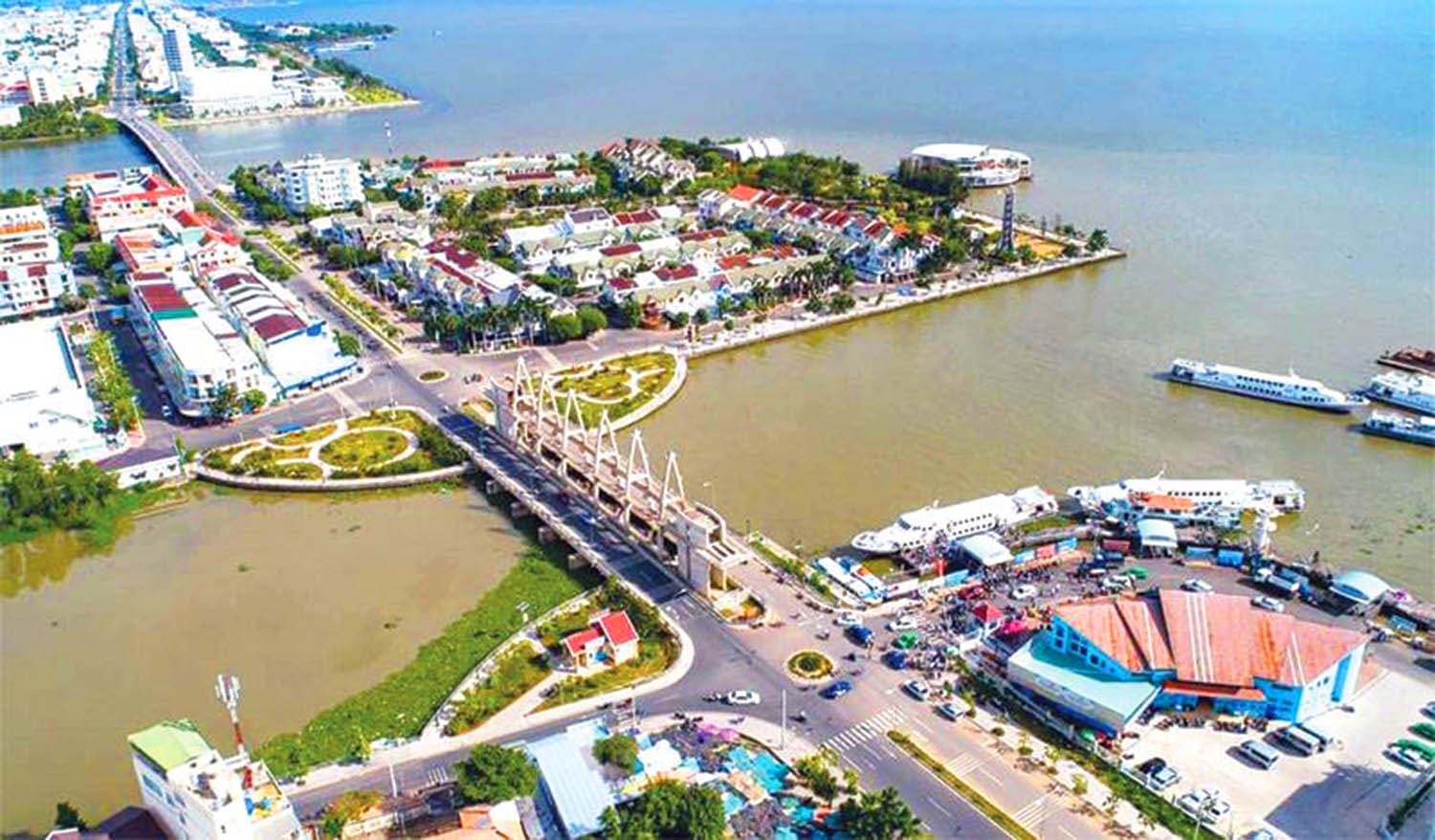 Kien Giang (4)
Kien Giang (4)
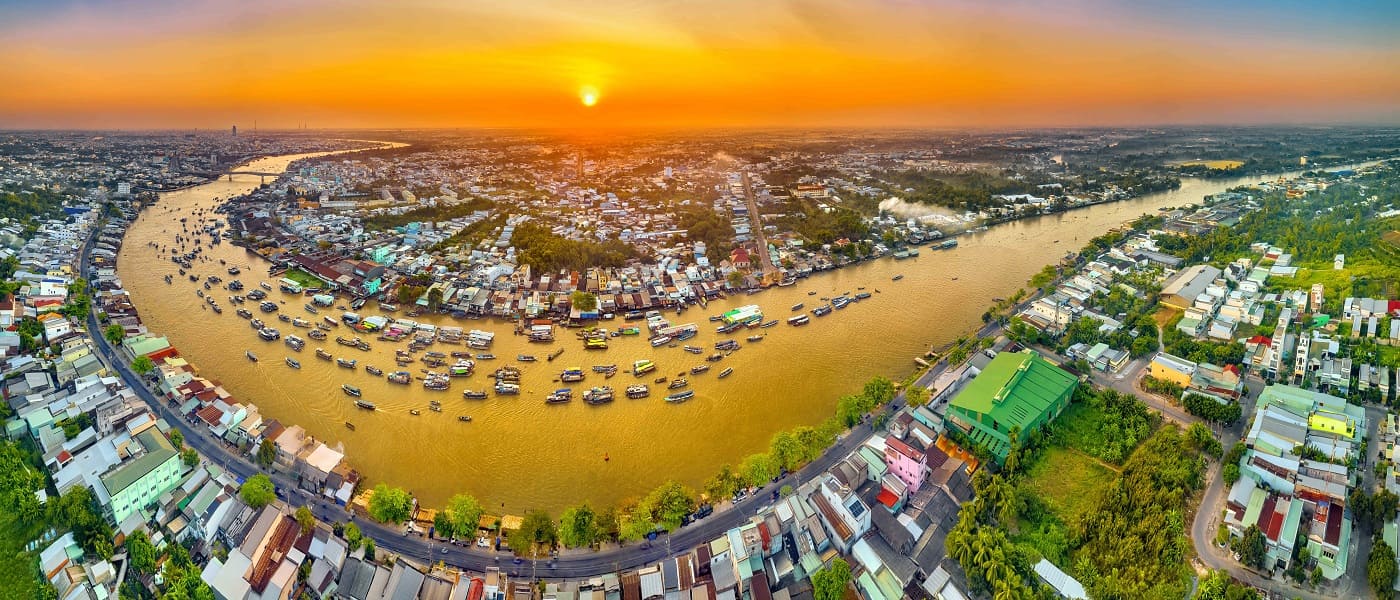 Can Tho (3)
Can Tho (3)
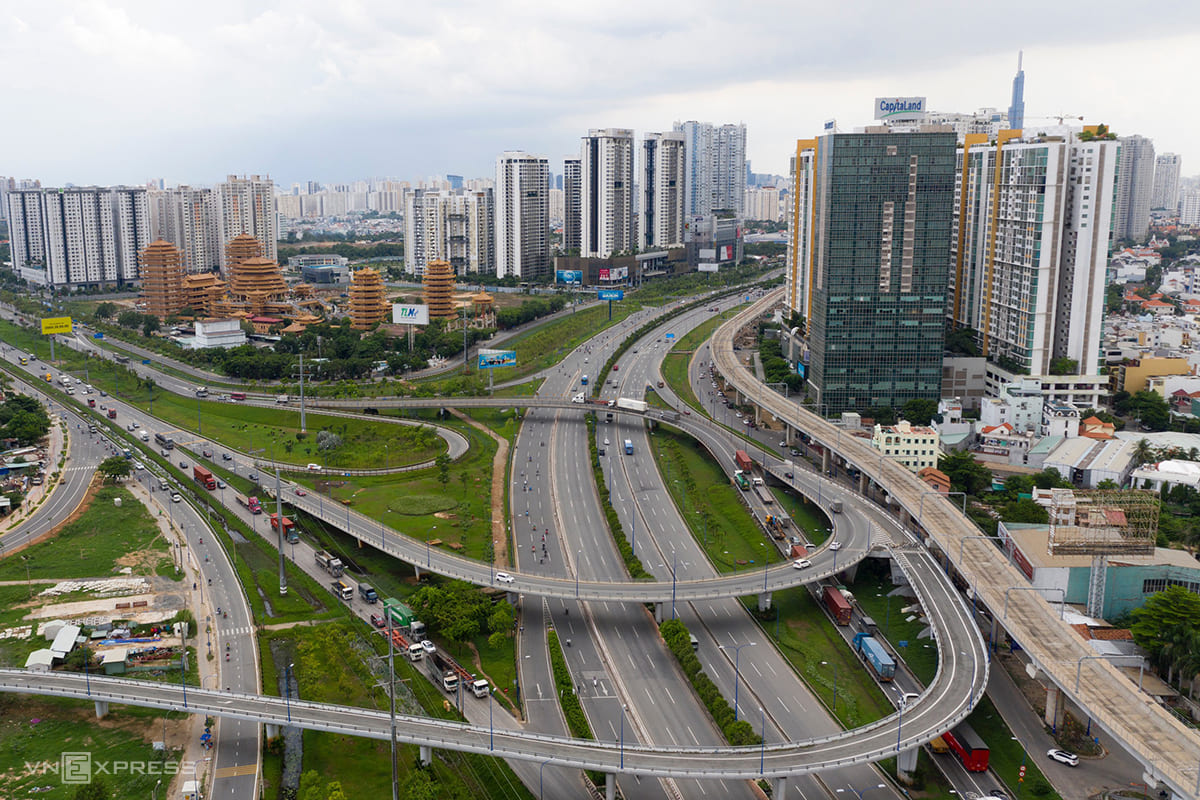 Foreign (3)
Foreign (3)
Provincial Road 152, Group 2, Cau May Ward, Sa Pa Town, Lao Cai Province
Tourism Association Lao Cai Confirmed
Evaluate 3 () See map
Just words :
19.5
$
Discount 10% member : 63Stravel Vip
Final price to pay : 17.6 $
3.0 (1 Evaluate)
See all
Homestay
Tourism Association Lao Cai Confirmed
Provincial Road 152, Group 2, Cau May Ward, Sa Pa Town, Lao Cai Province
Just words :
19.5
$
Discount 10% member : 63Stravel Vip
Final price to pay : 17.6 $
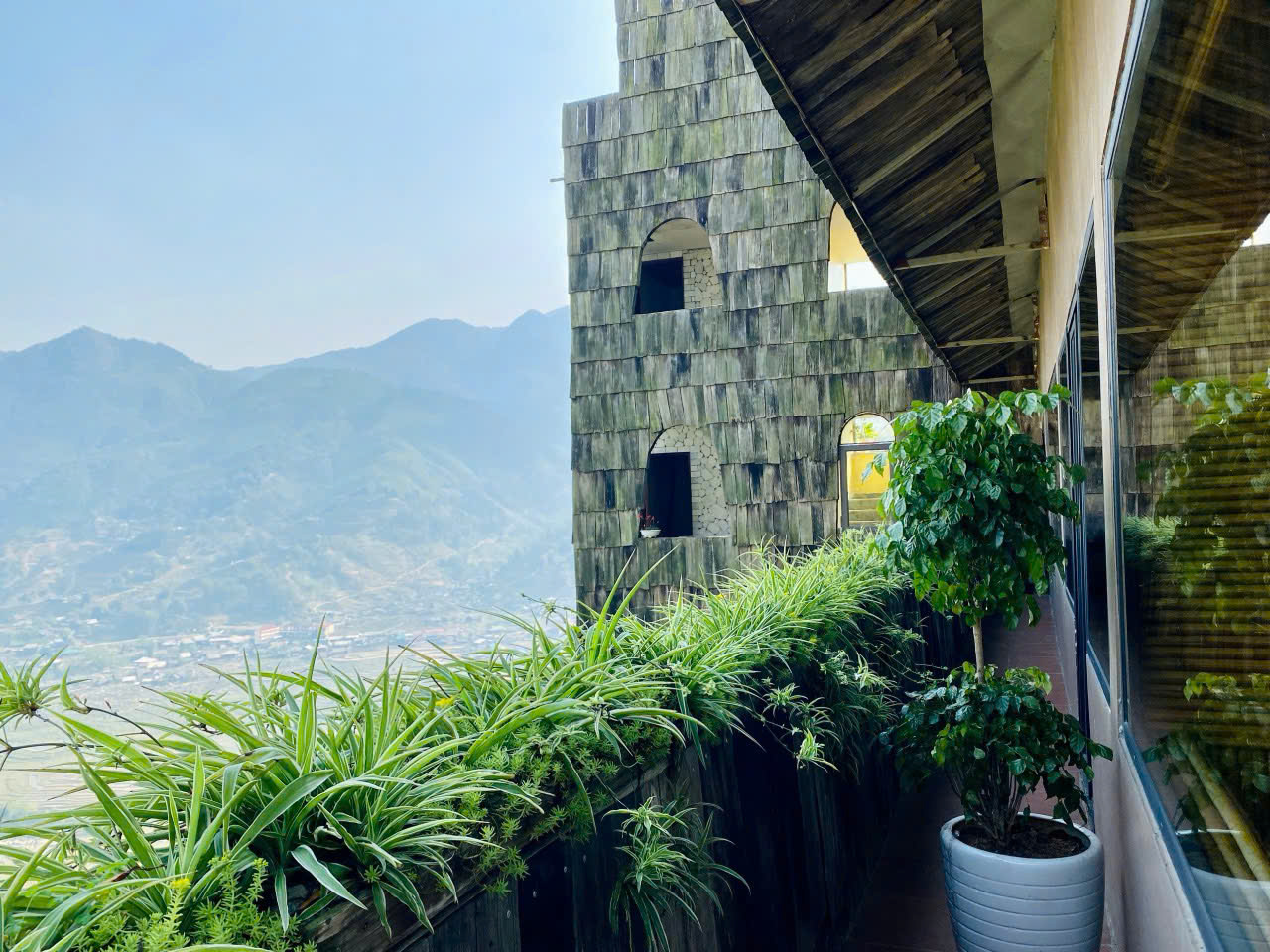
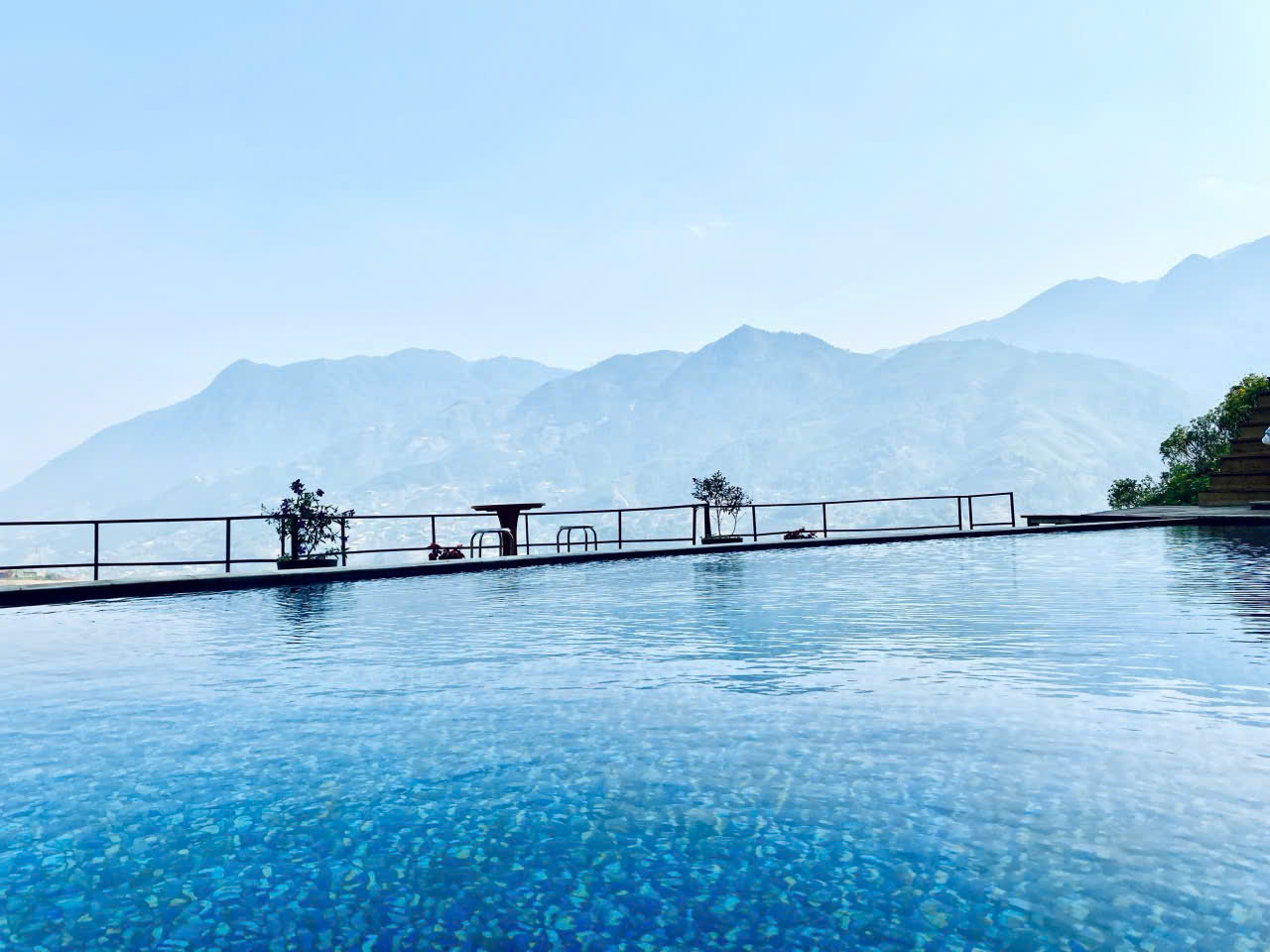
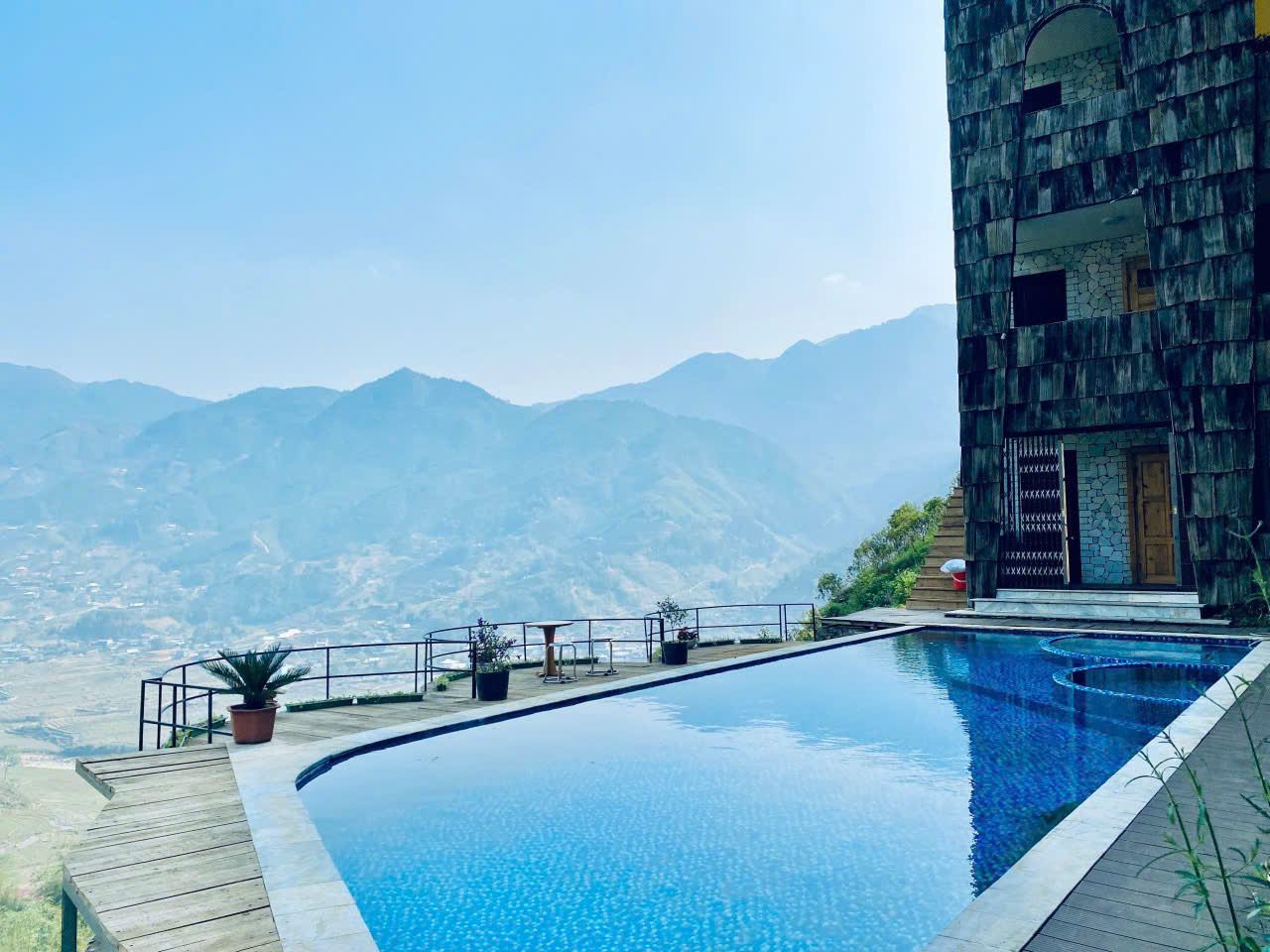
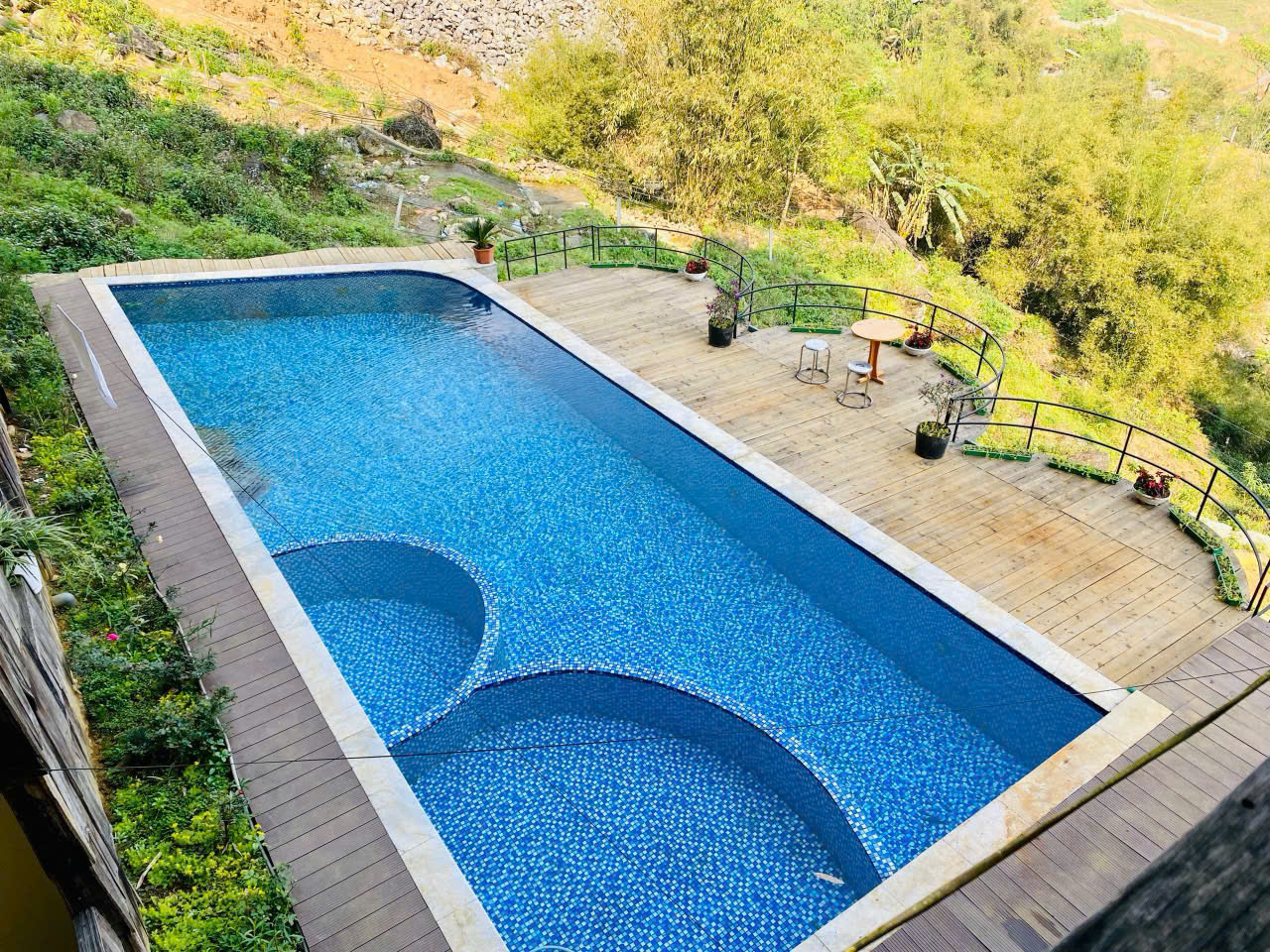
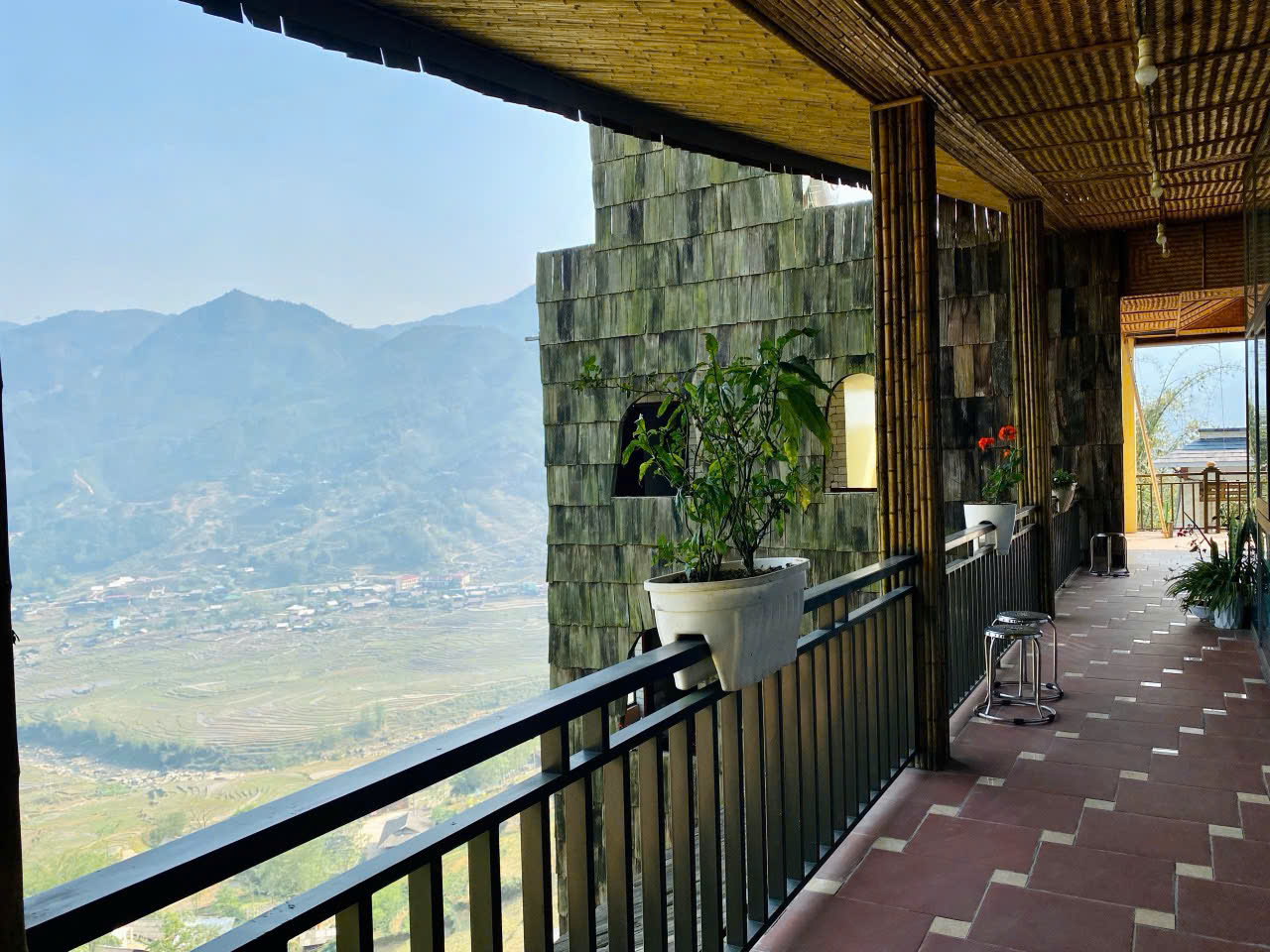
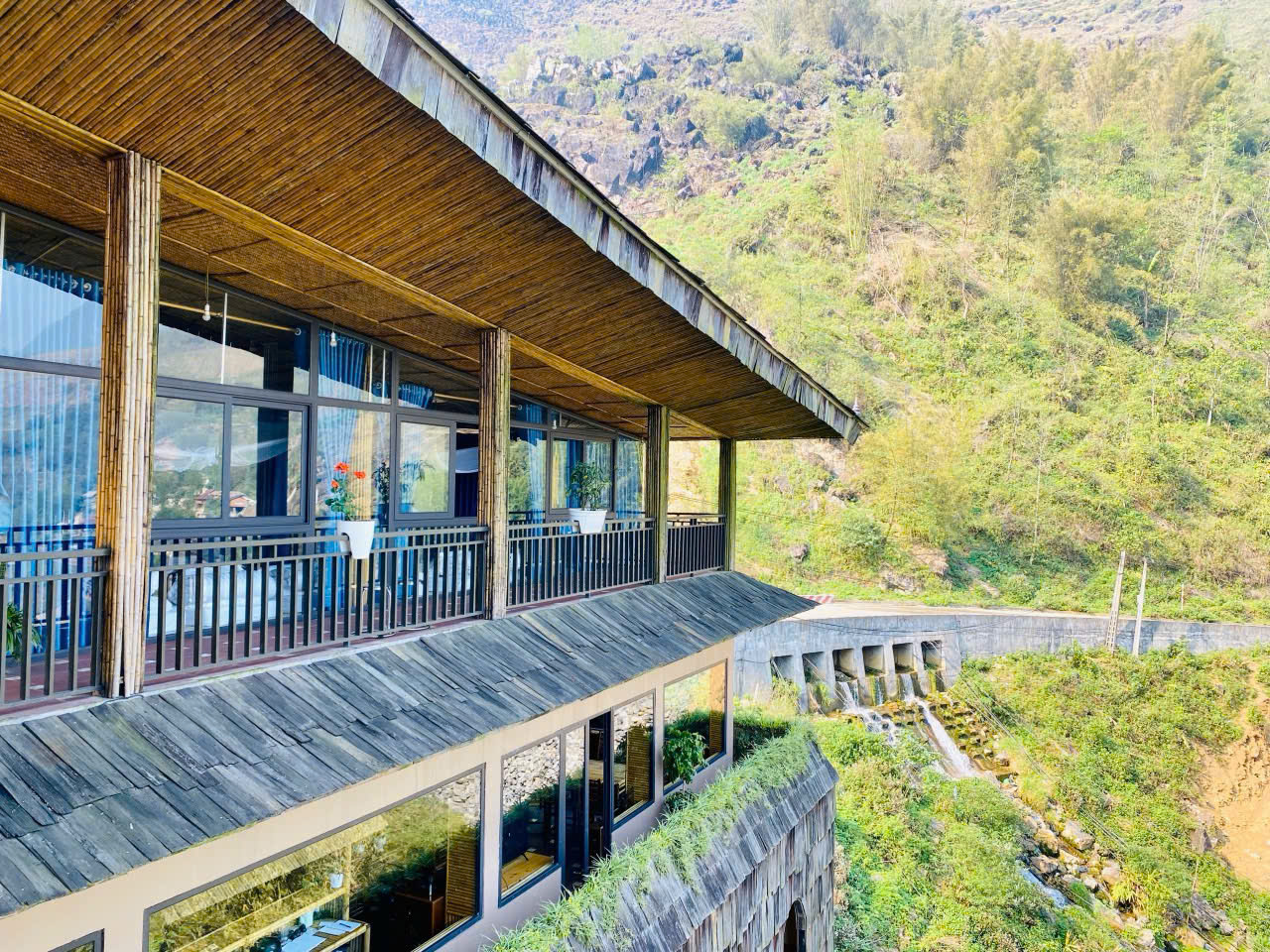
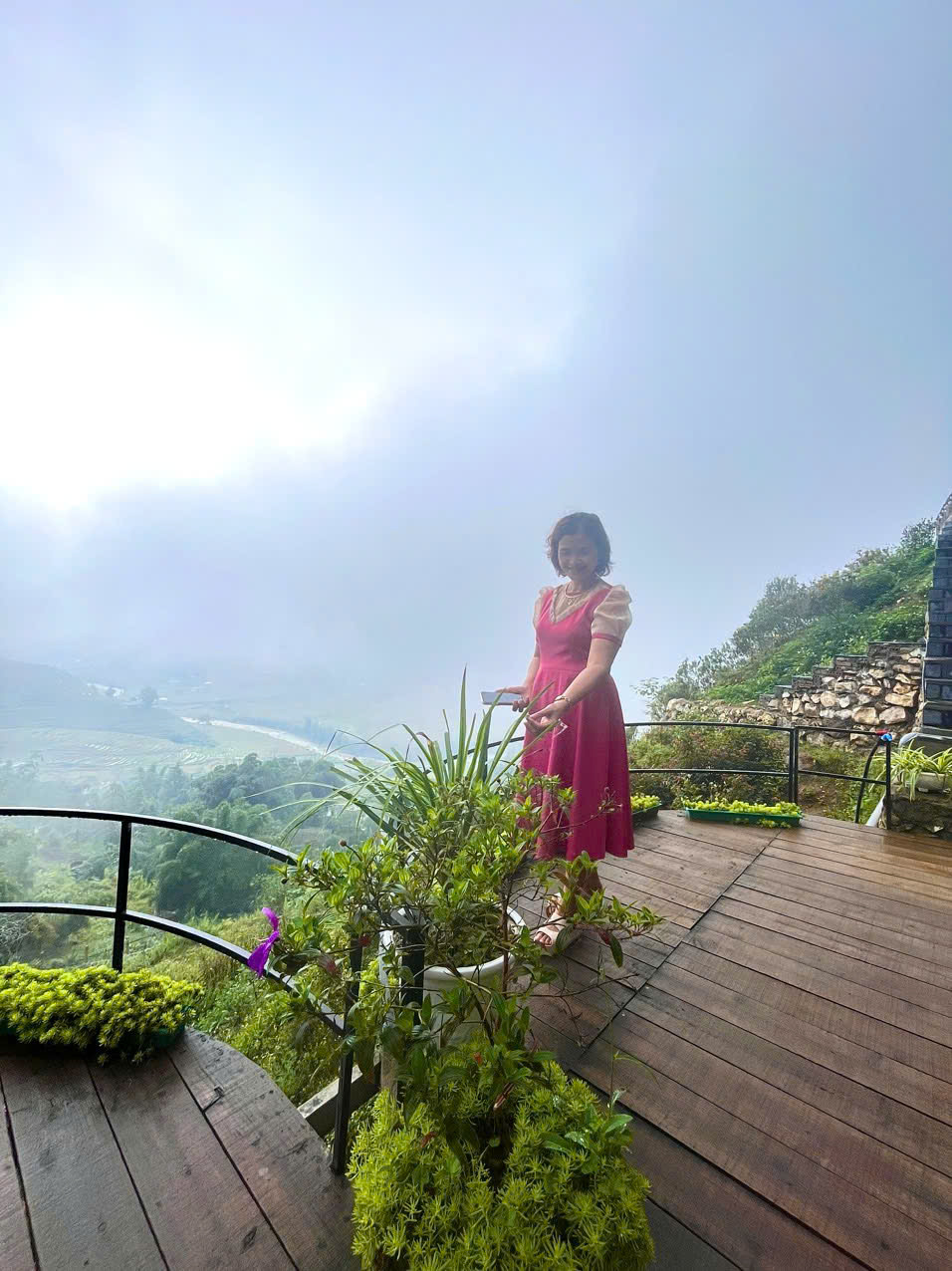

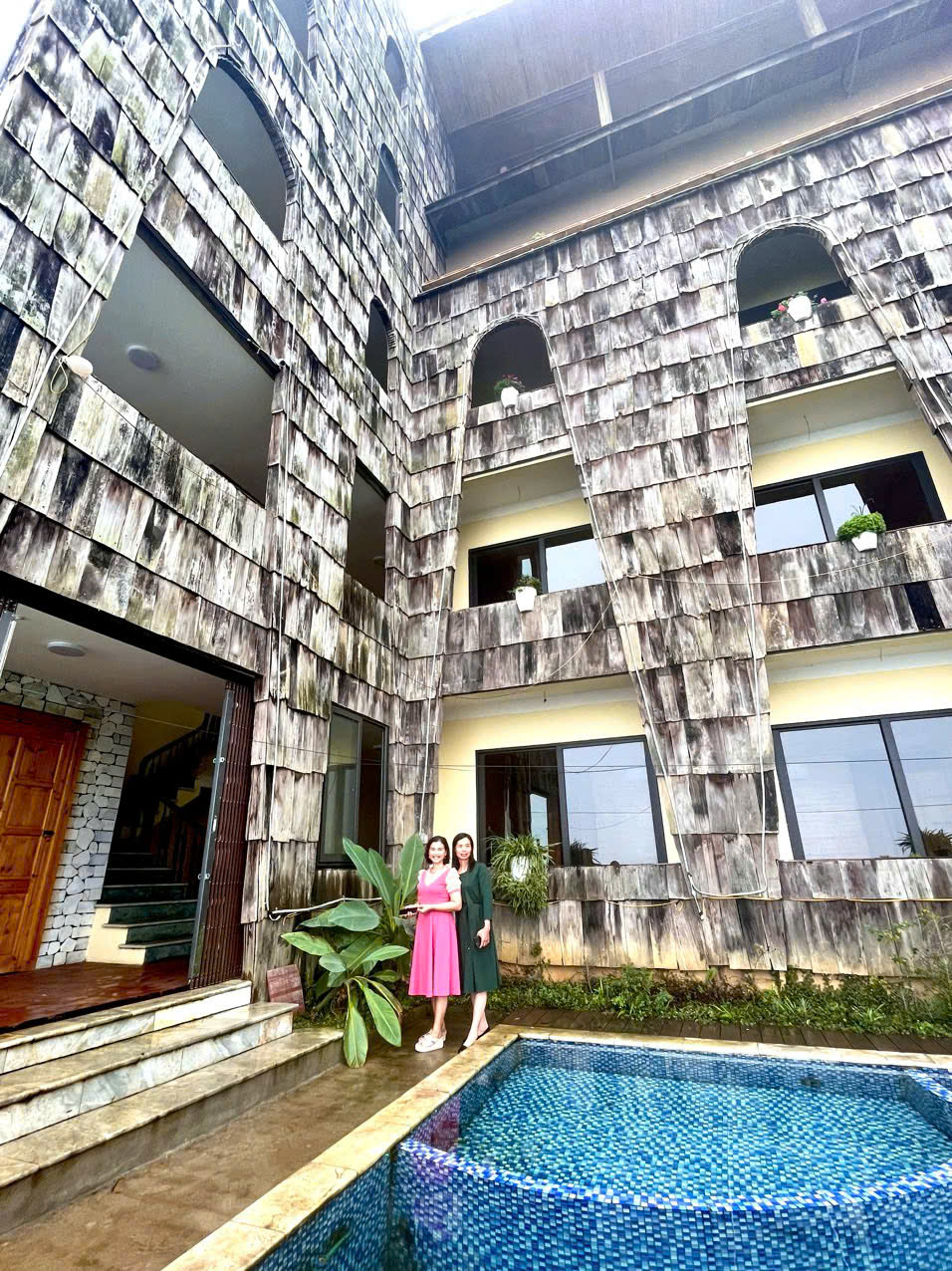
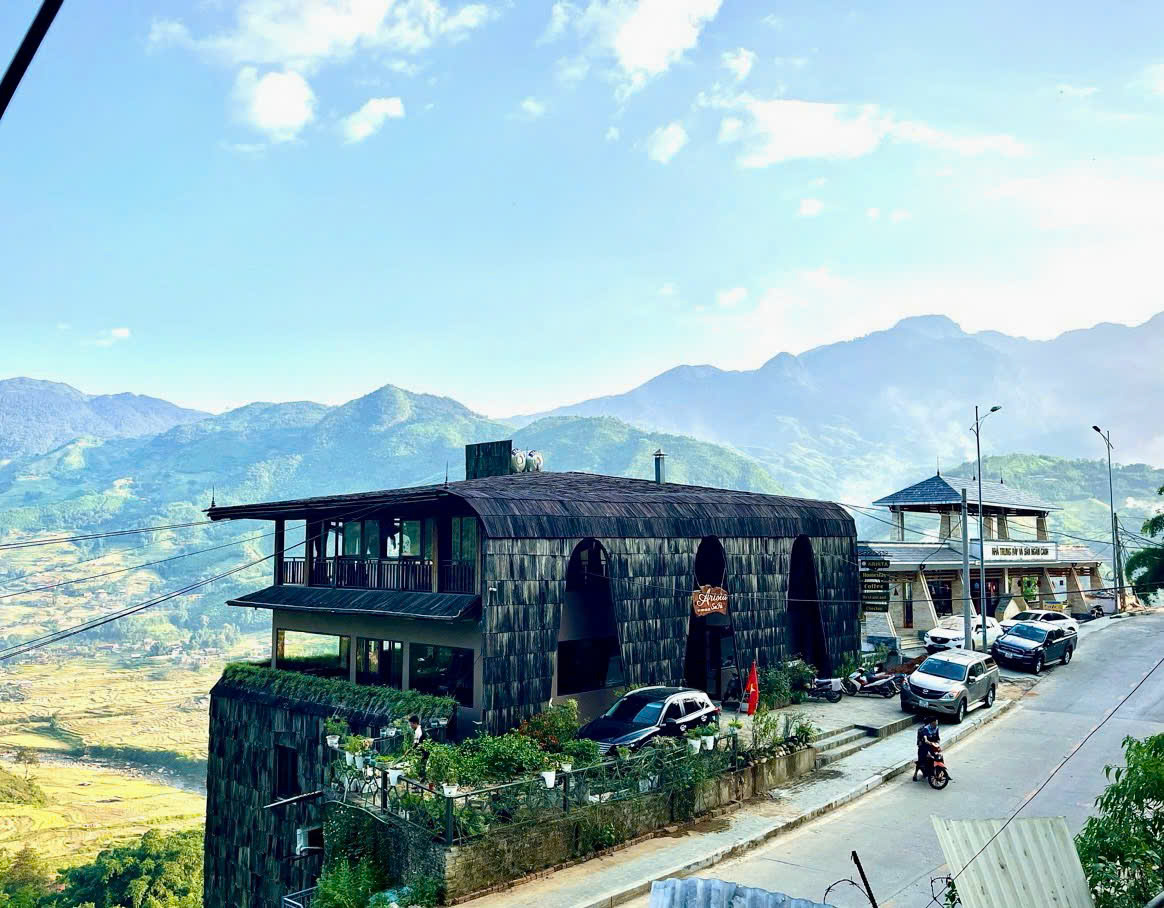
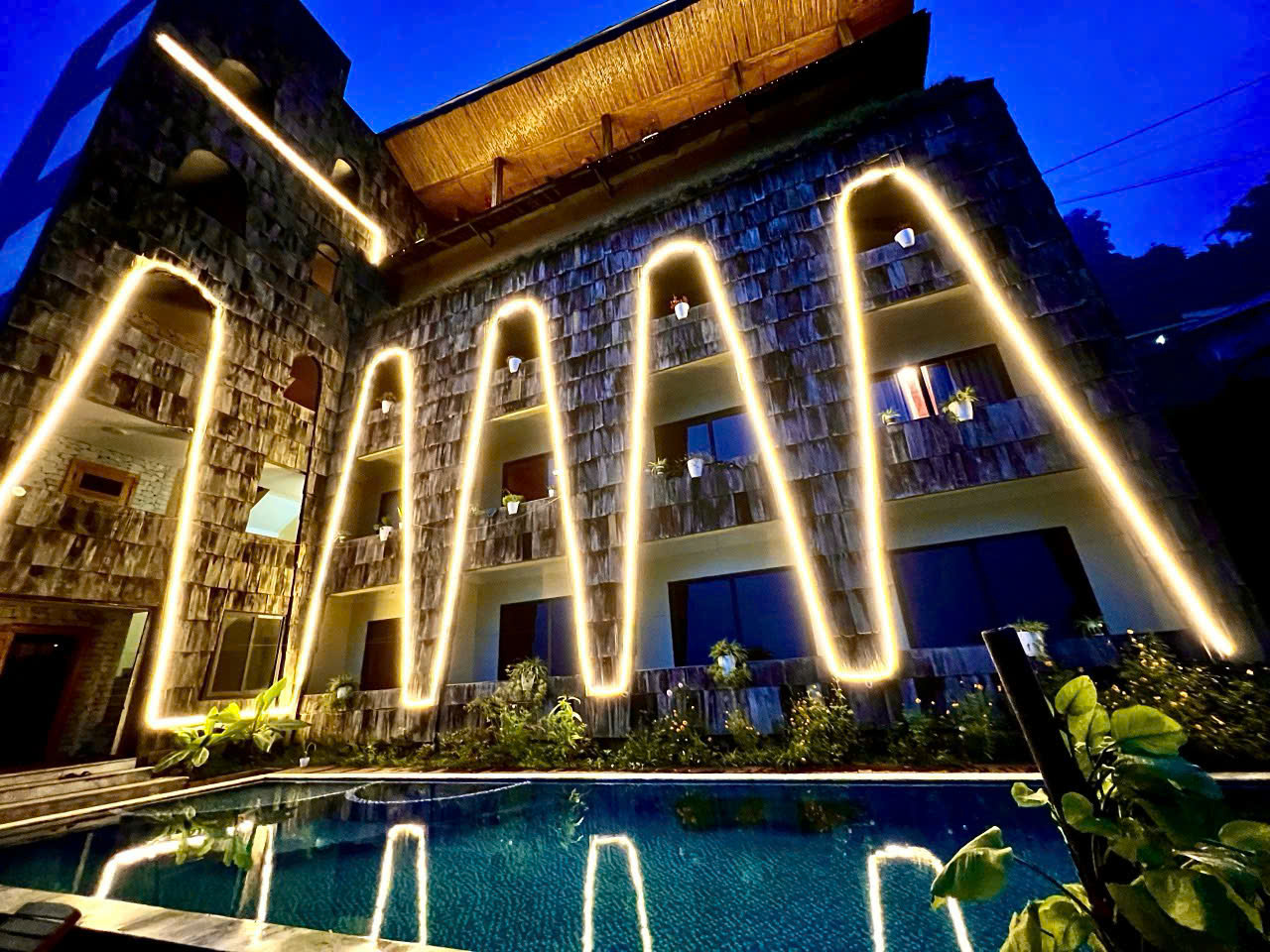
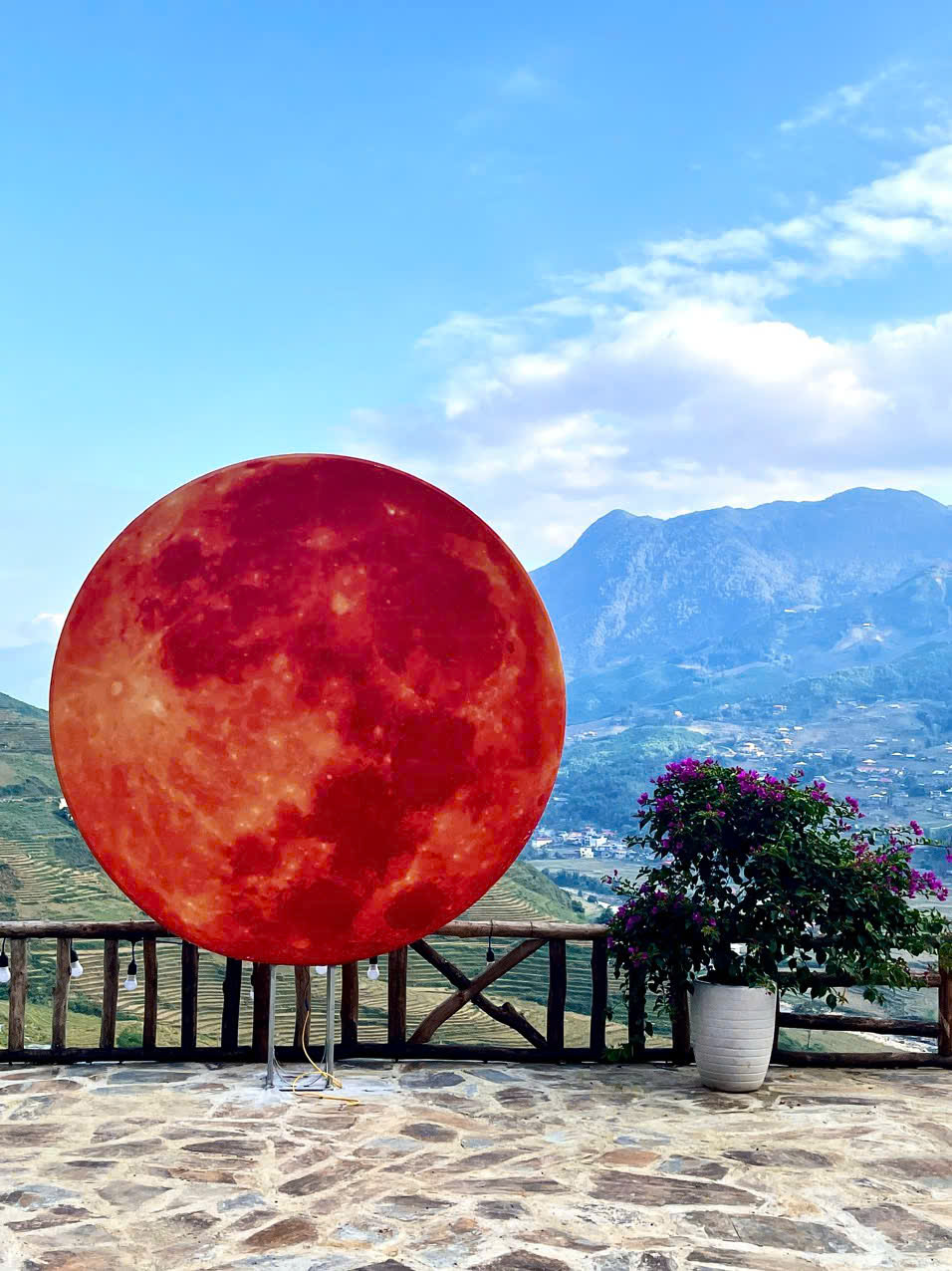
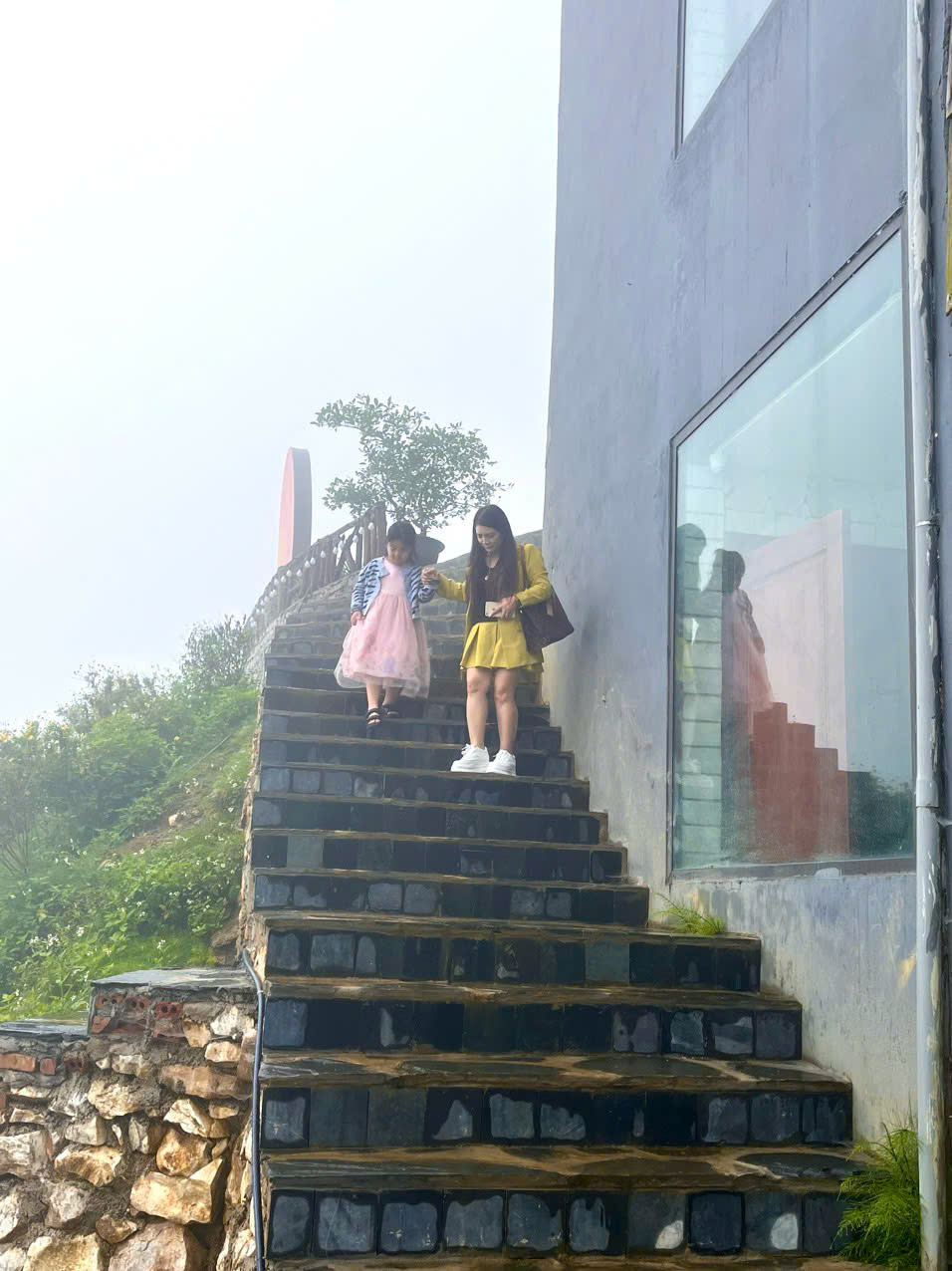
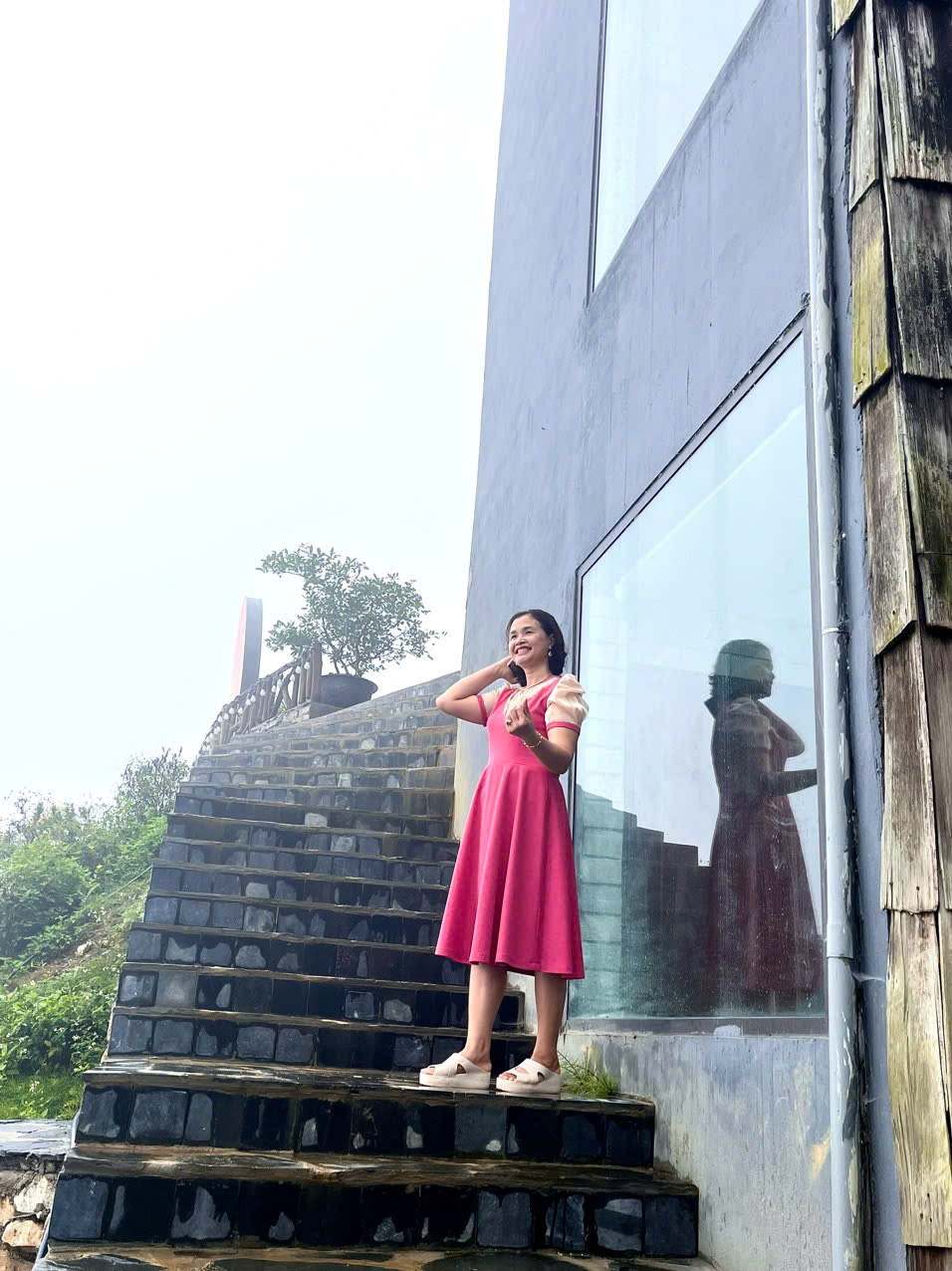
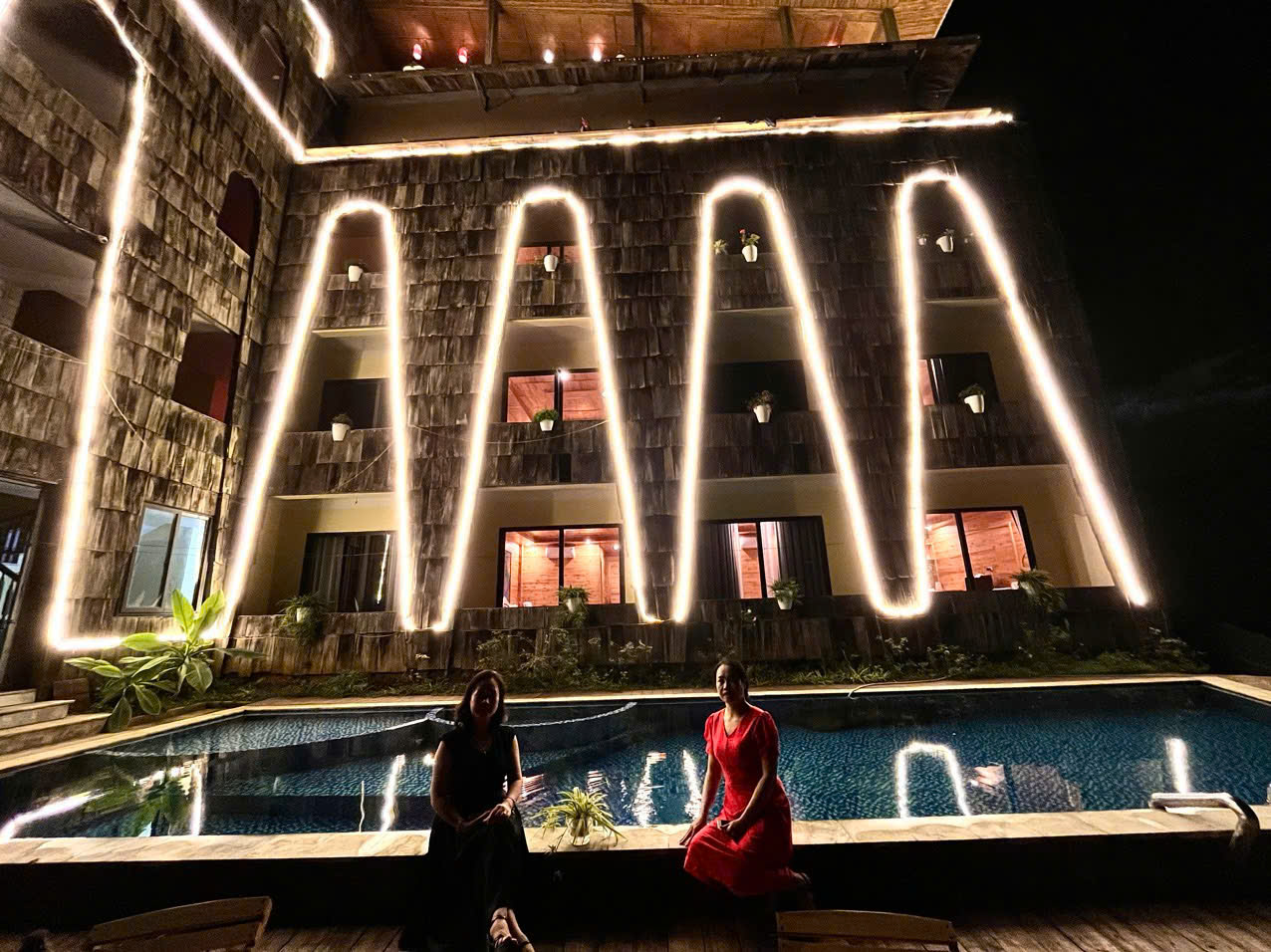
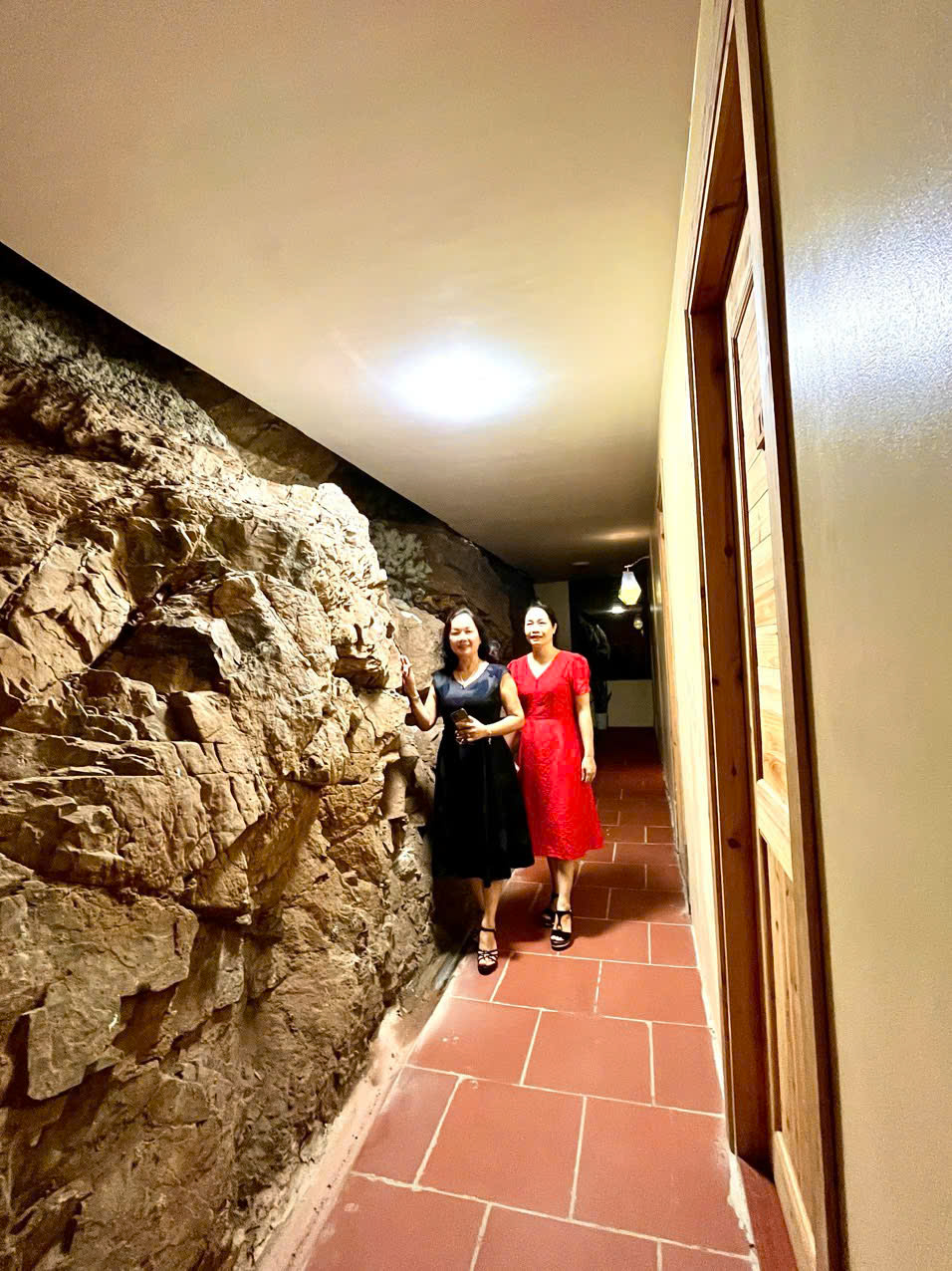

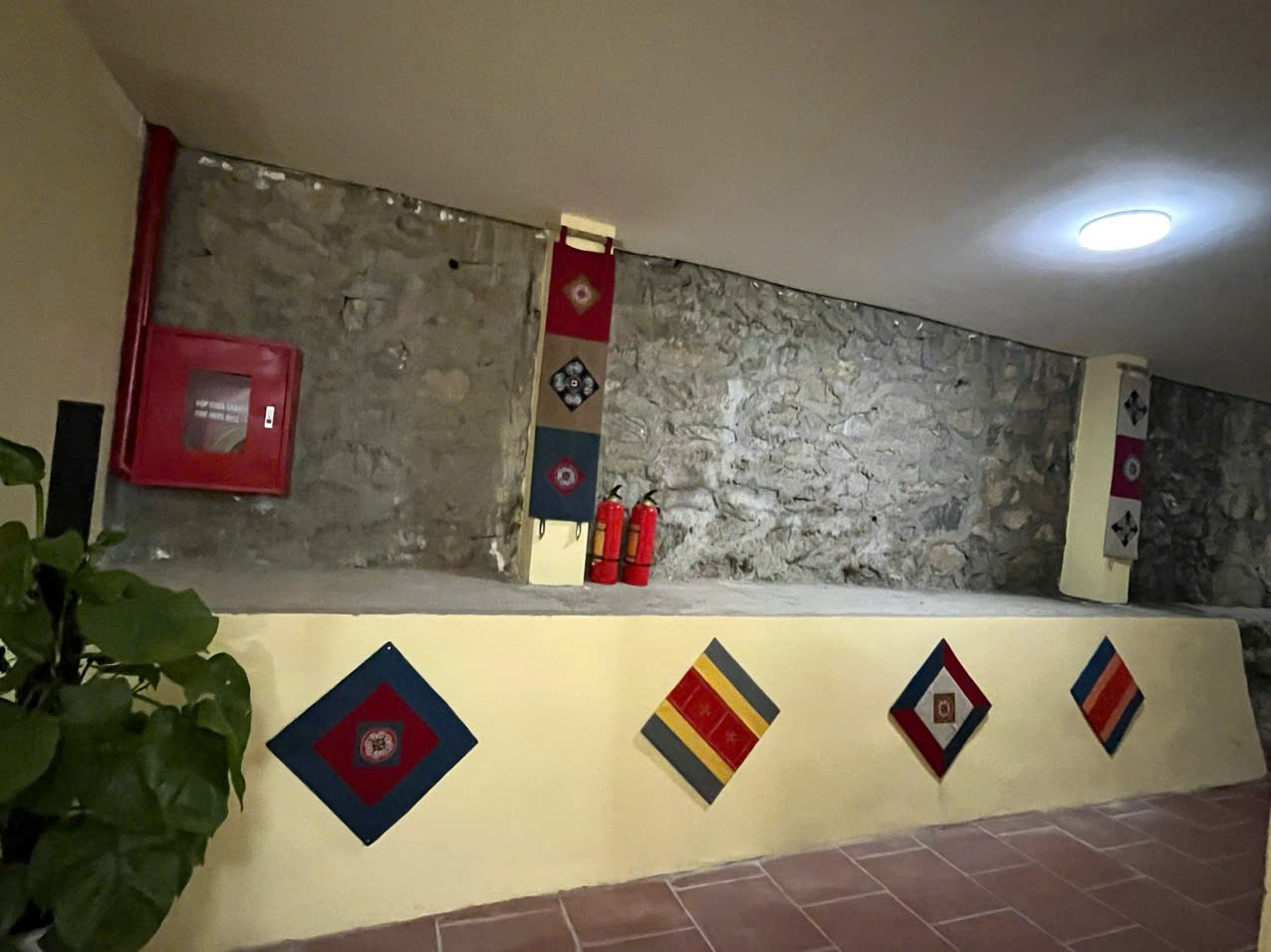
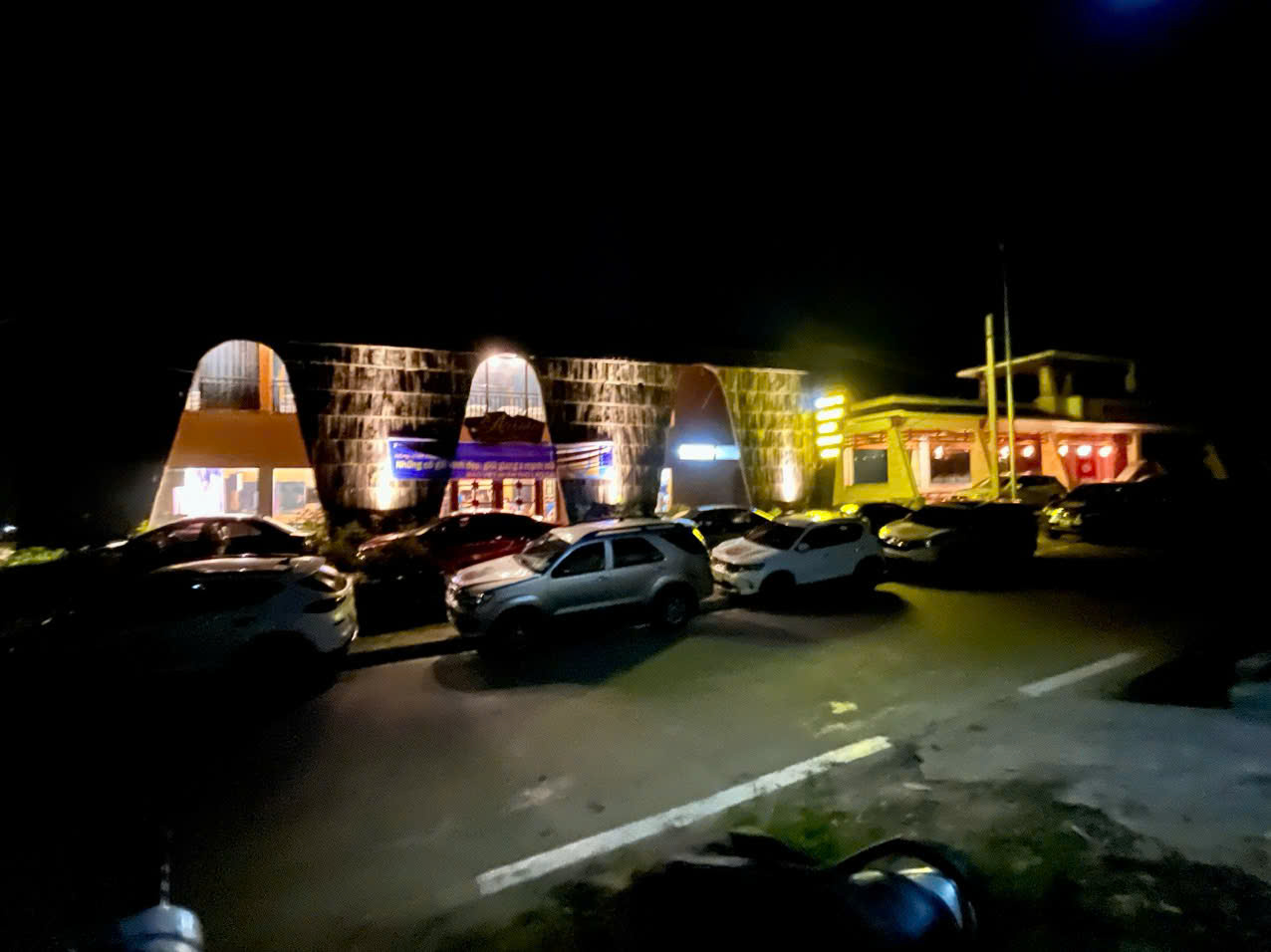
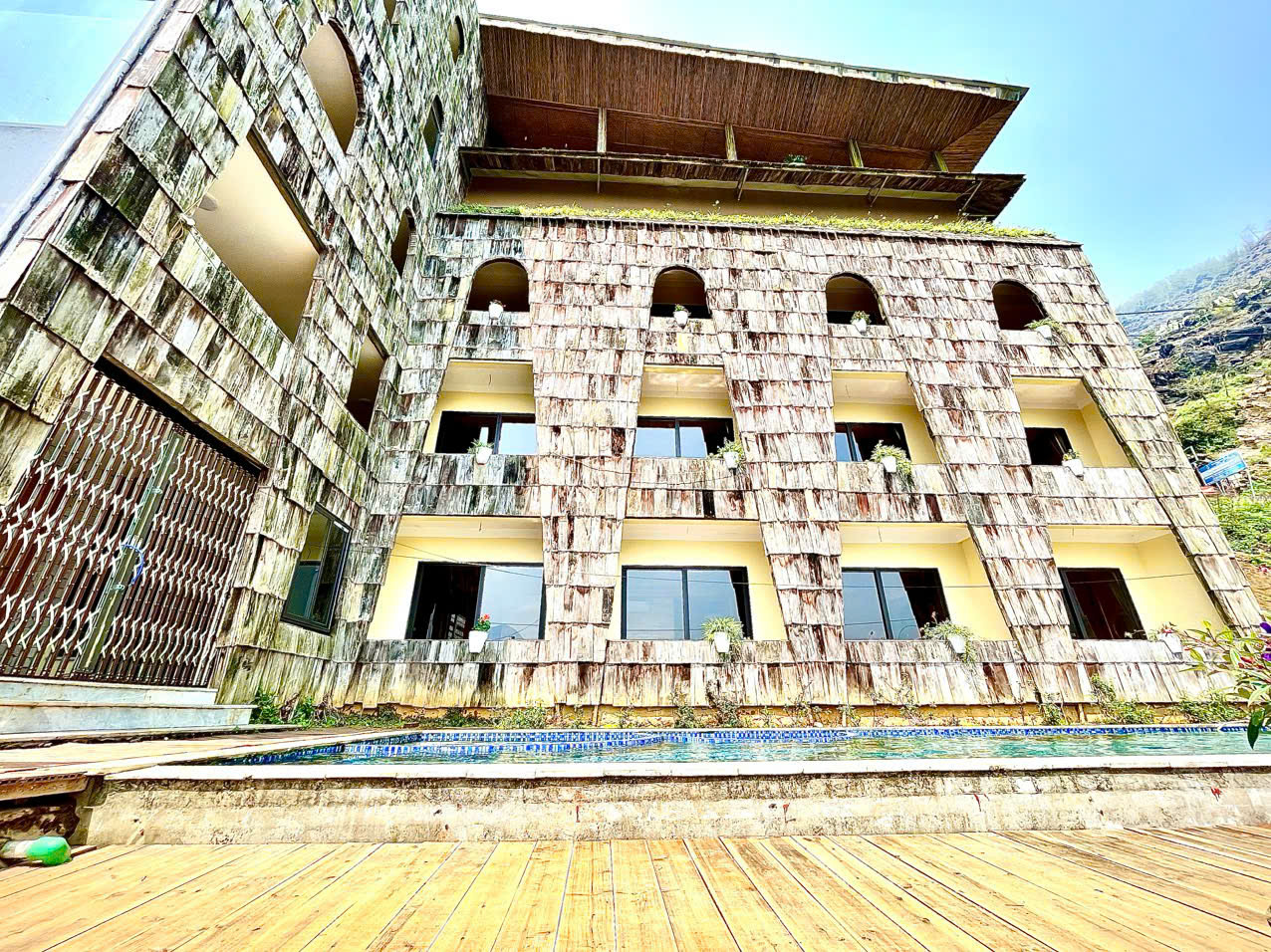
 Parking
Parking
 Receptionist
Receptionist
 Alarm
Alarm
 Special help
Special help
 Keep your luggage
Keep your luggage
 Free internet
Free internet
 Daily cleaning
Daily cleaning
 Steam laundry
Steam laundry
 Laundry Service
Laundry Service
 Iron
Iron
 Dinner
Dinner
 Lunch
Lunch
 Breakfast
Breakfast
 BBQ party
BBQ party
 Restaurant
Restaurant
 Alcohol
Alcohol
 No smoking
No smoking
 Air conditioner
Air conditioner
 Garden
Garden
 Balcony
Balcony
 Pool
Pool
Room price includes:
Surcharge policy:
Check-in and check-out time:
Other services:
Kind of room : Room with 2 beds 1m2
Capacity: 2 adults and 1-2 children under 6 years old - Breakfast included
Room price : Contact
Discount 10% member 63Stravel Vip
Final price to pay : Contact
Kind of room : Room with 1 bed 2m2; 1 bunk bed 1m6 + 1m2
2 interconnected bedrooms - Capacity of 4 adults and 2 children under 15 - Meals included
Room price : Contact
Discount 10% member 63Stravel Vip
Final price to pay : Contact
Kind of room : Room with 1 bed 1m8; 1 bed 1m2
Capacity of 3 adults - Breakfast included
Room price : Contact
Discount 10% member 63Stravel Vip
Final price to pay : Contact
Kind of room : Room with 1 bed 1m2
- Capacity 22-25 people - Glass wall room - Breakfast not included - Children from 6 years old and under 11 years old 100,000 thousand VND per child
Room price : Contact
Discount 10% member 63Stravel Vip
Final price to pay : Contact
3.0 (1 Evaluate)
See all
Room price includes:
Surcharge policy:
Check-in and check-out time:
Other services:
Ham Rong Mountain - with the image of natural cliffs stacked on top of each other forming the shape of a dragon's head, has become an eco-tourism area that attracts the most young people in Sapa. Past the ticket gate, you will see the stone stairs leading up to Ham Rong Mountain. Remember to arrange a reasonable time to fully visit this majestic mountain. It will take you about 2 hours to fully visit Ham Rong Mountain Ham Rong Mountain eco-tourism area was built to include 3 main areas: Ham Rong Flower Garden, Thach Lam Stone Garden, Ham Rong Peak. You will have the opportunity to see the panoramic view of Sapa town from above. This place is also especially popular with photographers because you can capture the frame of Sapa town hidden among the white clouds like a fairyland. To reach Ham Rong Mountain, it will take you a few minutes to walk to the ancient Stone Church, located near the center of Sapa town. If you rent a motorbike to actively move around, you can park it at the resort gate. The parking lot is run by the barbecue sellers themselves, but rest assured it won't be cut off. Parking prices will depend on the time of your visit. In case you do not know the way, rent a hotel far from Sapa town center, you can choose a motorbike taxi or taxi to get around. The locals are very familiar with the roads and because it is such a famous tourist destination, there is no one who does not know Ham Rong Mountain. The distance is quite short, so you can rest assured that you will leave the trip to the drivers. The central flower garden at Ham Rong Mountain is an area that owns flower trees skillfully arranged by talented artisans into the extremely beautiful and sophisticated word Sapa, with a very European and very strange Western style. You can climb up the higher stone steps to get a panoramic view of the beautiful flower garden. The flowers here are all imported from France, Russia... along with hundreds of Japanese cherry trees tested planted in Vietnam. There will soon be another European flower seed production area. You can freely buy flower varieties to plant at home to admire every day. Thach Lam Stone Garden seems to make you lost in a fairyland with stones that remind you of dragon claws and dragon scales, looking very unique and interesting. This area has many giant cliffs, which are natural creations, so you will be amazed by the wild beauty that nature bestows. Thach Lam Stone Garden is the most chosen place to check-in at Ham Rong Mountain because of its small, winding, romantic roads, the maze of rocks that you can't find the way out... Can you feel the enchantment of tree nature? Is there a mortar here yet? The Japanese peach garden at Ham Rong Mountain will bloom extremely beautifully on New Year's Day. There are also varieties of faded peach trees, deep peach trees belonging to the group of ancient peach trees with extremely wide flower canopy, big beautiful flowers, thick petals like peach blossoms. Every spring, the peach garden at Ham Rong Mountain is crowded with families and relatives coming to visit and enjoy the flowers, so the atmosphere is always bustling and full of laughter. The entire orchid garden has a total of 200 different orchid varieties. Because the climate is cold all year round at 15 - 18 degrees Celsius, this flower grows very well. Orchids are rare and expensive flowers because of the elegant and elegant beauty they bring, but taking care of them is quite difficult. You don't have to waste time looking for any orchid gardens in Sapa because Ham Rong Mountain is one of the places with the largest concentration of orchids. If you fall in love with this type of flower, you must definitely go to Ham Rong Mountain orchid garden once. in that life. Cloud yard, also known as Thien Dinh yard, is the "coordinate" for the best view at Ham Rong Mountain. Have you ever known the feeling of clouds curling under your feet, floating on the clouds? Looking down from San May, you will see all of Sapa town, Muong Hoa valley, Cat Cat village and even beautiful, poetic terraced fields. Follow the cliff and walk another 10 minutes to the brilliant Heaven Gate when the golden sunlight shines through the clouds. This valuable moment will become your unforgettable memory at Ham Rong Mountain. Many famous photographers from professional to amateur have traveled far and wide to come here to hunt clouds through their wonderful lenses. It will be more perfect, if you can wait until sunset, the sunset is more brilliant and perfect than ever. When coming to Ham Rong Mountain, you need to note the following points. Choosing the most beautiful time of the year to visit the peach blossom garden at Ham Rong Mountain is very right when you plan a spring trip with family, friends or colleagues. Ham Rong Mountain also owns many types of cold flowers of temperate climate such as hydrangea, dahlias... and countless other unique flowers. You should visit Ham Rong Mountain in March and April - the months when flowers bloom most beautifully in Sapa. At this time there is less fog so you can see more beautiful scenery. You can also take the opportunity from April to June to visit Ham Rong Mountain when you want to catch the scene of terraced fields in the rainy season, looking like magical silver mirrors. According to the experience of many backpackers from the travel association, you should avoid the months of July and August because at this time the road is very slippery due to heavy rain.
Lao Cai
October to May
2294 view
Located in the floating clouds, Sapa town looks like a foggy city, creating a charming landscape painting. Coming to Sapa, visitors can relax with the fresh, cool atmosphere, with many diverse nuances. Traveling to Sapa, visitors can travel by many different types of vehicles such as motorbikes, cars, or by horse-drawn carriage from Lao Cai city or Binh Lu (Lai Chau). Sa Pa has Ham Rong Mountain right next to the town, any tourist can go up there to see the panoramic view of the town, Muong Hoa valley, Sa Pa, Ta Phin hidden in the smog. Currently, with human hands embellishing, Ham Rong is truly a fruitful landscape of Sa Pa. Coming to Ham Rong, visitors feel like they are lost in a fairy garden, with clouds covering their bodies and bright, colorful flowers on the ground. In Sapa town there is also an ancient church made of stone, and from here going back to the northeast, on the way to Ta Phin cave, there is a monastery built almost entirely of stone on a clear hillside. , cool. Going up about 3 kilometers we will see a cave. In the cave, many stalactites create interesting shapes such as dancing fairies, sitting fairies, distant fields, and sparkling forests. More specifically, when coming to Muong Hoa valley, there are 196 islands carved with many strange images of ancient inhabitants thousands of years ago, but many archaeologists have not yet been able to decode that information. The ancient carving site has been classified as a national monument and is being proposed by our State to be ranked as a world heritage site. Here there is also Silver Waterfall from a height of over 200m, the rushing water creates the sound of mountains and forests. Sa Pa is also the "kingdom" of flowers and fruits, such as peach blossoms, large yellow peaches, small yellow peaches, queen plums, purple plums, tam hoa plums, gladiolus flowers, plum blossoms, pear blossoms, peach blossoms, chrysanthemums, roses... especially immortal flowers that live forever. Coming to Sapa in the snowy season, visitors will also admire surprisingly beautiful natural scenery that few places have. The green color of rice fields on terraced fields is replaced by the white color of snow, creating an extremely majestic scene. There are beautiful and enchanting poetic scenes, there are herds of bell-necked guinea cows leisurely grazing, there are beautiful pine forests shimmering magically under the sunlight... Coming to Sapa, we can shake off all the worries of life. Life is a place where time stops so we can leisurely and freely enjoy heaven and earth.
Lao Cai
From January to December
2034 view
Fansipan peak, also known as Phan Si Pang, Fansipan is located in Hoang Lien Son mountain range, the peak is far from TT. Sa Pa is about 9km southwest. Fansipan peak is adjacent to two provinces, Lao Cai and Lai Chau, in the Northwest region of Vietnam. This place has rolling mountain terrain, steep cliffs, and rough rocky roads. Fansipan's weather at night turns cold. The higher you go, the deeper the temperature drops. For every 100m you go up, the temperature drops 0.6 degrees Celsius. You can go to Fansipan at any time of the year, because every season Fansipan is beautiful in its own way. Spring (February - April of the solar calendar). In the spring, visitors to Fansipan often visit temples on the mountain to pray for good luck and peace. In addition, this season plum and peach blossoms bloom throughout the Northwest mountains and forests, and the weather is chilly, making many tourists excited. Summer (May - July of the solar calendar). Unlike the heat across the country, Fansipan's weather this season is cool (from 6 - 18 degrees). Fansipan with clusters of bright red Azalea flowers, ancient roses, climbing roses, blueberries,... competing to show off their beauty. Autumn (August - October of the solar calendar). Autumn is the season of ripe rice in the Northwest. Coming to Fansipan this season, you will admire the golden terraced fields as beautiful as in a painting. Winter (November – January). When winter comes to Fansipan, you will see snow falling as romantic as Europe in Vietnam. This is probably one of the things that makes Fansipan always receive special love from tourists in the winter. In particular, Fansipan Legend also organizes festivals and cultural events throughout the four seasons of the year. Spectacular scale, elaborate preparations such as: Rhododendron Flower Festival, Horse Hoofs in the Clouds Event, Ripe Rice Festival, Winter Festival, Flower Festival,... Currently, there are 3 main routes to climb Mount Fansipan. Each route will be suitable for different people. You can choose depending on the purpose, health and climbing experience of the group to choose the most suitable route. You can go on a Fansipan mountain climbing tour or go in a group, you need to pay attention to avoid getting lost in the group as well as carefully prepare your climbing gear before going. Below are 3 routes to reach the top of Fansipan including: Climbing Fansipan along Tram Ton road (this is the easiest choice), Sin Chai - Tram Ton route (normal difficulty), Climbing Fansipan from Cat village Sand (highest difficulty). Climbing Fansipan peak, you will enjoy all the wonderful things that the nature of the mountains and forests here have to offer such as: watching the clouds and wind blending with the trees and flowers in the forest, passing through giant rocks, Deep holes, steep cliffs, or bright red Rhododendron flower forests on the mountains, clouds and fog covering the path,...
Lao Cai
From January to December
2399 view
Ta Phin village is not only famous for its pristine natural scenery, terraced fields, etc., but it is also a tourist destination for many tourists who want to come here to learn about customs and bold cultural beauty. national identity. Ta Phin village is located about 17km from the center of Sapa town in the opposite direction to Highway 4D. When going from Lao Cai city about 4-5km, there is a fork that turns onto a small asphalt road. Go a little further and you will see a small asphalt road. Toll booth, each person has a ticket for 20,000 VND, then turn left and go back to Ta Phin. To get here, you can rent a motorbike for about 120-170 thousand VND/motorbike or if you are afraid of steep mountains, you can rent a motorbike taxi or car in Sapa center. In many parts, the car runs along the hillside, on both sides are green terraced fields, the edges of the fields curl close to the back of the hill, creating soft, graceful curves like undulating waves in the valley. . This is a village of the Red Dao people that brings differences in house architecture, home decoration, writing, costumes, jewelry and especially customs and festivals. The goods Dao women sell are backpacks, travel jackets, scarves, handbags, etc. In particular, brocade is an indispensable gift for tourists every time they set foot in Sapa. The patterned lines shown on the brocade are the quintessence of a culture imbued with national identity, making Sapa brocade more different from brocades of other regions. Not only is it a place with majestic natural beauty, Ta Phin village is also famous for its medicated bath service to firm and healthy skin. The medicated bath price is about 80-100 VND/time or you can buy cloth sheets. Precious brocade as gifts for family and friends. Besides, in Ta Phin there are also many photography locations such as Ta Phin Sapa monastery and Ta Phin cave - where there is a limestone mountain range and a branch of the Hoang Lien Son range. With a height of about 5m and a width of 3m, it opens a path through the ground and there are many beautiful stalactites under the cave. Besides, there is a suspension bridge over Muong Hoa stream that brings attractive beauty along with azalea flowers as a highlight to attract young people to come here to check in. In Ta Phin village, there are also special dishes imbued with the traditional flavors of the people here such as braised armpit pork, stir-fried village chicken with lemongrass, pork soup cooked with bamboo shoots and dracontomelon,... Come to Ta Phin Sapa village , visitors will understand more about the customs, habits, and daily life of people such as wedding ceremonies, Bai Tram dance ceremonies, catching turtles, buying bells, singing love songs,...
Lao Cai
From January to December
2132 view
Where is Cat Cat village? Cat Cat village is a small village located in Muong Hoa valley in Lao Cai province; About 2km from Sapa town center. Cat Cat village has long attracted tourism enthusiasts because even though it is only a small village, this place is covered with the green of mountains and forests, terraced fields mixed with the rustic and simple features of the houses. Small is built from wood. Thereby, giving visitors a sense of simplicity in contrast to the hustle and bustle of the city. Directions to Cat Cat village. From Sapa town center, there are many different ways and means that you can experience to get to Cat Cat village: 1. Trekking For those who love enjoying natural landscapes and want to have a clearer view of the daily lives of local people, trekking is definitely a great choice for you! Trekking not only helps you improve your physical fitness, the authentic experience makes the trip more memorable, but it's also completely free. 2km is the distance from Sapa town to Cat Cat village, if you like it, you should try it once! If you love the beauty of Sapa and want to see more of the beautiful scenery here, you can see more about trekking at Ky Quan San - Sapa's paradise in the clouds and Bach Moc Luong Tu - one of the four highest mountains. our country. 2. Rent a motorbike For those who want to travel more conveniently, you can choose to rent a motorbike to cross the roads from Sapa to Cat Cat village. The road is not too difficult or rough and is short, so you don't need to worry too much. Just drive carefully and drive at a moderate speed. Motorbike rental prices in Sapa range from 100,000 - 240,000 VND/day. 3. Rent a bicycle In addition to trekking and renting motorbikes, we can also experience the bicycle rental service to go to Cat Cat village. Normally, hotels in the tourist town of Sapa will have this service available, you just need to ask the receptionist, rent a car and go. Bicycle rental prices in Sapa range from 120,000 - 150,000 VND/day. This is also a way to bring a new experience to your trip to Cat Cat village. If you have the opportunity, invite your friends to try cycling together! What time should you travel to Cat Cat village? Cat Cat village is located in the Northwest high mountains, so this place has cool air all year round, each season is beautiful in its own way with outstanding characteristics. Spring is adorned with peach and plum blossoms; summer of bright yellow mustard flowers; The autumn of the bright golden rice fields and finally the winter of white snow covering every scene like a movie scene. For those who have never seen snow, try coming to Sapa in December to see the cherry blossoms blooming amidst the white snow and immerse yourself in the highland festivals. What to do in Cat Cat village? Coming to Cat Cat village, there are many things worth experiencing. First of all, when coming to the village, people will buy tickets to enter the gate to visit. Tickets for adults are 90,000 VND/person and tickets for children are 50,000 VND/person. At the beginning of the tour, people will mainly move on foot and motorbikes will be limited in entering and leaving this place to avoid affecting visitors. One of the must-try experiences is renting ethnic costumes to transform into ethnic boys and girls in extremely special clothes adorned with hairpins. Next is to buy handicraft items made by the skillful hands of local people to bring back as gifts. Here, items such as earrings, bags, costumes,... look extremely unique and stand out thanks to the brocade patterns and motifs embroidered onto the products, bringing bold artistry and character. culture of highland ethnic people. Some notes when visiting Cat Cat village. Before going, choose clothes suitable for the weather to avoid cold or hot weather. Book hotel rooms in advance to ensure availability when traveling during peak season. Limit littering in public places to protect the environment, natural landscape and living space of local people. Plan in advance (like shooting angle, lighting,...) to have beautiful virtual photos Choose comfortable shoes, sneakers, etc. for convenient movement because the path in Cat Cat village will be uneven and sometimes slippery due to a nearby waterfall. Bring medication, sunscreen, sunglasses, and long-sleeved clothes to avoid the midday sun on the high mountains. Cat Cat village is one of the places you must definitely try when coming to Sapa to have the opportunity to see more clearly the lifestyle and culture of the H'mong ethnic people here along with the vast mountain and forest scenery. The terraced fields stretch out extremely peaceful and beautiful.
Lao Cai
Updating
2290 view
Lao Cai Thuong Temple is also named Saint Tran Tu. Lao Cai Thuong Temple was built on land in Bao Thang street, Chau Thuy Vi, Hung Hoa province, now Lao Cai ward, Lao Cai city, Lao Cai province. Thuong Temple was built during the Le dynasty, Chinh Hoa era (1680 - 1705). It is a place to worship the temperate Duke Hung Dao Vuong - Tran Quoc Tuan, who made great contributions in the career of protecting the country's mountains and rivers. A great historical celebrity, a sacred and noble Saint in the minds of generations of Vietnamese people. Located on Hoa Hieu hill in Mai Linh mountain range with an altitude of 1200m above sea level. Thuong Temple was built in the ancient architectural style of the letter Cong, following feng shui theory which is both majestic and very dignified. The Thuong Temple area has a charming natural landscape and a harmonious combination of traditional architecture and indigenous culture, giving the temple a majestic and splendid appearance. Reflecting on the Nam Thi river, this place once had an extremely important position in the defense strategy against invaders. Today, near the trade gateway between the two provinces of Lao Cai (Vietnam) and Yunnan (China), this sacred land at the tip of the Fatherland welcomes tens of thousands of domestic and foreign tourists every year. commemorate the national hero. Right from the moment they step foot at the temple gate, visitors can admire the beauty of a 300-year-old banyan tree spreading its branches, under the shadow of the ancient tree is a shrine worshiping Ba Chua Thuong Ngan (Queen of the Green Forest). Legend has it that during the resistance war against foreign invaders, she contributed to fighting the enemy to protect the territory of the South. To thank her, the people built a shrine right under the banyan tree with lush branches and leaves. In the main temple area, the horizontal painting "Land of Literature" is hung in front of the Nghi gate, on both sides there are two parallel sentences: "Vietnamese spiritual spirit is not built, Dong A's spirit lasts forever", meaning: " Vietnam's sacred monument stretches across the sky, the Tran Dynasty's pride remains forever. On the back of Nghi Mon's interior, there are the words "Quoc Thai and Dan An" with two parallel sentences: "Heaven and earth are gentle, heaven and earth are old; The golden flower grass is different, the money flower grass" means: "Heaven and earth are still the same, heaven and earth are old; The grass and flowers today are different from the grass and flowers of the past." Thuong Temple was built spaciously with 7 main worship spaces including: The Palace for worshiping Buddha Shakyamuni, The Palace for worshiping the Three Courts of Thanh Mau; Altar of Saint Tran Hung Dao; The palace worships the King and his father Ngoc Hoang... and the altars on the Left Vu - Huu Vu sides worshiping Lady Nhi Son Trang, Twelve Fairies, Attending God and the Temple Boy... are all arranged. placed in order. Next to the Thuong Temple is a square communal house with 4 doors and 8 flanking dragons. In the middle of the communal house is a golden turtle with a stone stele engraved with the name "Holy Tran". This place used to be a resting place for military officers on patrol. Today, it is an ecological forest with all kinds of plants to protect the environment, serving tourists to visit and rest to enjoy the fresh climate. Thuong Temple is located in a cultural relic complex with Tan Bao pagoda, Am temple, Mau temple, Cam temple, Quan temple. In particular, Thuong Temple is one of the most famous sacred temples in the system of temples and pagodas in Lao Cai. Through many restorations and embellishments, in 1996, Thuong Temple was ranked as a National Historical and Cultural Monument. Every year, Thuong Temple holds a festival on the 15th day of the first lunar month, attracting the attention of many domestic and foreign tourists to visit and worship. Source: Vietnam Tourism
Lao Cai 2378 view
Mau Temple is located in group 4, Lao Cai ward, Lao Cai city. The temple is located at the confluence between the Nam Thi and Red rivers flowing into Vietnam. This is also the international border gate of Lao Cai (Vietnam) - He Khau (Yunnan - China) and also the 102nd milestone in the Northwest border region. Mother Temple is a place to worship the Holy Mother Princess Lieu Hanh, a compassionate deity who exorcises evil spirits, helps poor people, and helps the court fight against foreign invaders and protect the sacred border areas of the Patriarchate. country. At the same time, she is a heroic mother in the folk subconscious of the Vietnamese people. The custom of worshiping Mother Goddesses in our country has gone through a long history. This is not only a worship custom imbued with national identity, but it is a common spiritual need of our people from the early period of building and defending the country until now. until today. Beliefs and customs of worshiping the Mother Goddess originate from the sense of ancestral remembrance, respect, gratitude, trust and have a profound moral educational meaning that is still of value to our generations today. . Holy Mother Lieu Hanh has been deeply imprinted in the subconscious of Vietnamese people in general and Lao Cai in particular since the 16th century. Through the ups and downs of history until today, our Vietnamese people have named her Mother Nghi. Thien Ha, always wish the Holy Mother to help "The world is peaceful - The country is peaceful and the people are peaceful - Phong Dang is in peace". Mother Goddess Lieu Hanh is a vivid symbol in daily life, but is very sacred in the mental life of Vietnamese people. In her subconscious, she is a Fairy, so she has Fairy magic; As a Buddha, one should carry Buddha's thoughts; As a Mother, she should have the qualities of a mother; is Holy so it is sacred; He is a child of good family, so he is educated, knowledgeable in history, and good at singing and poetry. In her, she has the filial piety of Confucianism and the magic of Taoism. That's why, Holy Mother Lieu Hanh is an image, one of the Four Immortals, the Mother of Heaven who has been reminded and educated to us for many generations: "In August, the anniversary of my father's death - in March, the anniversary of my mother's death." In Lao Cai, Mau Temple is located in the Thuong Temple Relics complex - a place to worship and remember the great contributions of the National Duke of Moderation - Hung Dao Dai Vuong - Tran Quoc Tuan. Mau Temple and Thuong Temple are also places with an important strategic position, a milestone in the Northern border of the Fatherland and a red address of the nation's historical and cultural roots. Mau Temple was built in the early 18th century, located in Lao Nhai village (now Lao Cai City), behind the temple is leaning against an ancient wall built by Liu Vinh Phuc insurgents to fight against foreign invaders. protect the borders of the land. Therefore, the Mau Temple was conferred three ordinations by the Nguyen dynasties: Tu Duc in the sixth year (September 24, 1853); Tu Duc in his 33rd year (November 24, 1880); Khai Dinh's 9th year (July 25, 1924). Located at the national border gate, on the international trade route, despite going through hundreds of years with many ups and downs of history, Mother Temple has not only become a sacred border landmark. Not only is it visited by people and tourists from all over the country and internationally, it is also a spiritual cultural milestone in the northern border region of the country. Mau Temple was recognized by the Ministry of Culture, Sports and Tourism as a National Historical and Cultural Relic on January 26, 2011. Source: Lao Cai province electronic information portal
Lao Cai 2340 view
Cam Duong base area is located in Da 1 village, Cam Duong commune, Lao Cai city, Lao Cai province. Cam Duong and the surrounding communes of Xuan Giao and Gia Phu are lands rich in patriotic traditions and resistance to foreign invaders. The Cam Duong - Xuan Giao - Gia Phu guerrilla area played a very important role in the resistance war against the French in Lao Cai. That is the first resilient base, the direction point for implementing the Resolutions of the Lao Cai Provincial Party Committee on Party building, establishing party cells, establishing resistance administrative committees, and building unions. patriotic, formed a guerrilla team. Cam Duong was the site of the earliest armed uprising in Lao Cai. Cam Duong revolutionary base was born during the extremely difficult period of the resistance war against the French period (1948-1950). Built in the middle of the enemy's rear area and located in an important strategic position, the Cam Duong guerrilla zone became a springboard for expanding the construction of other guerrilla zones. Delegations of cadres from the rear (Luc Yen-Yen Bai region) returning to Lao Cai used Cam Duong as a secret gathering place to sneak deep into Lao Cai town, up to Muong Bo, Binh Lu, Phong Tho or to Nam Pung, Bat Xat, built base areas, built an anti-French movement in the enemy's rear area. In particular, Cam Duong is truly a belt and buffer zone close to the enemy's headquarters in Lao Cai town. During the Le Hong Phong Campaign to liberate Lao Cai, reconnaissance forces, military intelligence and the 148th Regiment all departed from Cam Duong. Cam Duong - Xuan Giao - Gia Phu guerrilla area for a long time was also the location for the leadership agency of the Provincial Party Committee and Lao Cai Provincial Team, many important meetings of the province were held here. Cam Duong revolutionary base area was recognized as a national revolutionary historical relic in 1995. This is where Cam Duong Party Cell, the first rural Party cell, was established on October 10, 1948. The Cam Duong base area is also preserved by the people and the Commune People's Committee, such as the stilt house - where the first rural cell was established; gathering shack; gunpowder mortar; alarm drums and many guns and ammunition; swords and self-made mines of Cam Duong guerrillas. Currently, the Cam Duong revolutionary relic site has been renovated and a traditional gallery built in Cam Duong commune associated with the name of the relic to meet the people's wishes, as a place to educate about historical traditions. heroic history of fighting against foreign invaders to win national independence for the younger generation. Source: Military Region 2 Newspaper
Lao Cai 2287 view
Cat King Hoang A Tuong's palace is located in the center of Bac Ha district. The architecture is designed in a combination of Asian and European style. Cat King Hoang A Tuong's Palace was built in 1914 and completed in 1921. The owner of this Palace is Hoang Yen Chao of Tay ethnicity, father of Hoang A Tuong. After more than 80 years of existence at the same time, covered with layers of ancient moss, it still stands majestically and prominently in the middle of a densely populated place with bustling streets. The reason this place is also called the Meo King's palace is because before 1945, Bac Ha was under a semi-feudal colonial regime with a ruling and ruled class, exploiters and exploited. Among them, the exploiting class are the local tycoons, typically father and son Hoang Yen Chao and Hoang A Tuong. That's why Hoang A Tuong King Cat Palace was built to partly affirm his authority and wealth. Nearly 100 years have passed, Sa Pa King Cat Palace still stands tall amidst the vast mountains and hills, becoming a famous tourist destination of Bac Ha. Despite nearly 100 years of existence with sun and rain, the Asian - European architecture and beauty of Hoang A Tuong Palace are still the pride of the people here. The entire mansion is built in a closed rectangular shape, 4,000m² wide. To enter the palace, you have to walk up two circular stairs in front of the porch and then reach a large waiting yard. It is said that in the past, this yard was used for dancing for the king. The house consists of two floors with a main room, a common room and a private room for the wives and children. The next smaller rooms housed soldiers and servants. The entire mansion is built of terracotta bricks, bonded with lime and beeswax. Regulations on the tribute of beeswax and opium at that time were also very strict for each family on a monthly basis. The entire roof is covered with ceramic tiles, and the floor is paved with precious wood harvested from the forest. French-style tables and chairs combined with Chinese spiritual architecture. Behind the palace is the Hoang family's underground escape bunker. Hoang A Tuong Palace was ranked as a national historical relic by the Ministry of Culture, Sports and Tourism on June 11, 1999. Source: Vietnam Tourism
Lao Cai 2048 view
Co Tan An Temple, located in Tan An commune, Van Ban district, Lao Cai province (also known as Co Be Thuong Ngan Temple), was ranked as a national historical and cultural relic in 2016, and is a place to worship a goddess. Thuong Ngan's name is Nguyen Hoang Ba Xa, she had the merit of conquering the evil enemy, keeping the land in peace, and was revered by the residents of Bao Ha and Khau Ban (ancient Van Ban places) as the Holy Mother. According to historical records, at the end of the Le dynasty, Canh Hung era (1740-1786), when the entire Qui Hoa region, especially Thuy Vy and Van Ban were always devastated by bandits, "The entire region was in chaos, the population devastated, abandoned fields". Faced with that chaos, Mrs. Nguyen Hoang Ba Xa and her father, National Guard Nguyen Hoang Bay, stood up to persuade ethnic minorities such as Dao, Giay, Nung in green shirts... to urgently exploit mining fields and drive out foreign invaders. invade, protect the territory, and regain a prosperous life for all people. When she passed away, "The fragrance was still resplendent, the halo shined everywhere", to commemorate her great contributions, people in the area carved engravings of gratitude and contributed their efforts and money to build the temple. , appoint someone to regularly look after the incense and smoke. Having gone through many ups and downs of history and changes in nature, the temple has now been embellished and rebuilt on the exact location of the ancient sacred land (on a large plot of land, right on the banks of the Red River). , looking towards the Northeast, opposite the national historical and cultural relic Bao Ha Temple), has become a majestic spiritual tourism destination that attracts a large number of tourists from all over. Source: Lao Cai province electronic information portal
Lao Cai 1907 view
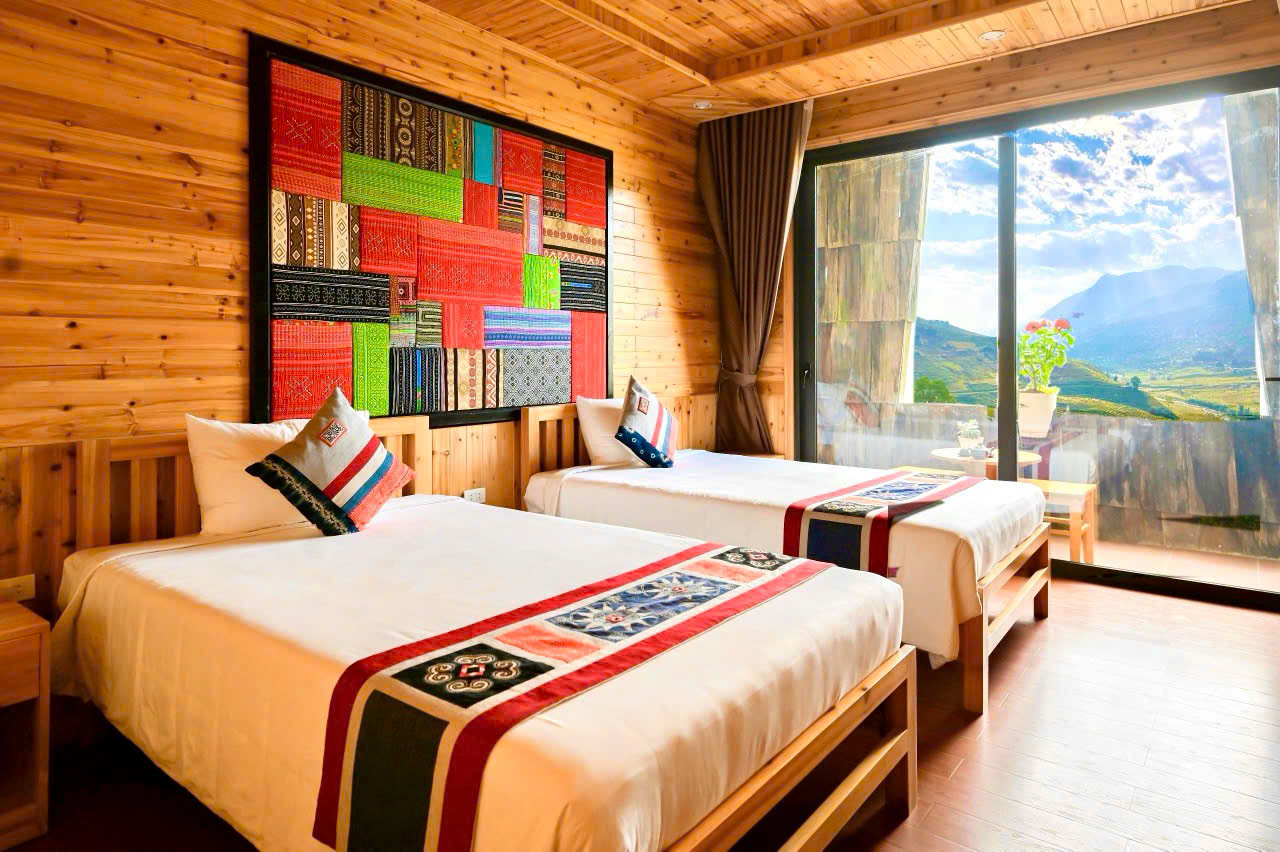
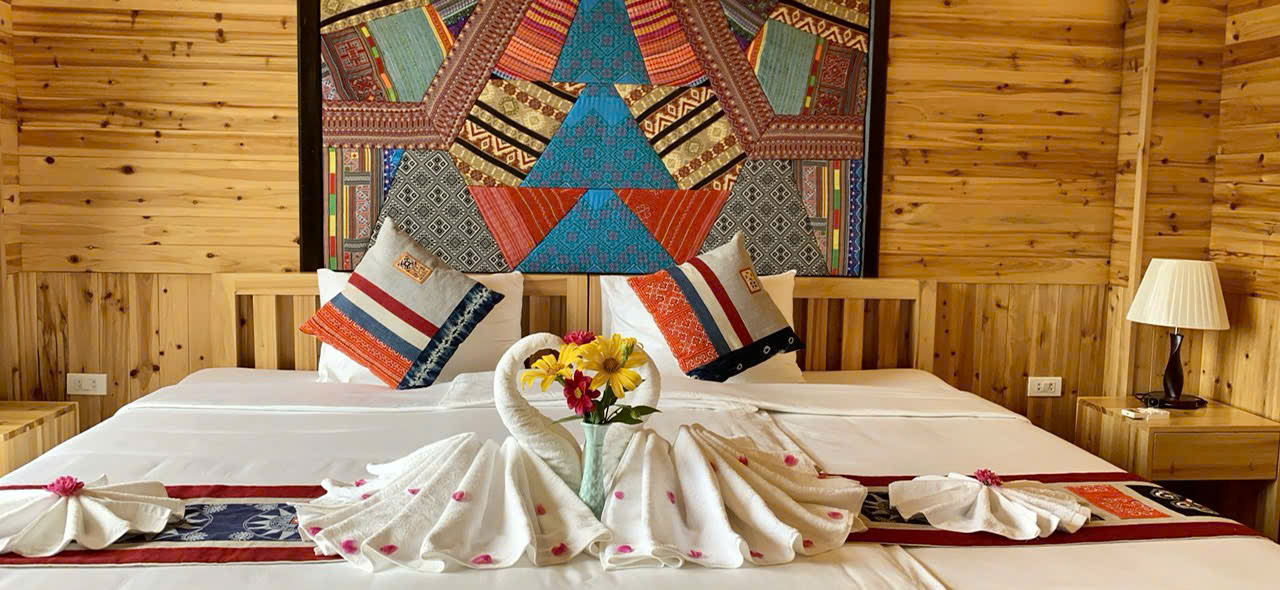
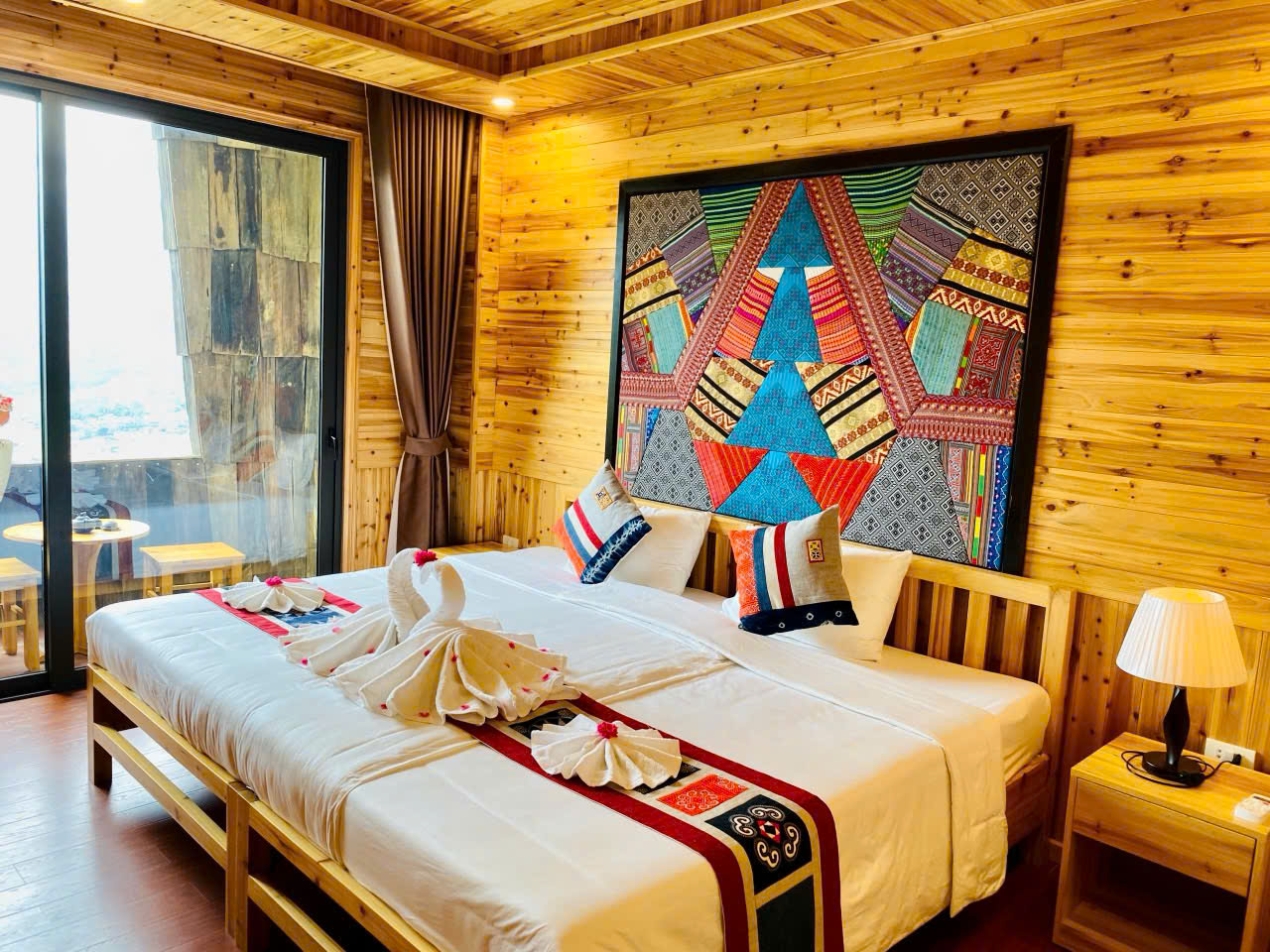
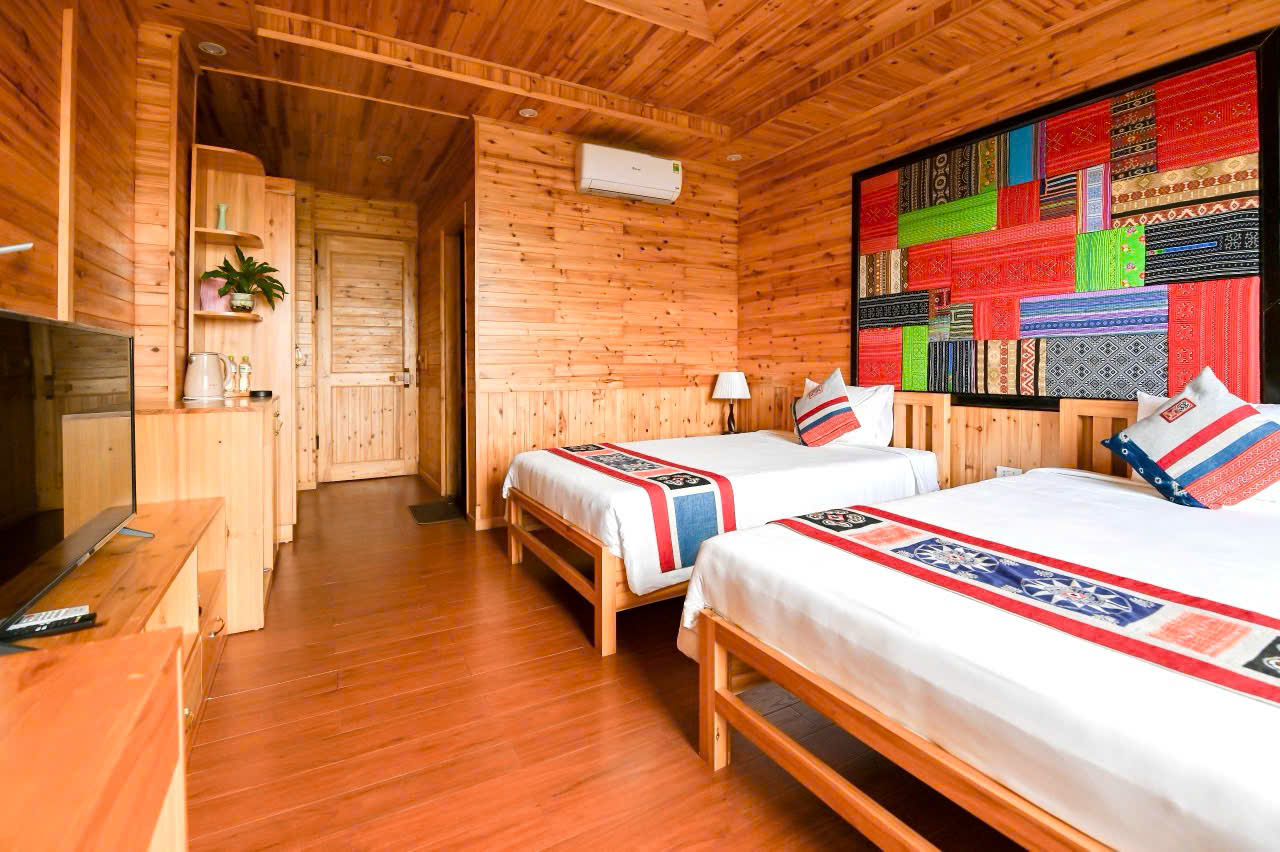
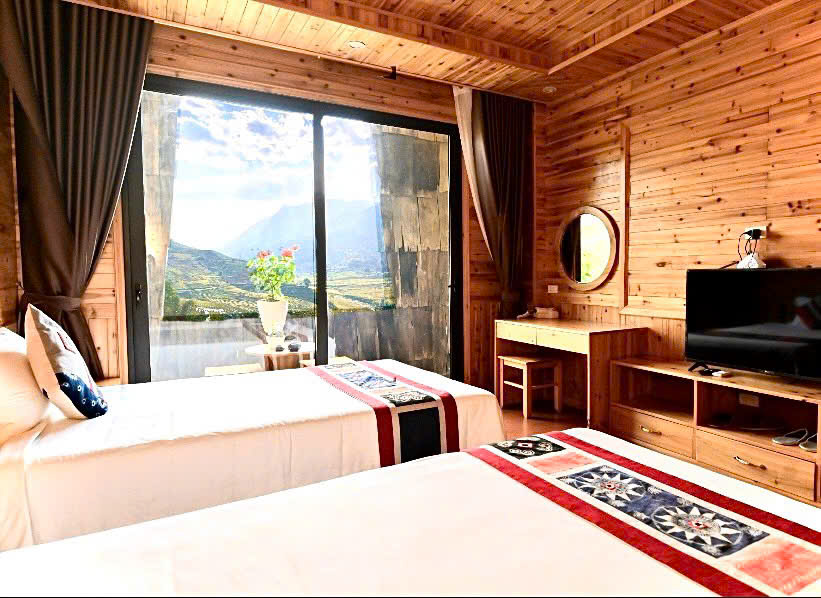
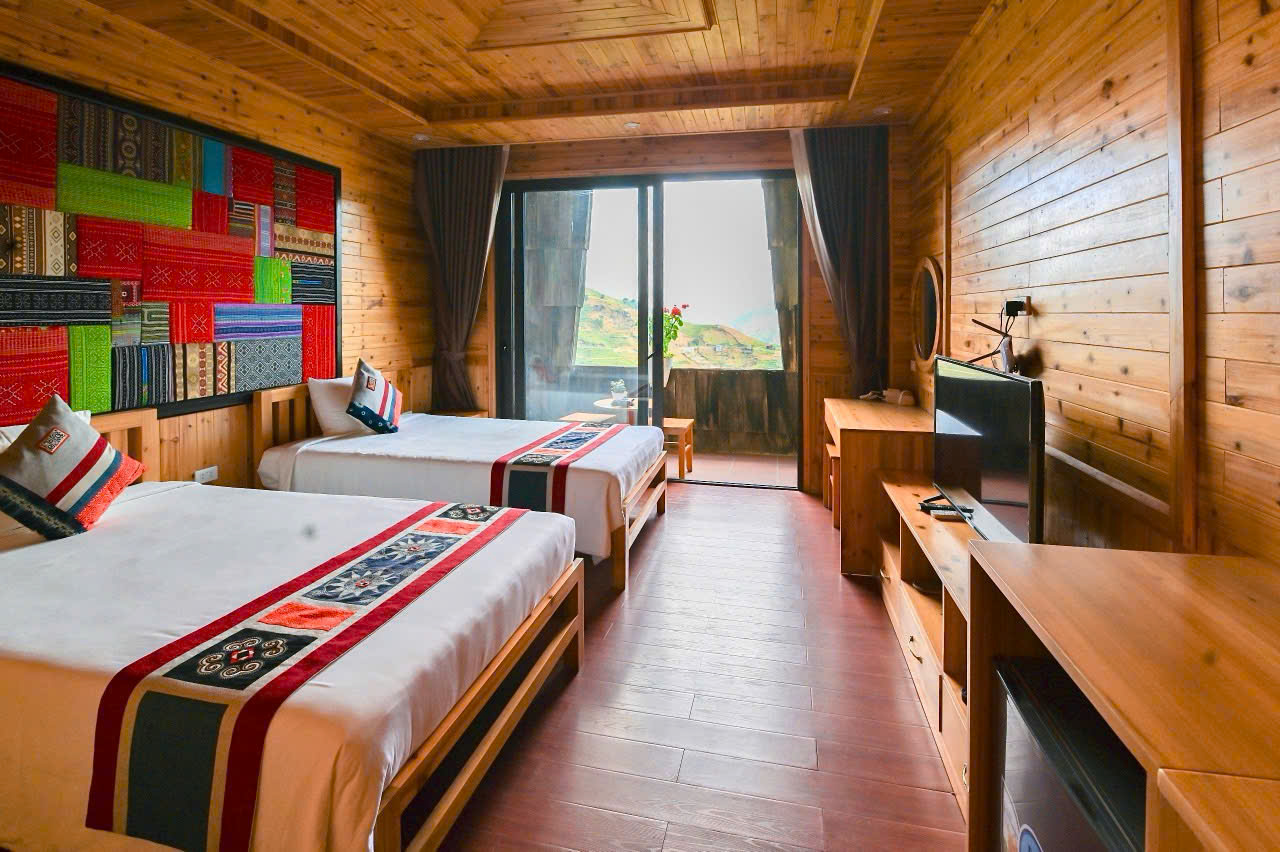
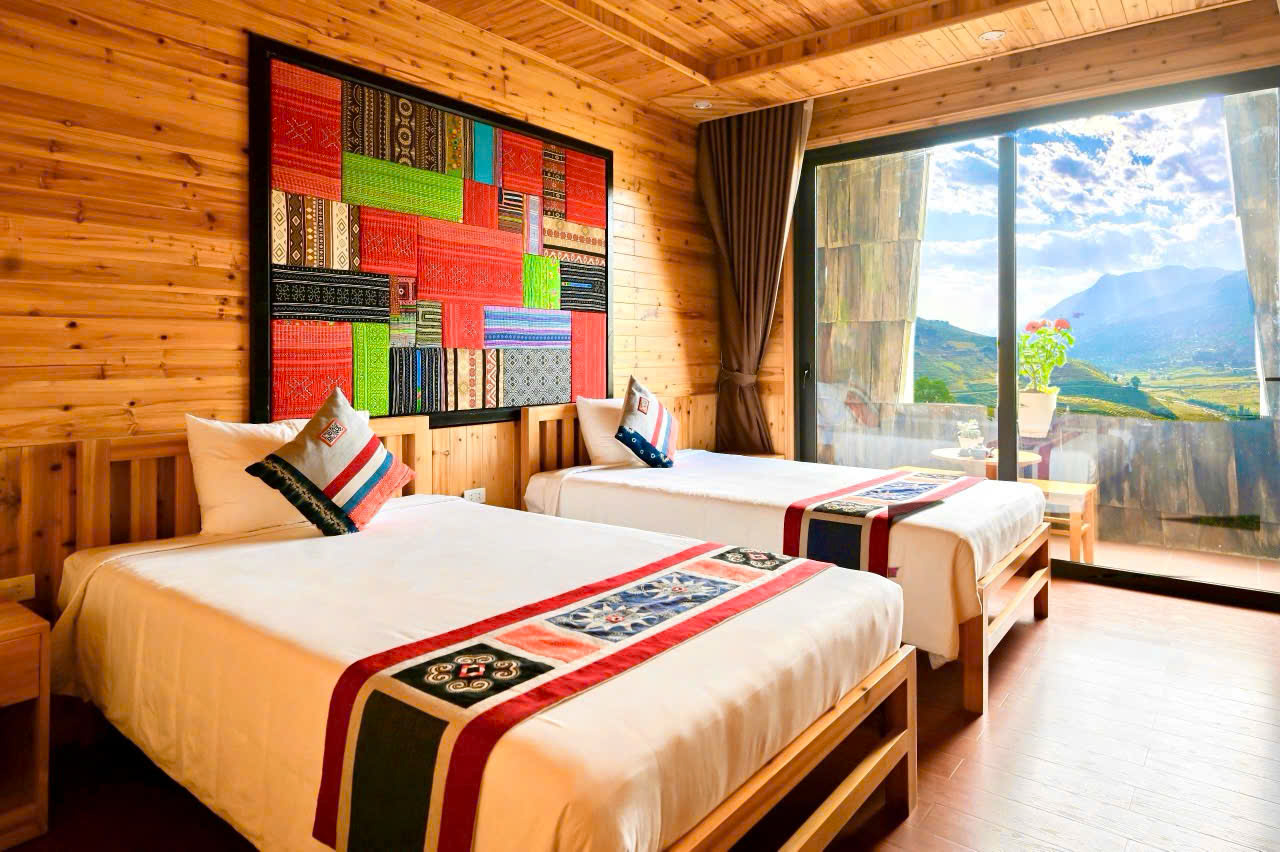
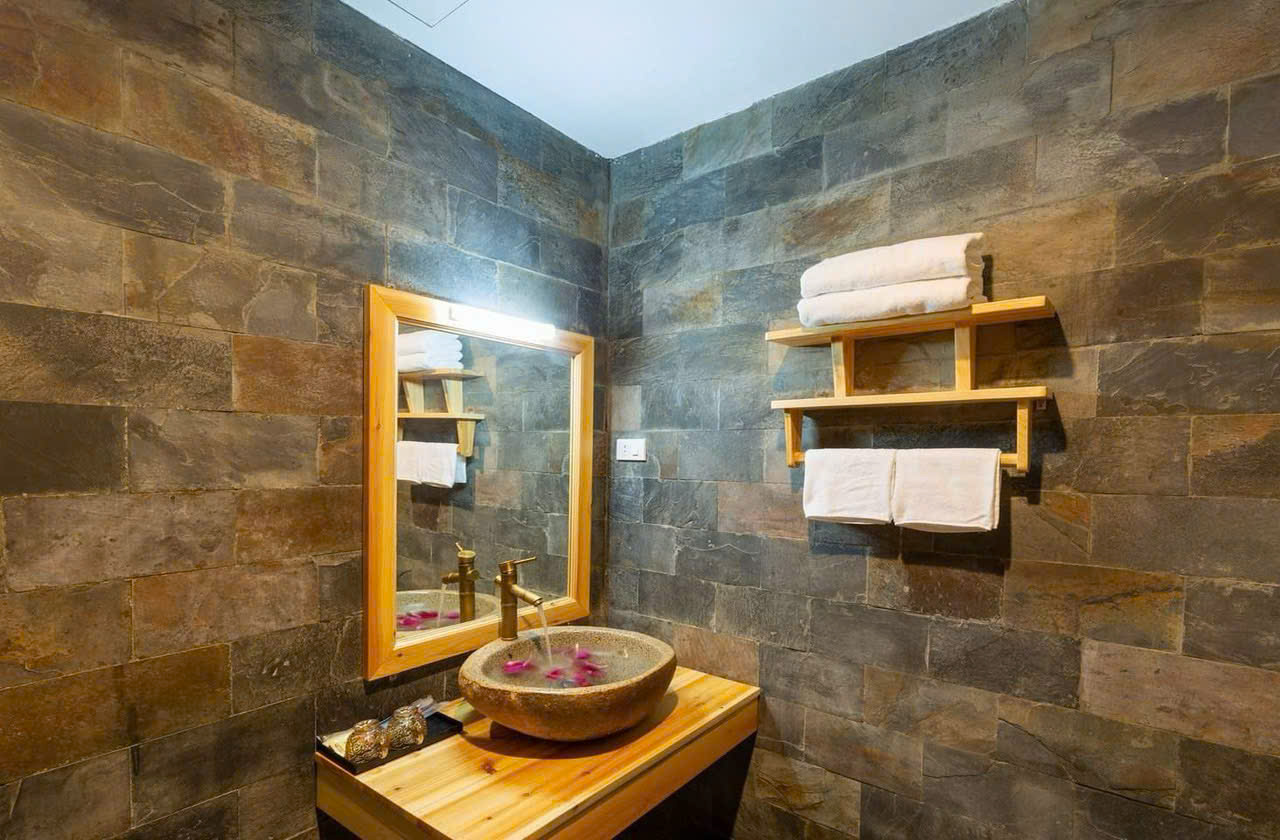

Day : 28/02/2025 - 01/03/2025
Room name : Deluxe (Twin/Double)
Kind of room : Room with 1 bed 1m2
Total amount : Contact
Discount 10% member 63Stravel Vip
Final price to pay : Contact
Room amenities
 Air conditioner
Air conditioner
 Towel
Towel
 No smoking
No smoking
 Free toiletries
Free toiletries
 Slipper
Slipper
 Hot water tank
Hot water tank
 Free wifi
Free wifi
 Bathrobe
Bathrobe
 Shower head
Shower head
 Free tea and coffee
Free tea and coffee
 Free mineral water
Free mineral water
 Electric kettle
Electric kettle
 Hairdryer
Hairdryer
Room description : Capacity: 2 adults and 1-2 children under 6 years old - Breakfast included
Check-in time : From 14:00
Check-out time : Before 12:00
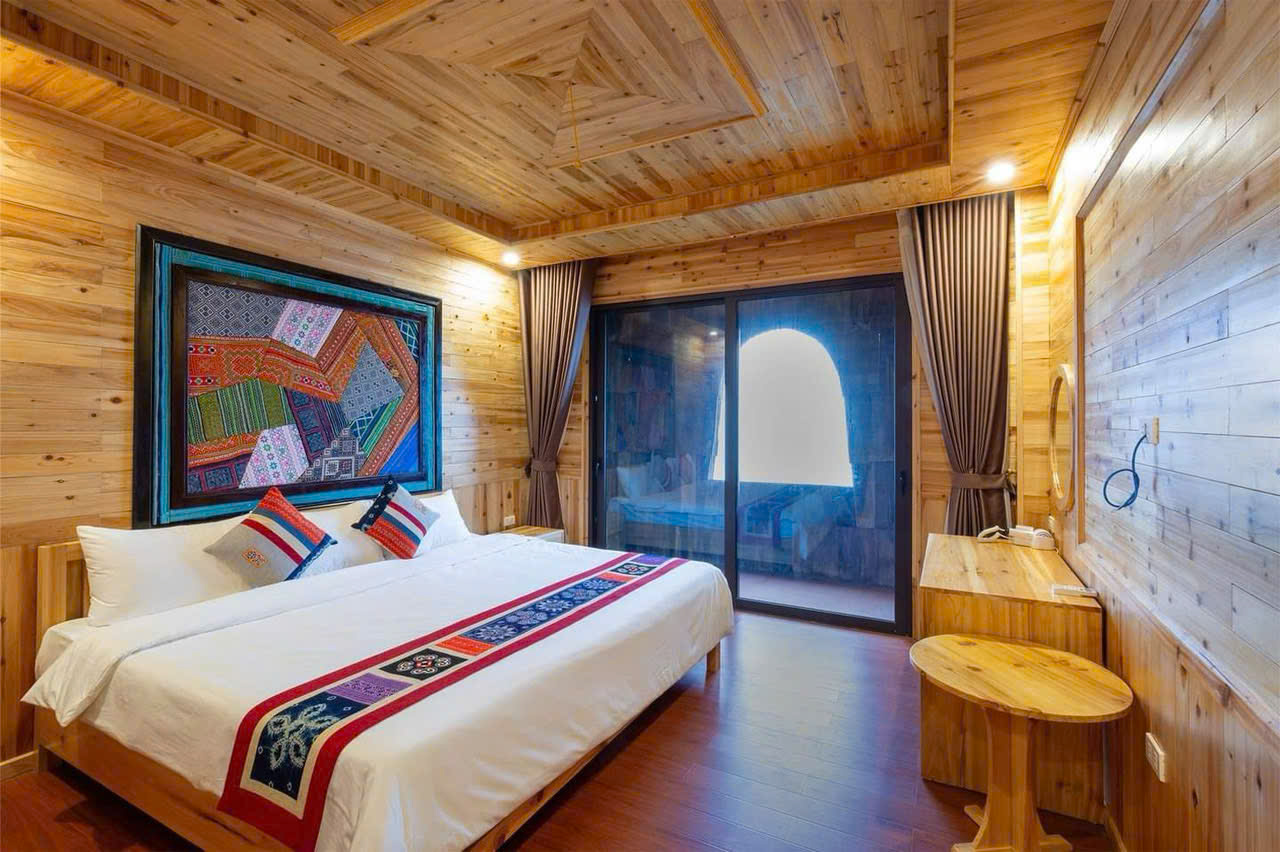
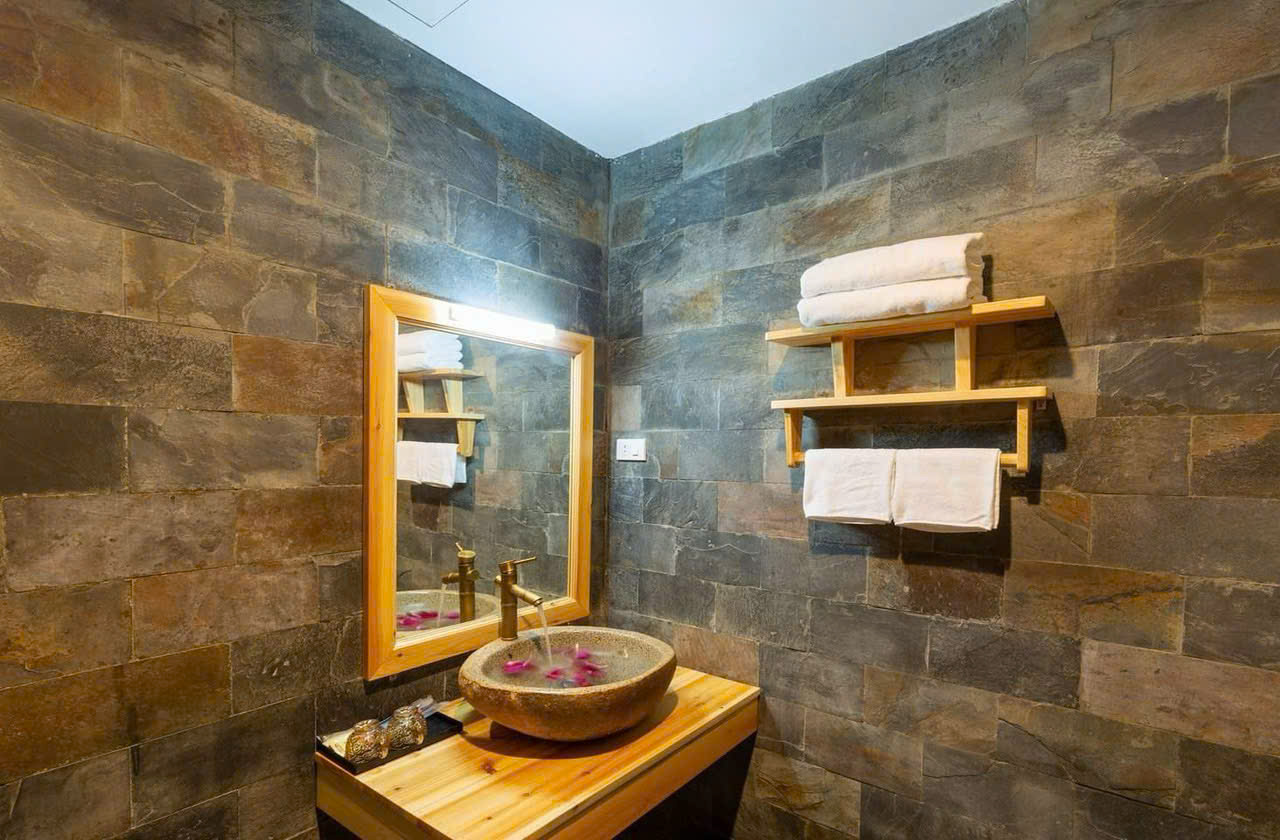
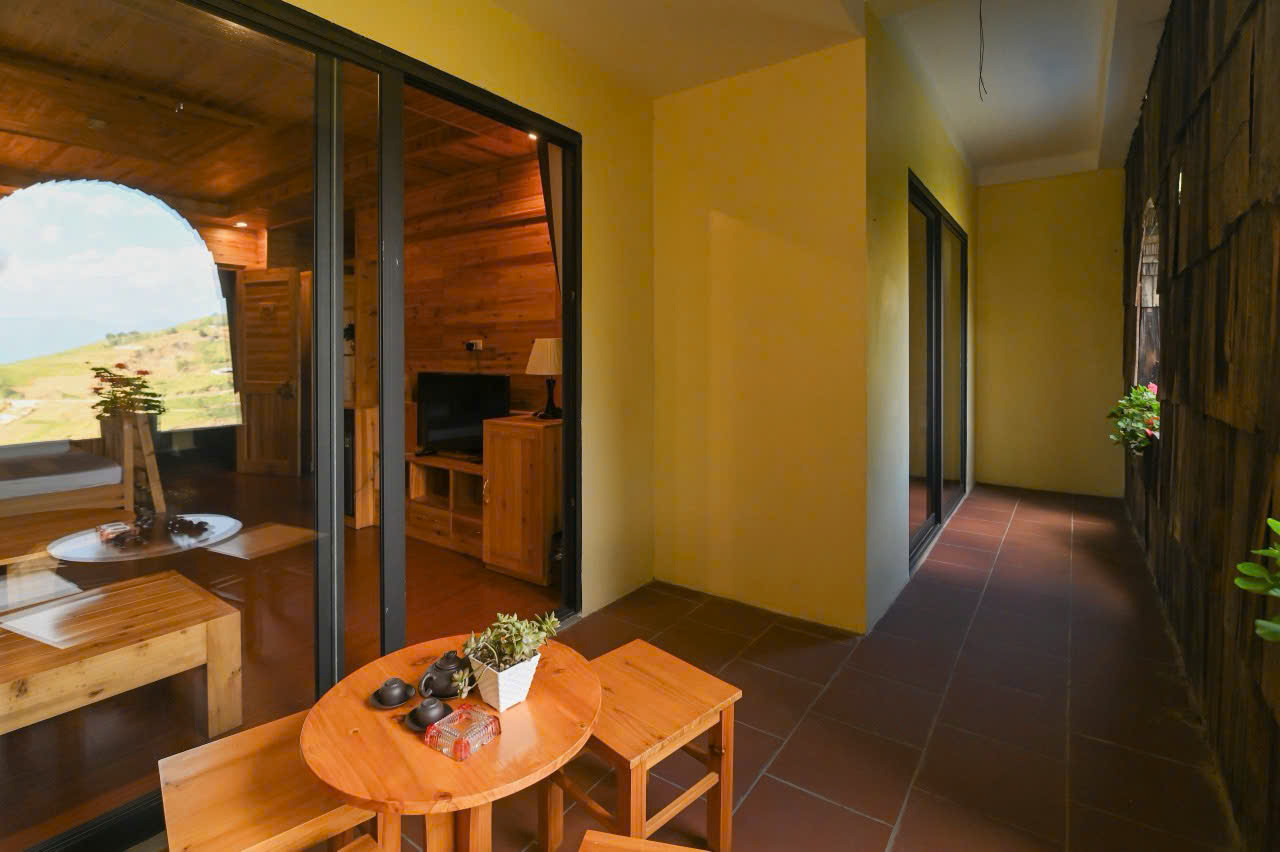
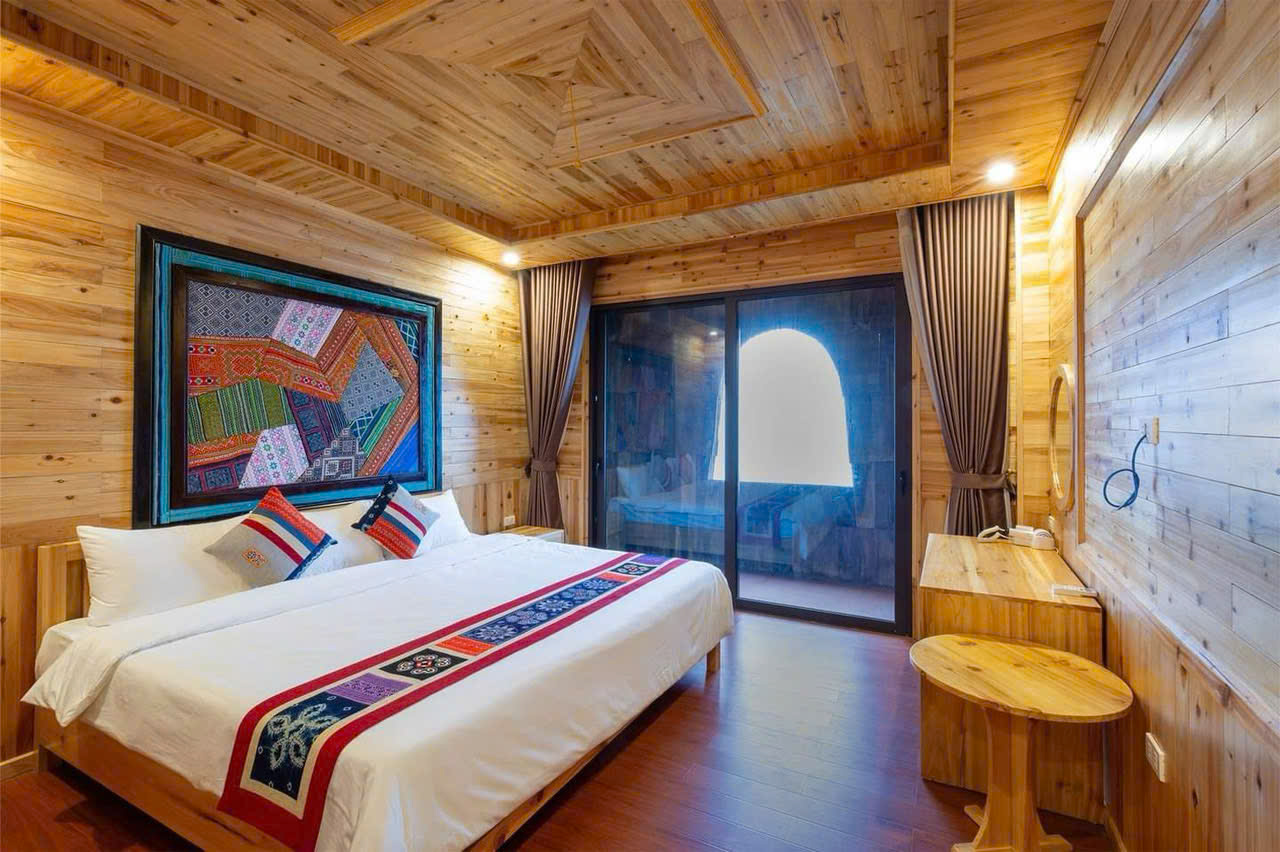
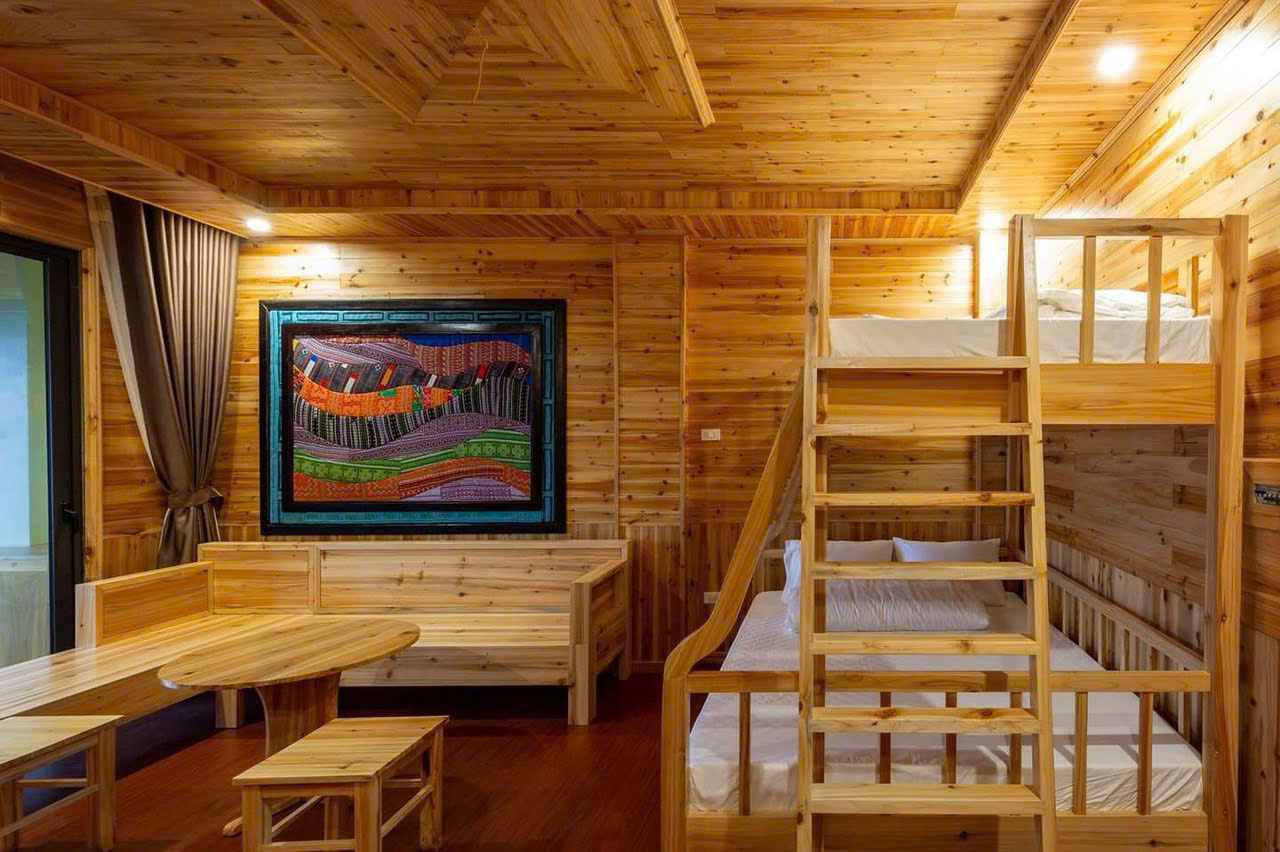
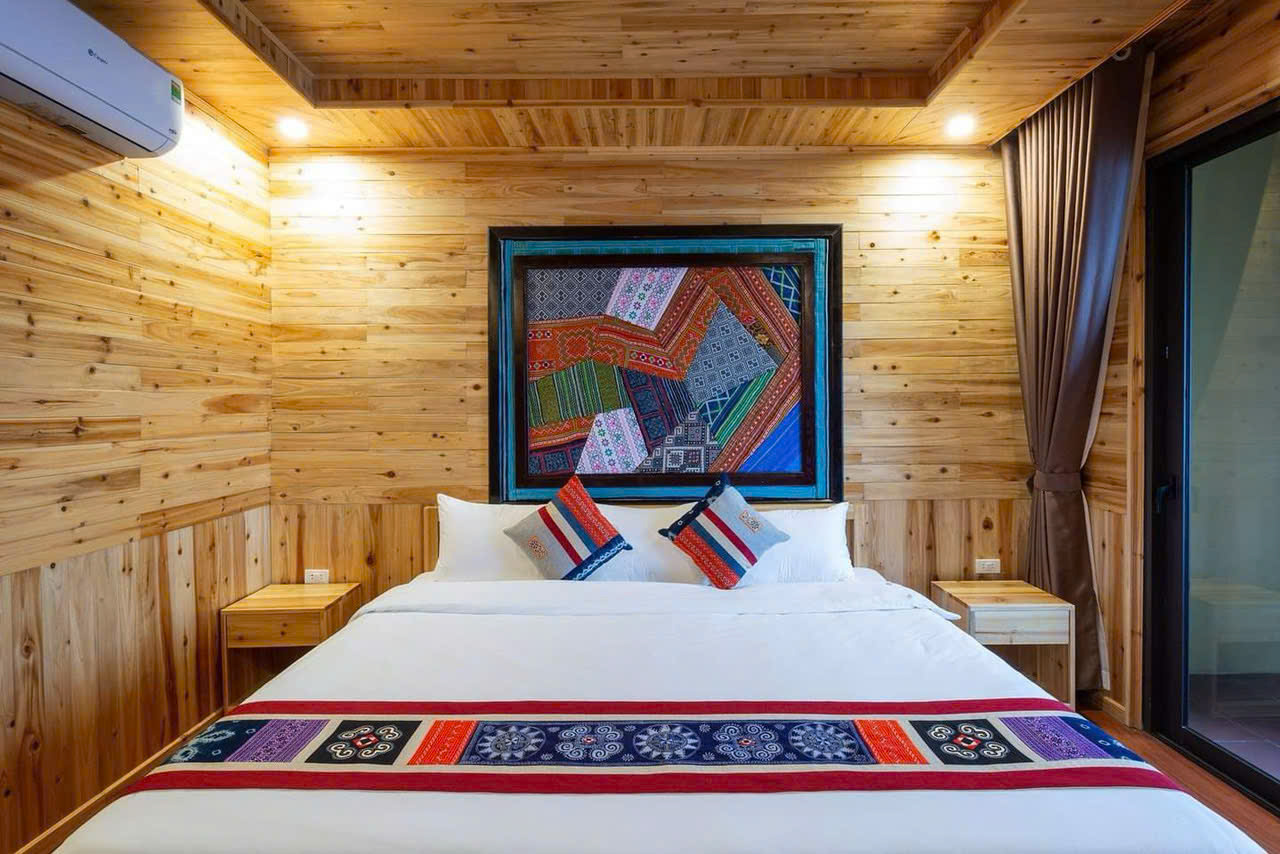
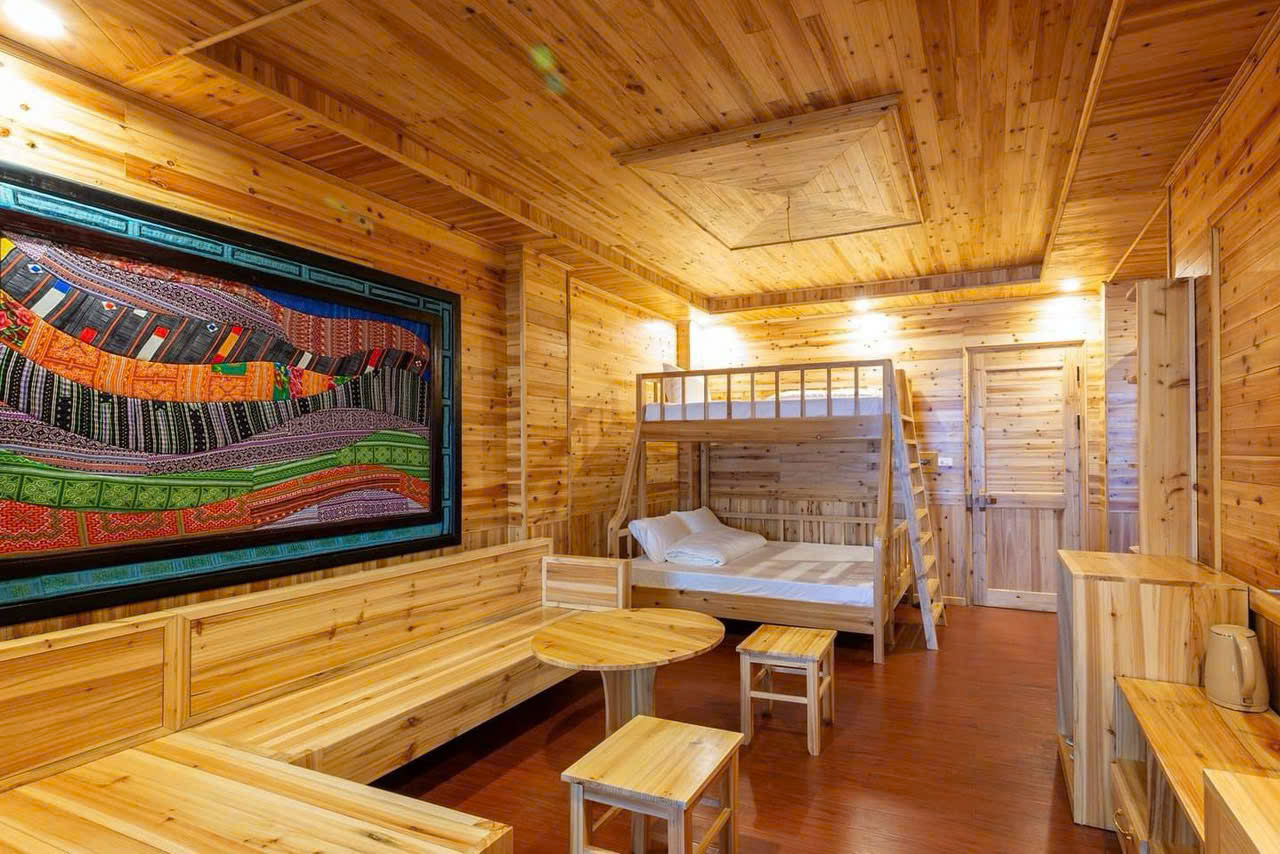
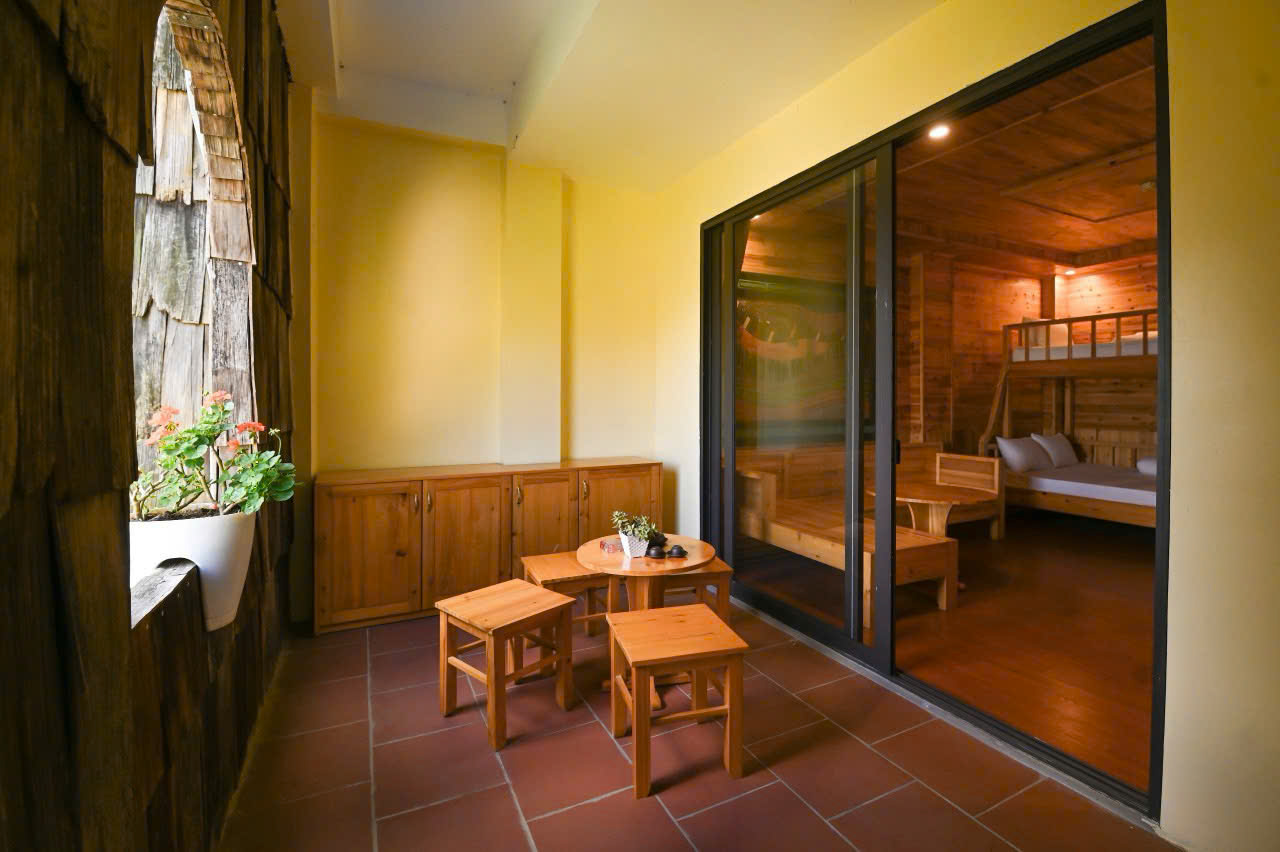
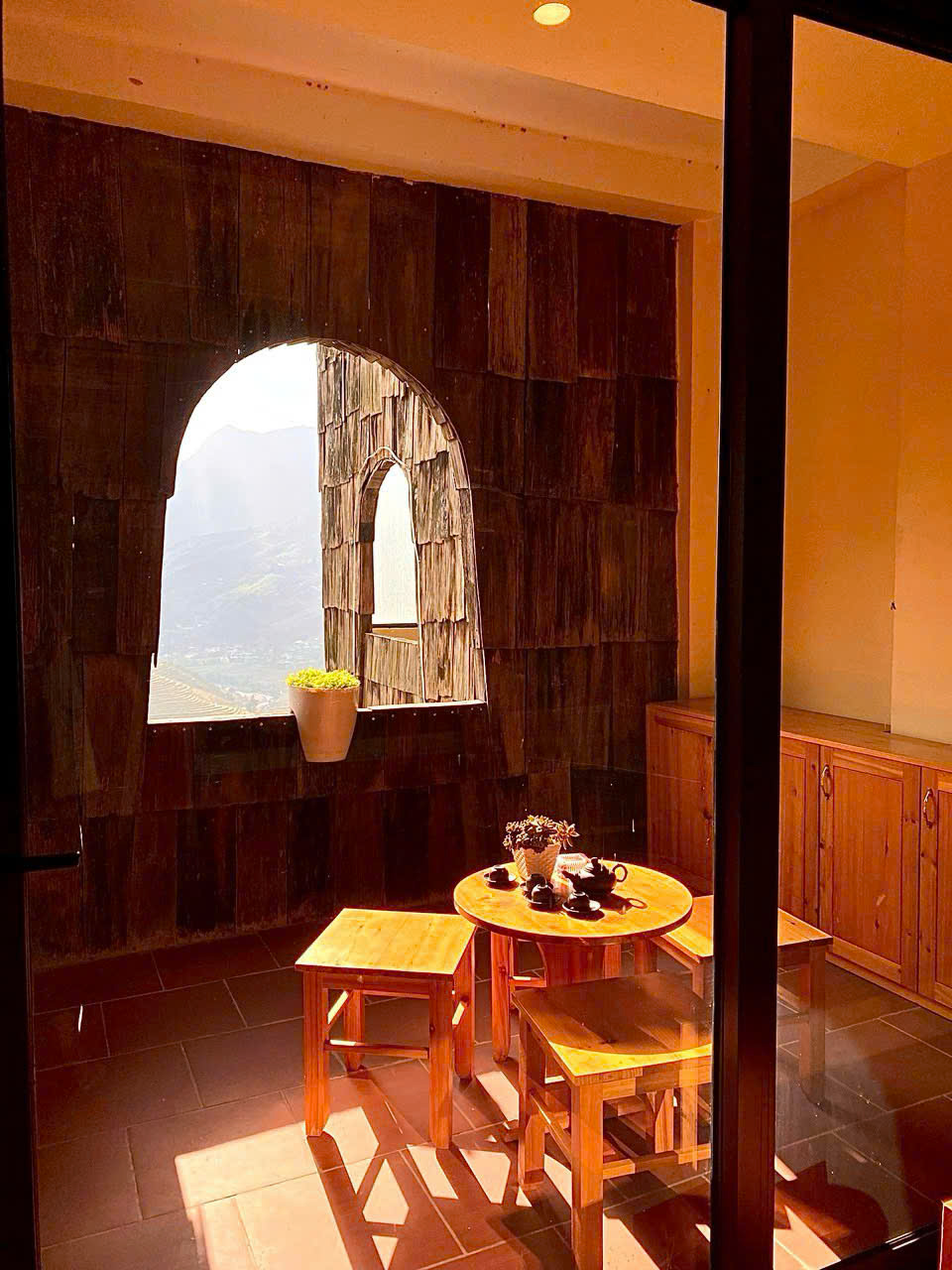
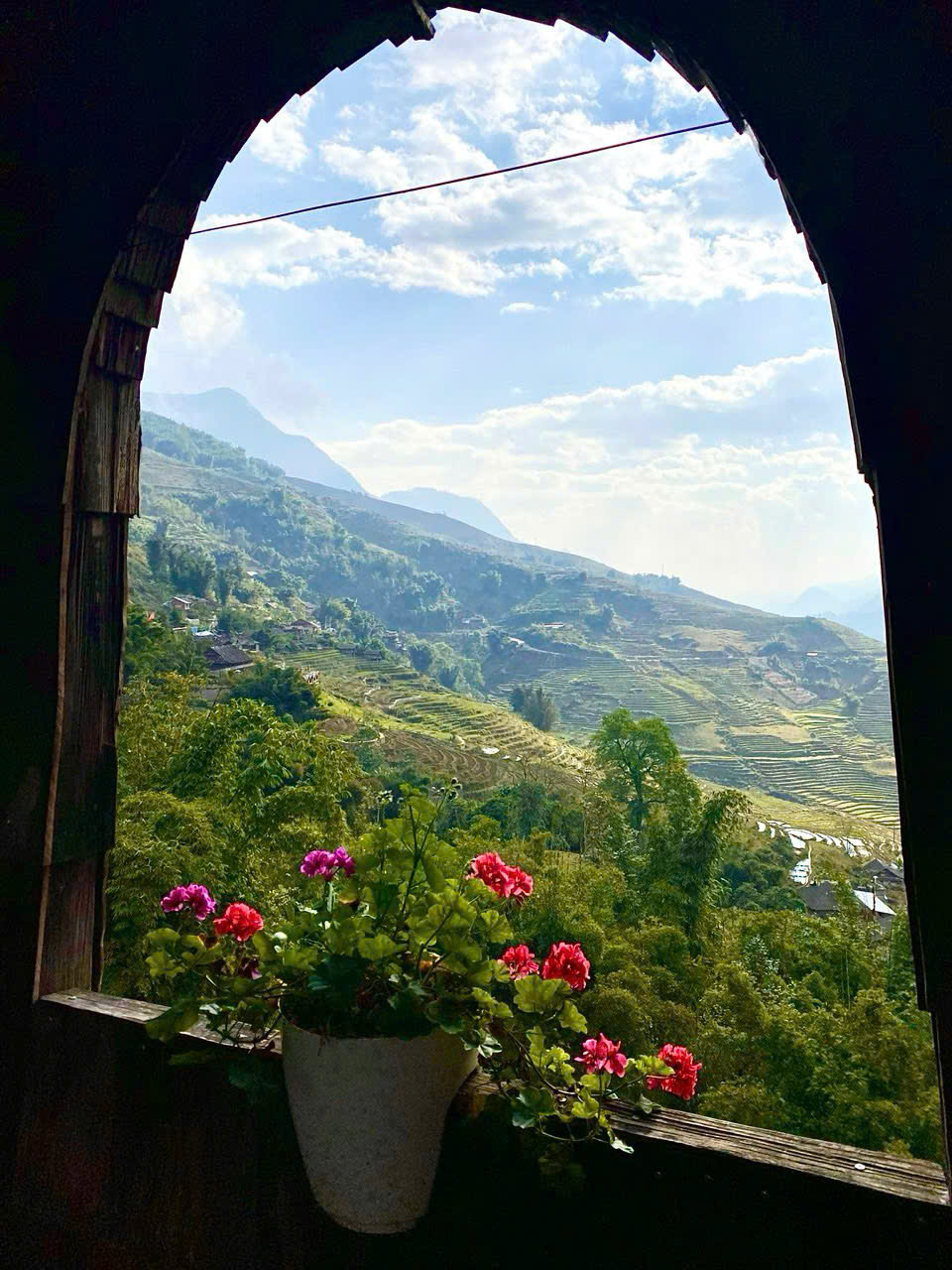

Day : 28/02/2025 - 01/03/2025
Room name : FAMILY Room
Kind of room : Room with 1 bed 1m2
Total amount : Contact
Discount 10% member 63Stravel Vip
Final price to pay : Contact
Room amenities
 Towel
Towel
 No smoking
No smoking
 Free toiletries
Free toiletries
 Slipper
Slipper
 Hot water tank
Hot water tank
 Free wifi
Free wifi
 Bathrobe
Bathrobe
 Shower head
Shower head
 Free tea and coffee
Free tea and coffee
 Free mineral water
Free mineral water
 Electric kettle
Electric kettle
Room description : 2 interconnected bedrooms - Capacity of 4 adults and 2 children under 15 - Meals included
Check-in time : From 14:00
Check-out time : Before 12:00
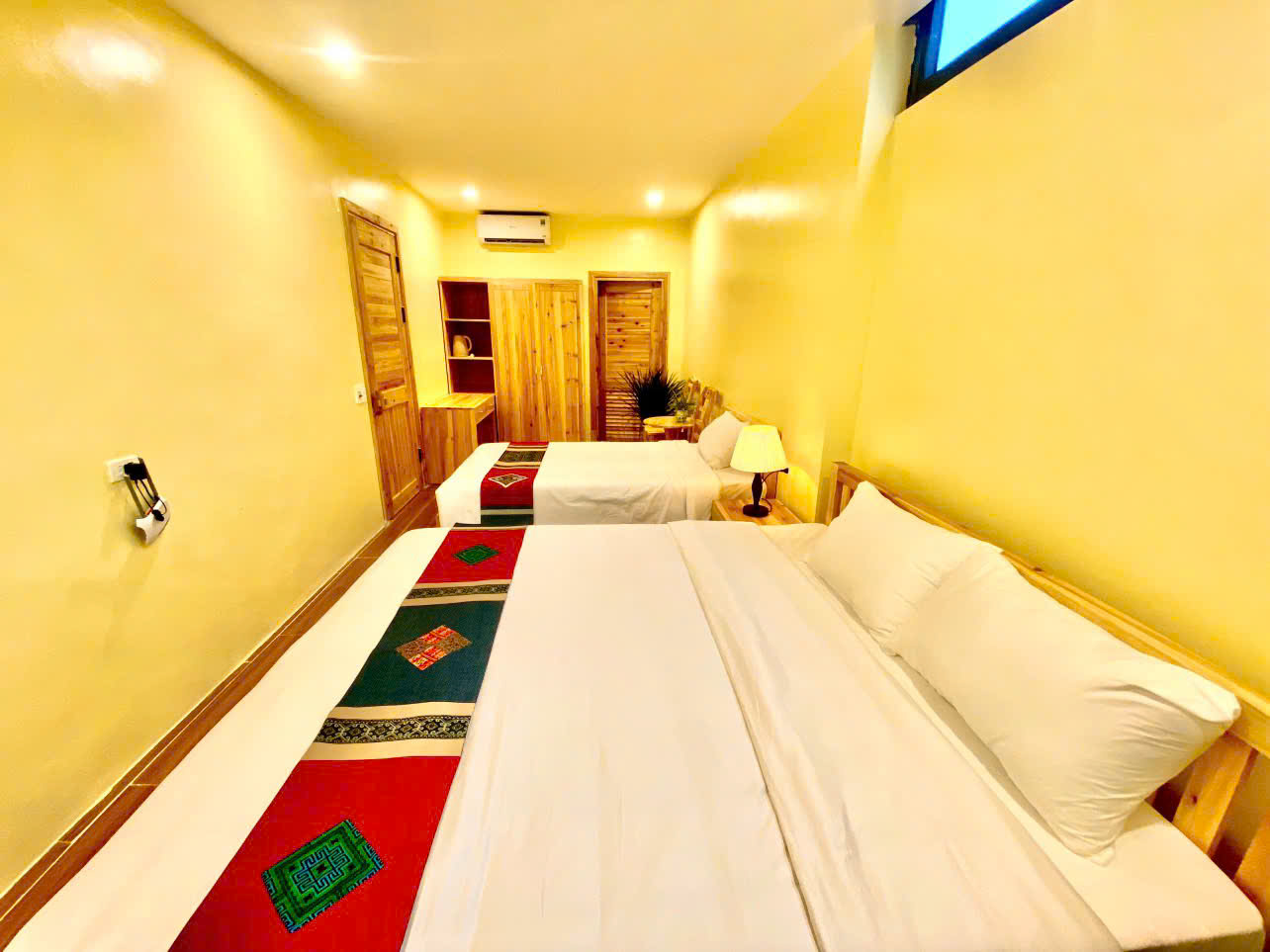
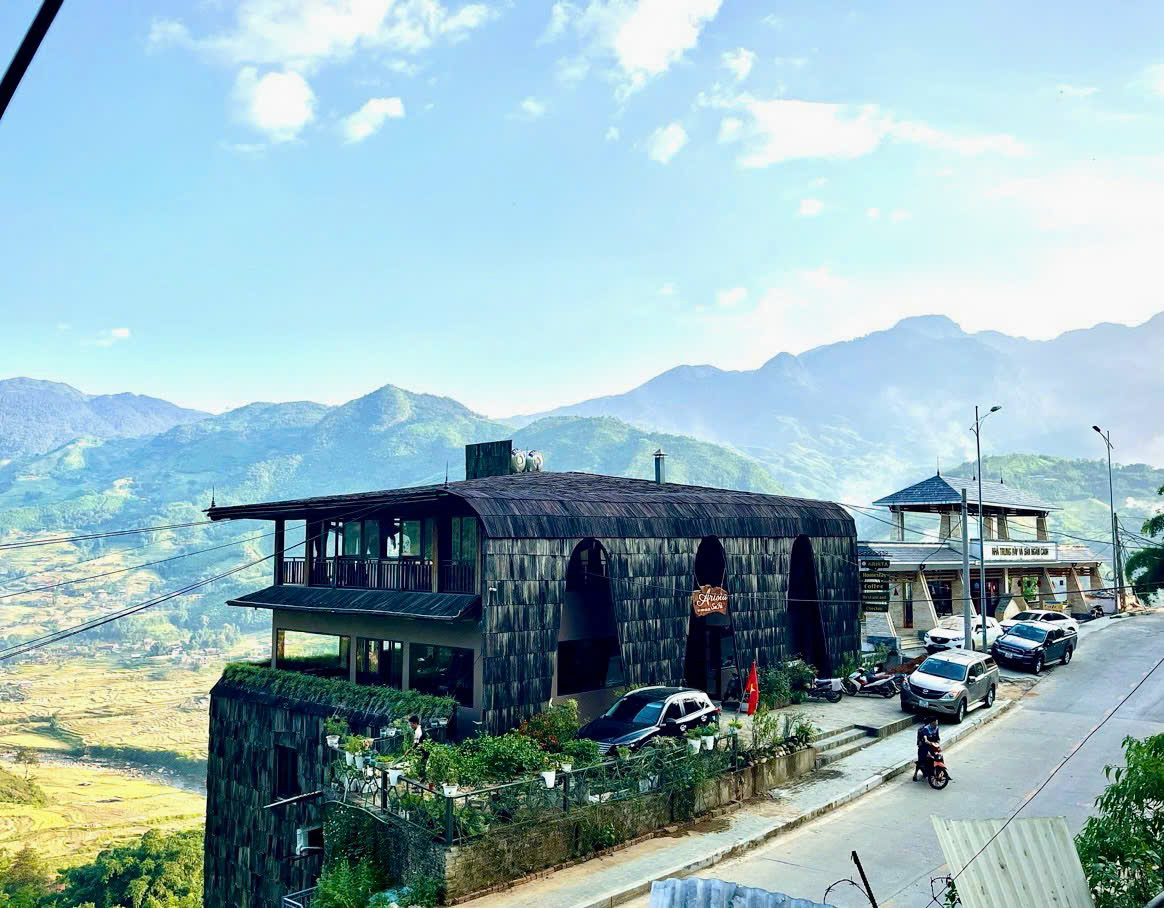
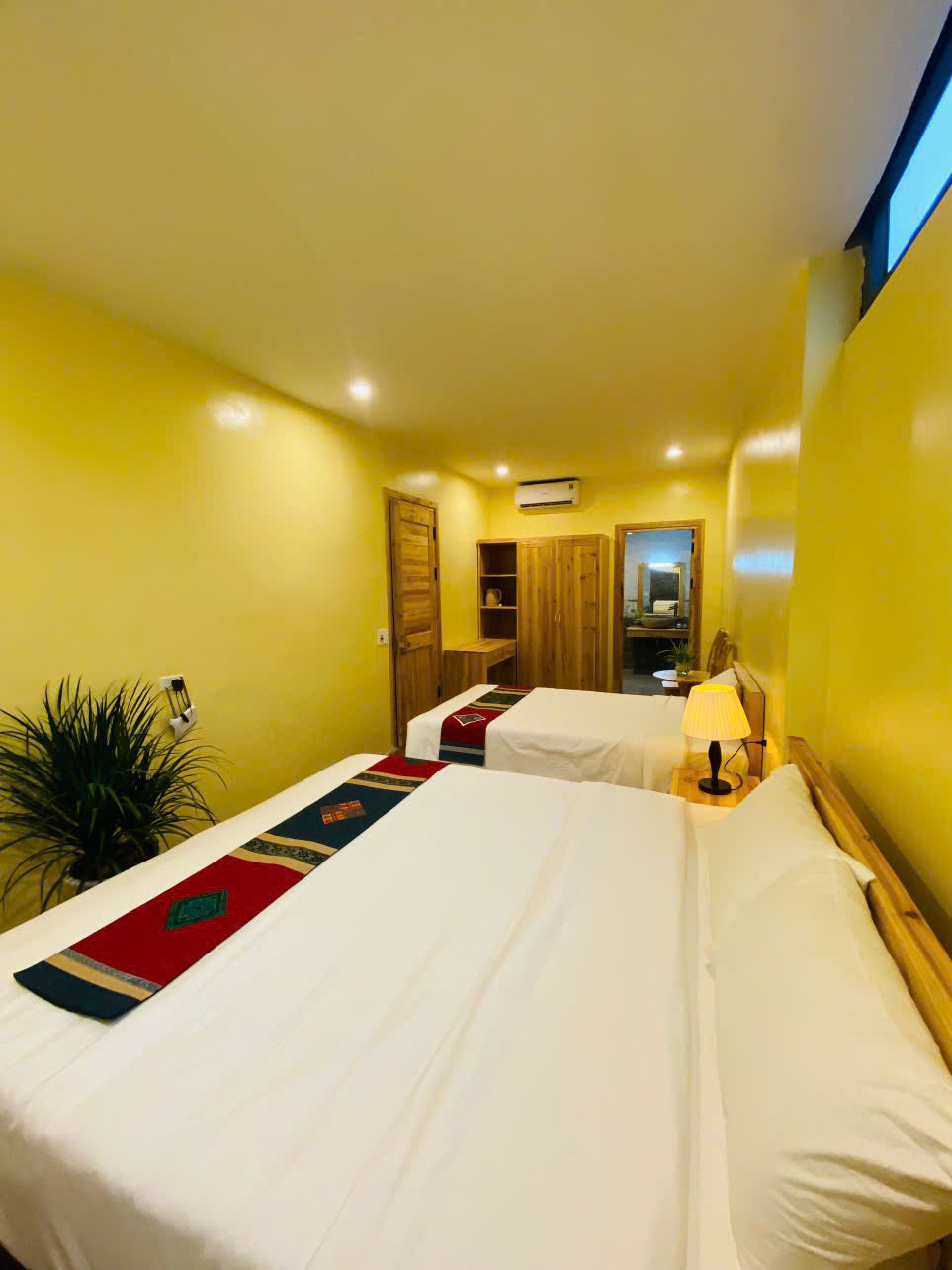
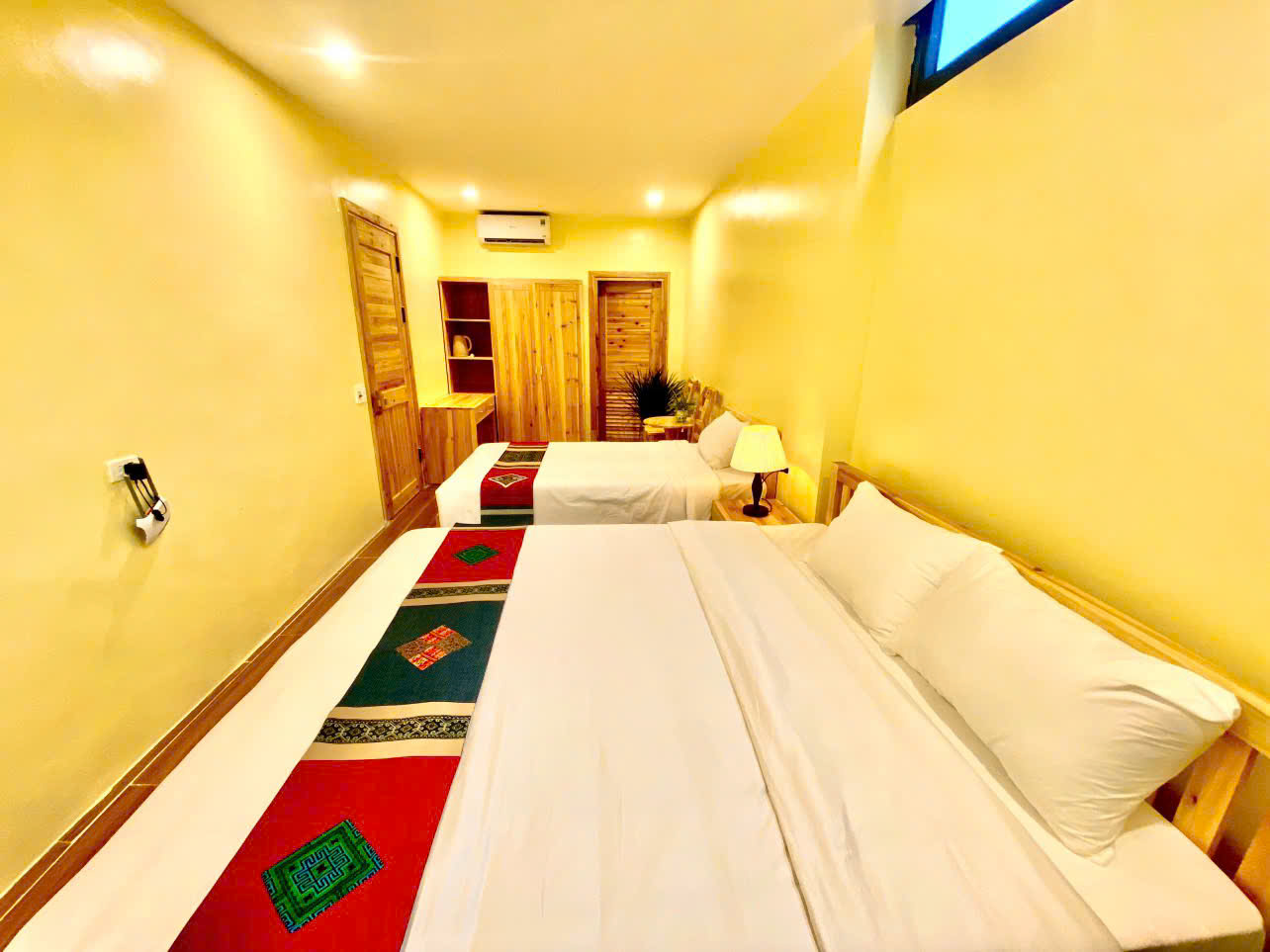
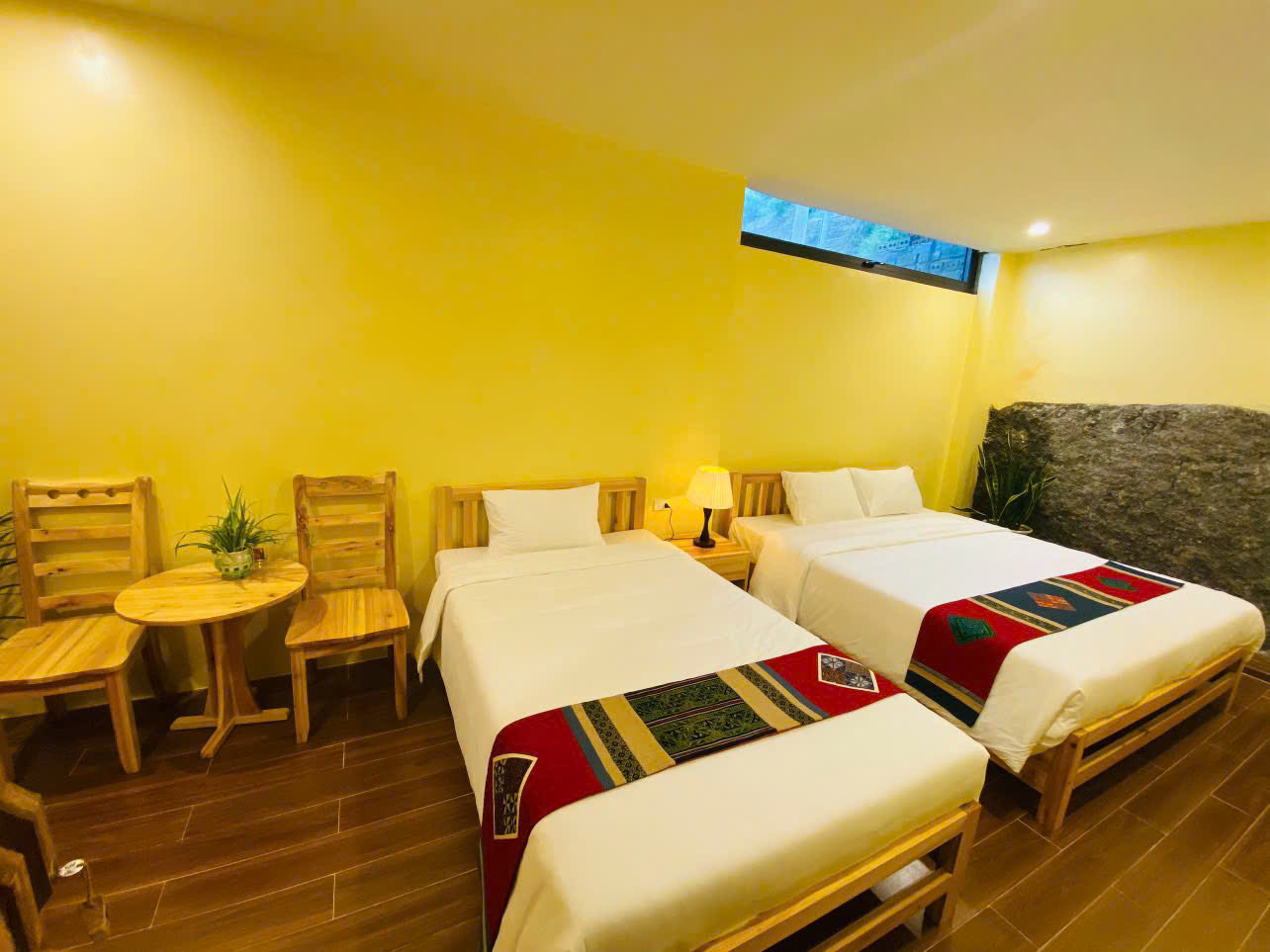

Day : 28/02/2025 - 01/03/2025
Room name : Room no view
Kind of room : Room with 1 bed 1m2
Total amount : Contact
Discount 10% member 63Stravel Vip
Final price to pay : Contact
Room amenities
 Towel
Towel
 No smoking
No smoking
 Free toiletries
Free toiletries
 Slipper
Slipper
 Hot water tank
Hot water tank
 Free wifi
Free wifi
 Bathrobe
Bathrobe
 Shower head
Shower head
 Free tea and coffee
Free tea and coffee
 Free mineral water
Free mineral water
 Electric kettle
Electric kettle
Room description : Capacity of 3 adults - Breakfast included
Check-in time : From 14:00
Check-out time : Before 12:00
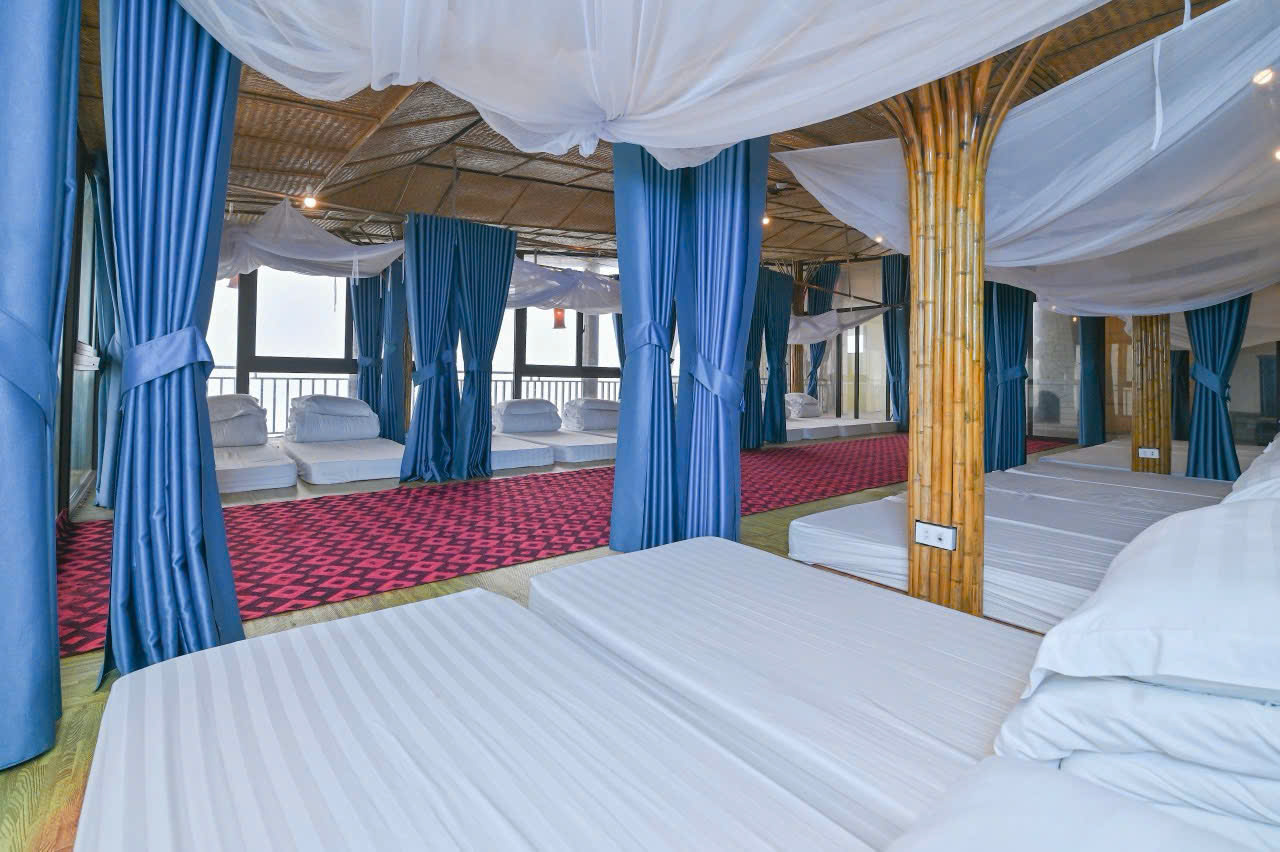
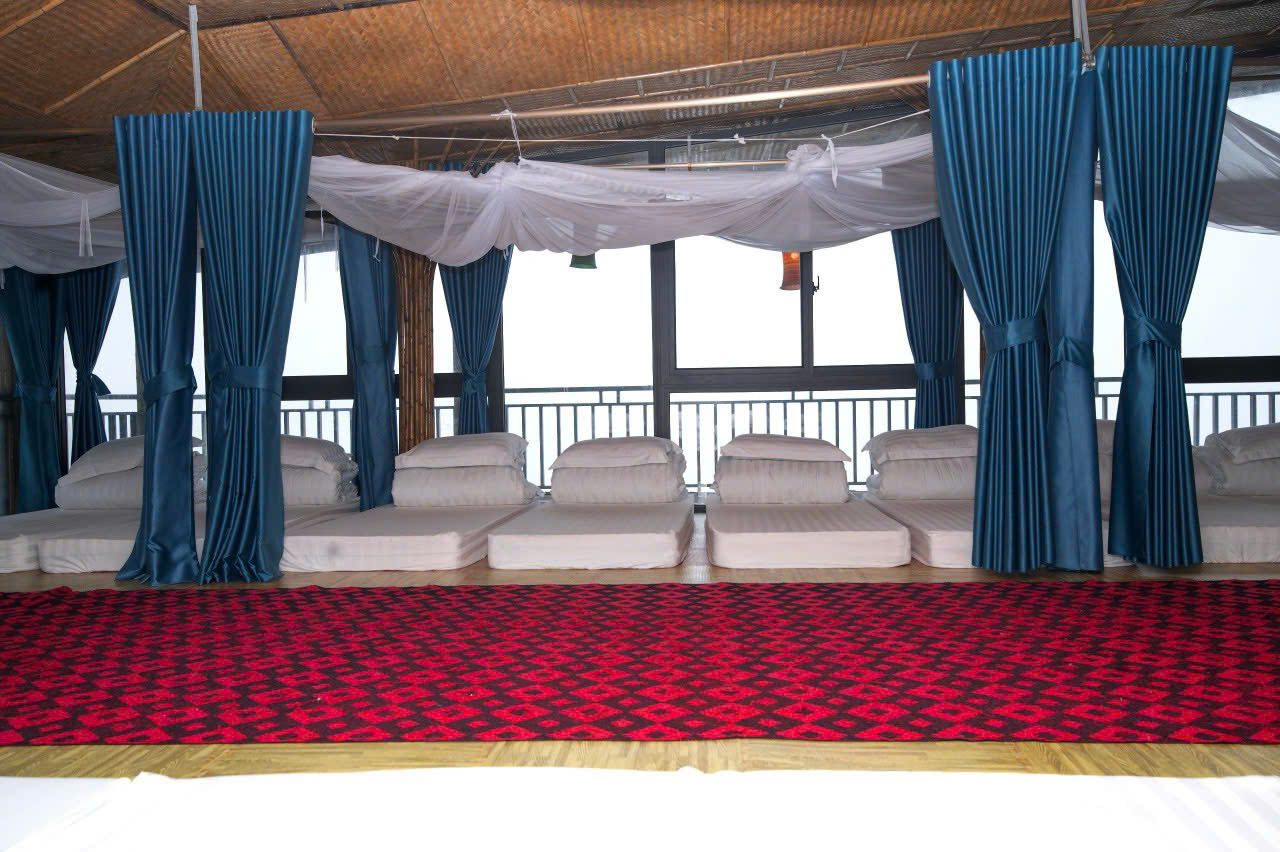
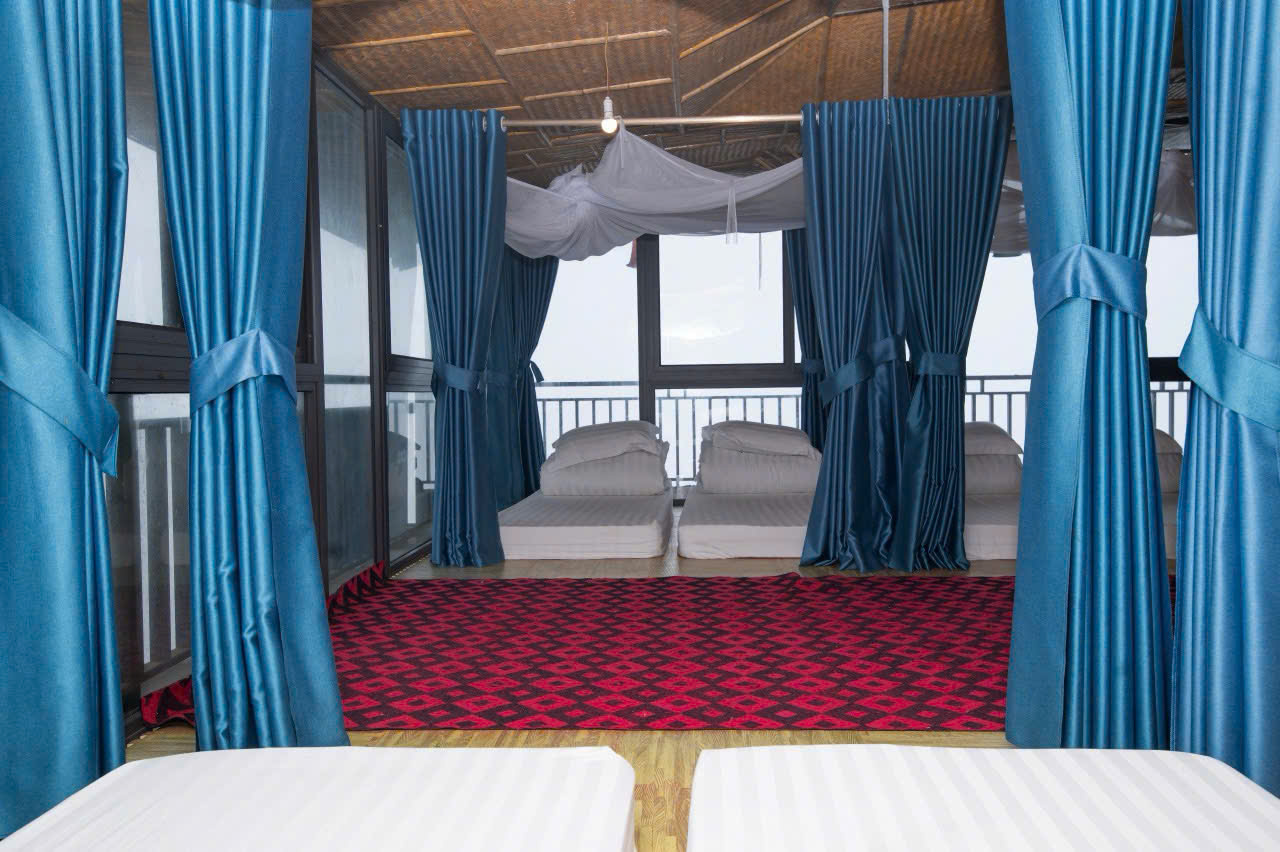
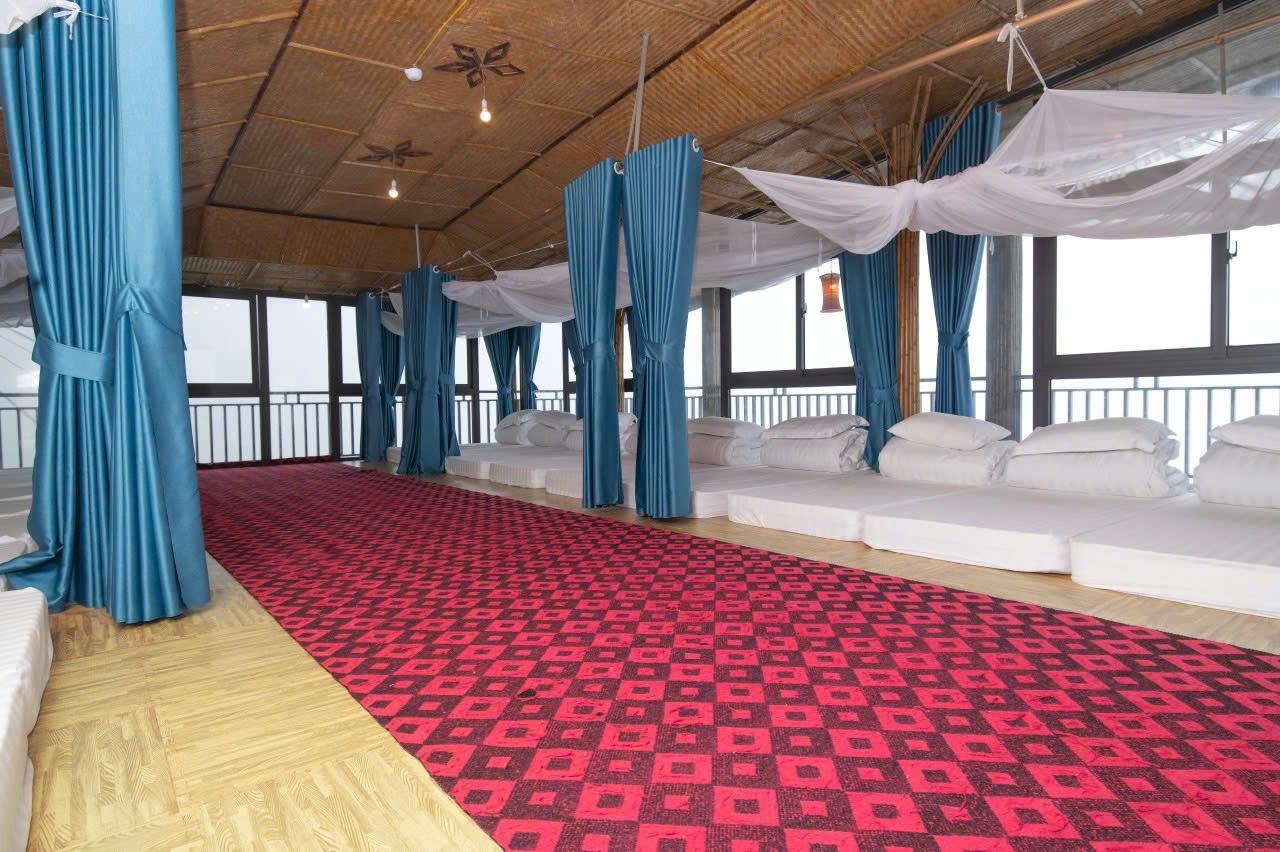
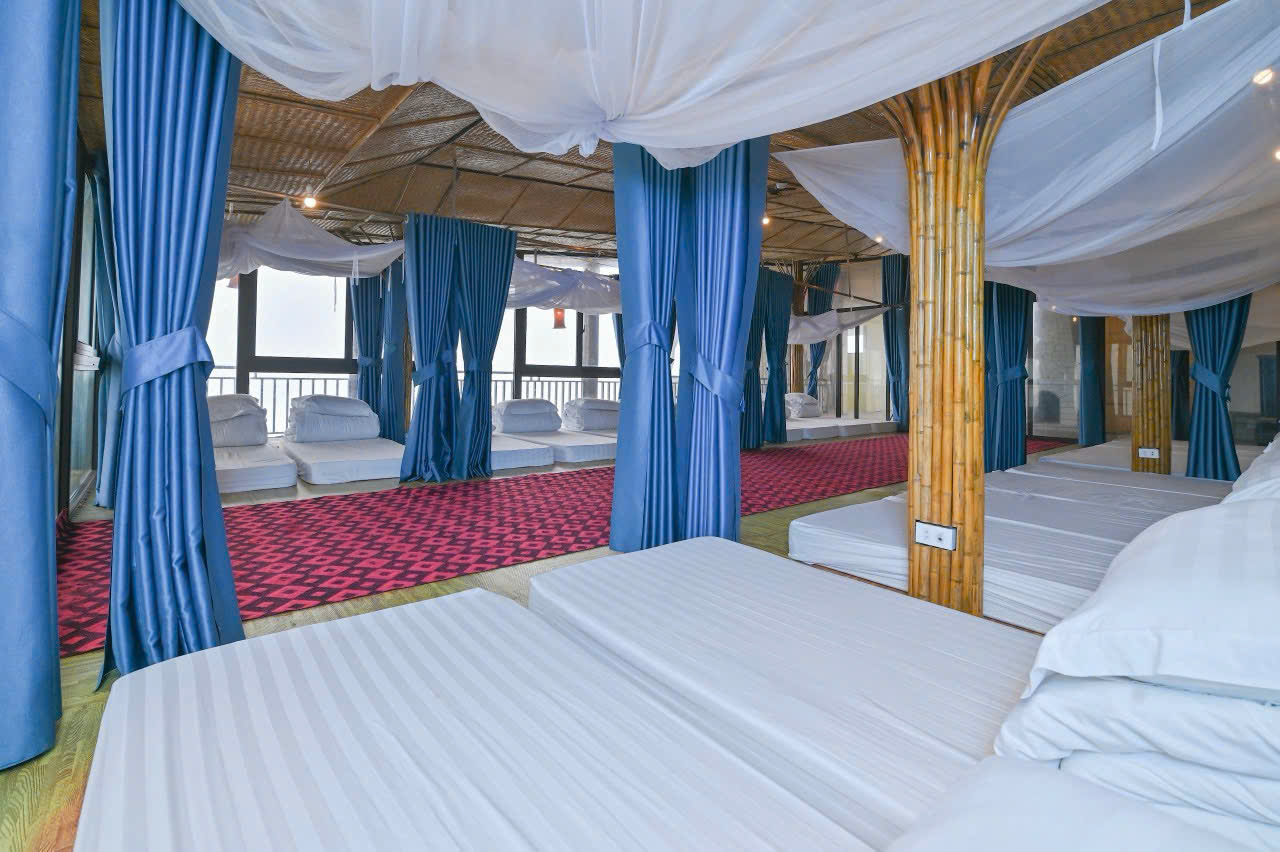
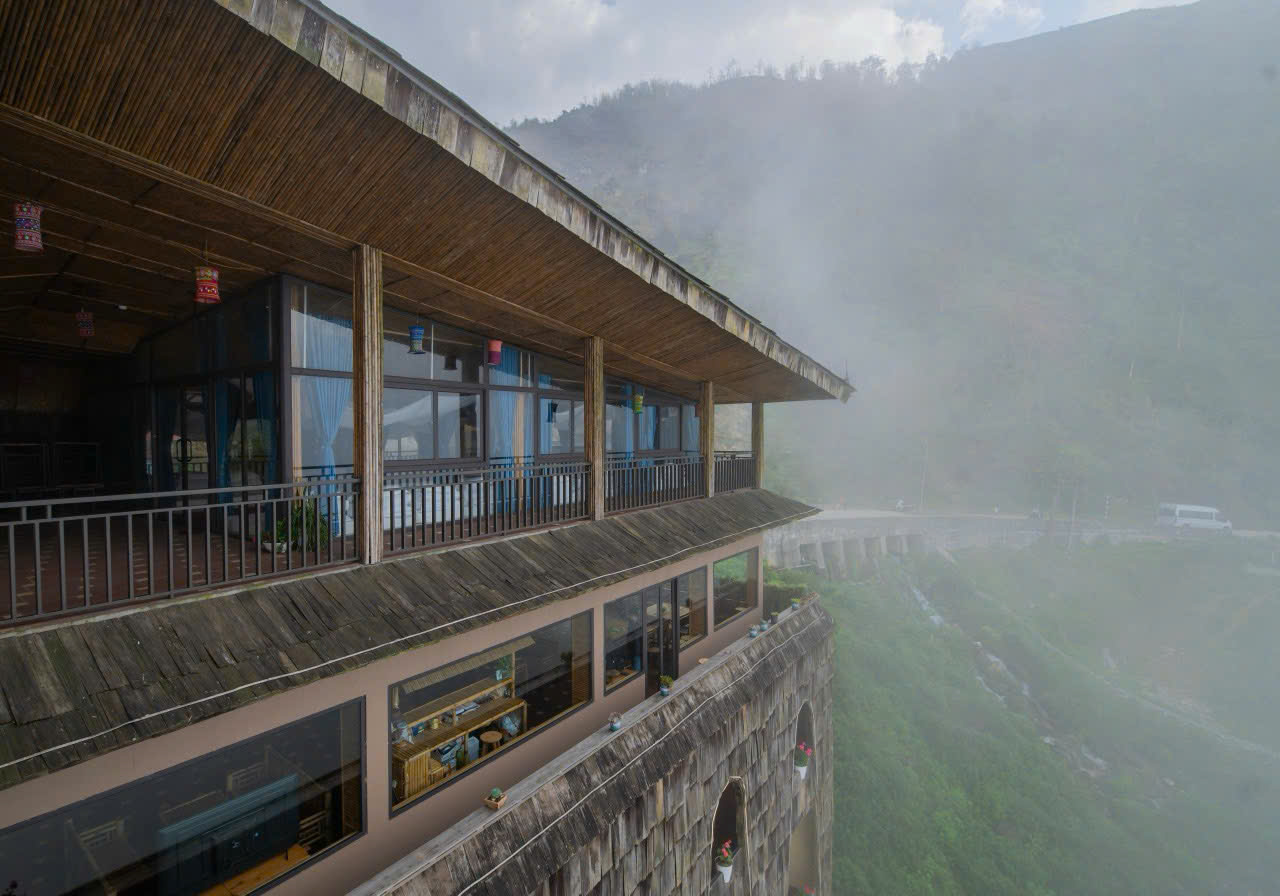
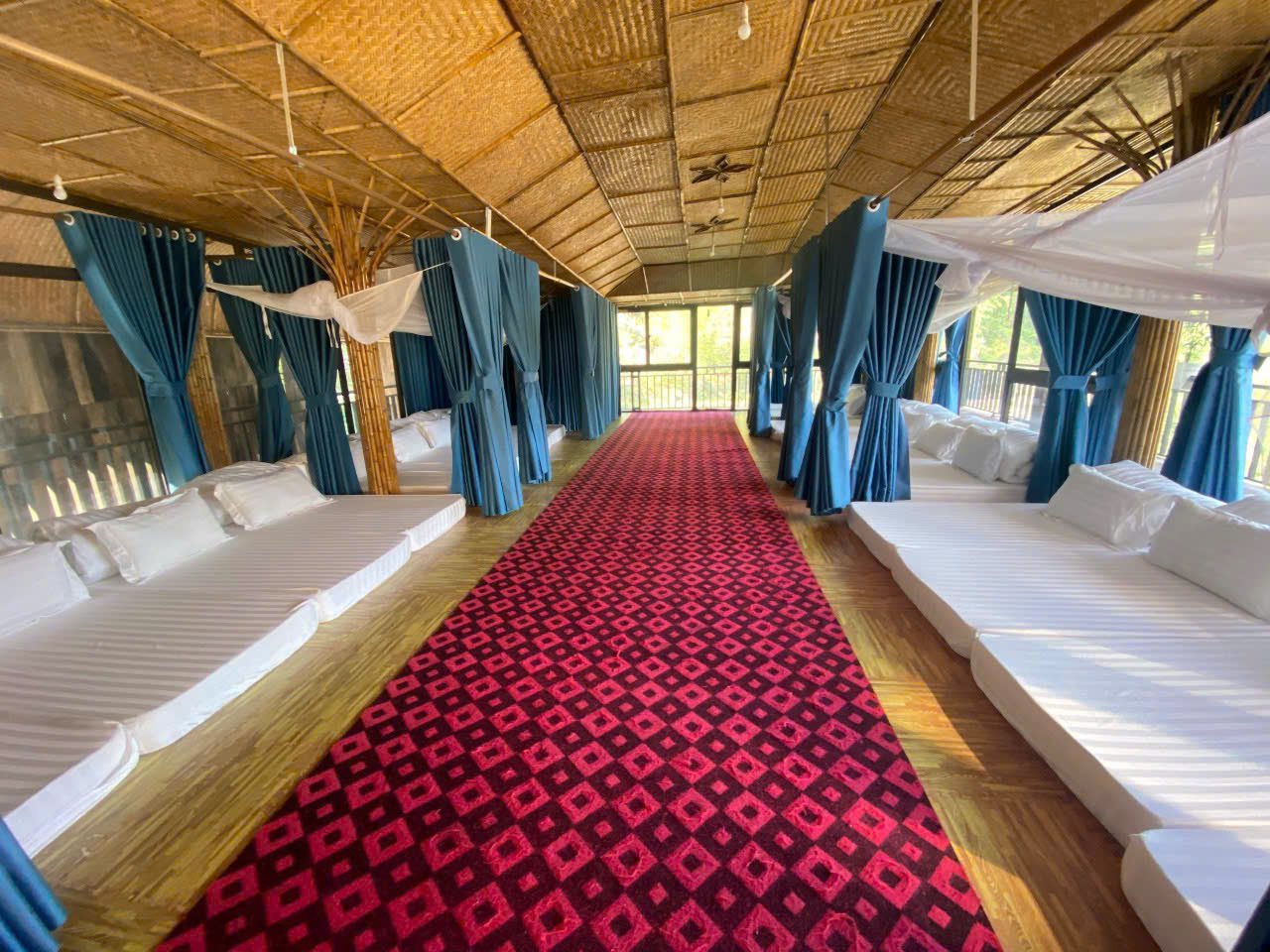

Day : 28/02/2025 - 01/03/2025
Room name : Community room
Kind of room : Room with 1 bed 1m2
Total amount : Contact
Discount 10% member 63Stravel Vip
Final price to pay : Contact
Room amenities
 Towel
Towel
 No smoking
No smoking
 Free toiletries
Free toiletries
 Slipper
Slipper
 Hot water tank
Hot water tank
 Free wifi
Free wifi
 Bathrobe
Bathrobe
 Shower head
Shower head
 Free tea and coffee
Free tea and coffee
 Free mineral water
Free mineral water
Room description : - Capacity 22-25 people - Glass wall room - Breakfast not included - Children from 6 years old and under 11 years old 100,000 thousand VND per child
Check-in time : From 14:00
Check-out time : Before 12:00
( Discount 10% member 63Stravel Vip )
 Parking
Parking
 Receptionist
Receptionist
 Alarm
Alarm
 Special help
Special help
 Keep your luggage
Keep your luggage
 Free internet
Free internet
 Daily cleaning
Daily cleaning
 Steam laundry
Steam laundry
 Laundry Service
Laundry Service
 Iron
Iron
 Dinner
Dinner
 Lunch
Lunch
 Breakfast
Breakfast
 BBQ party
BBQ party
 Restaurant
Restaurant
 Alcohol
Alcohol
 No smoking
No smoking
 Air conditioner
Air conditioner
 Garden
Garden
 Balcony
Balcony
 Pool
Pool
( Discount 10% member 63Stravel Vip )
( Discount 10% member 63Stravel Vip )
